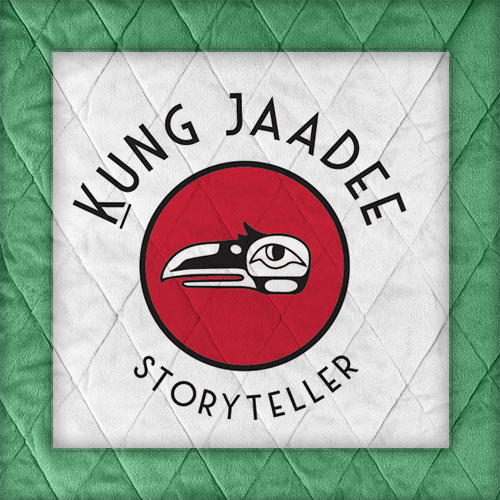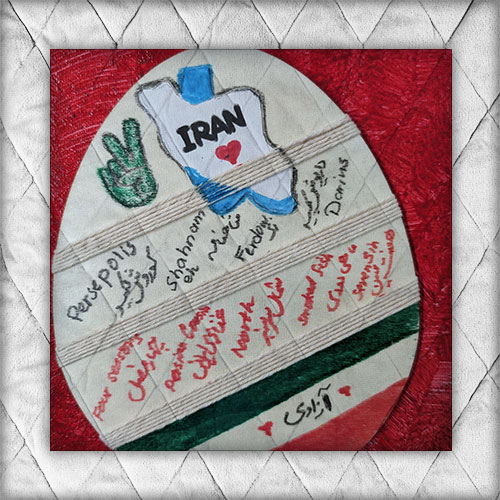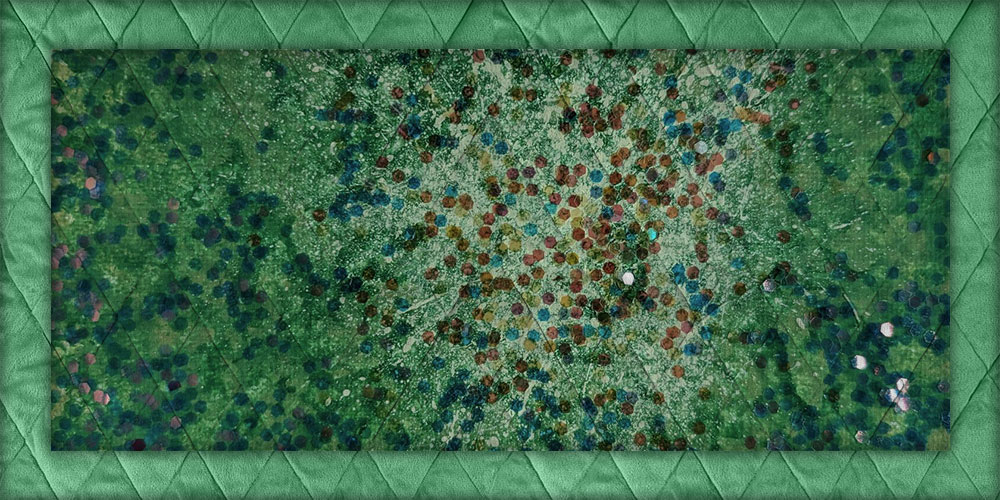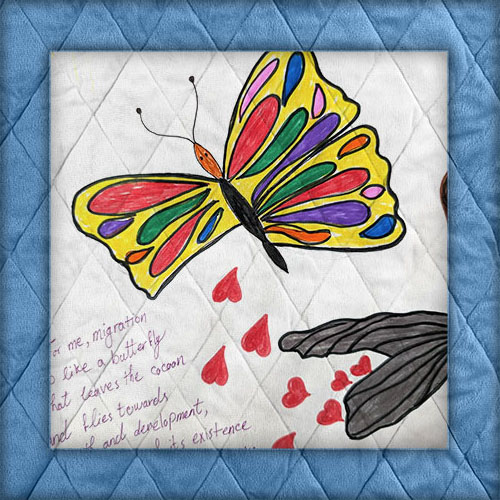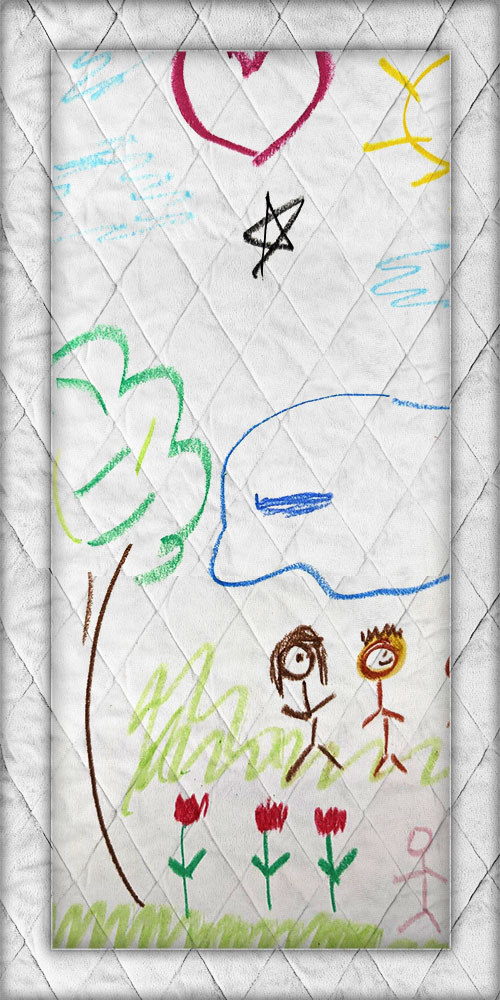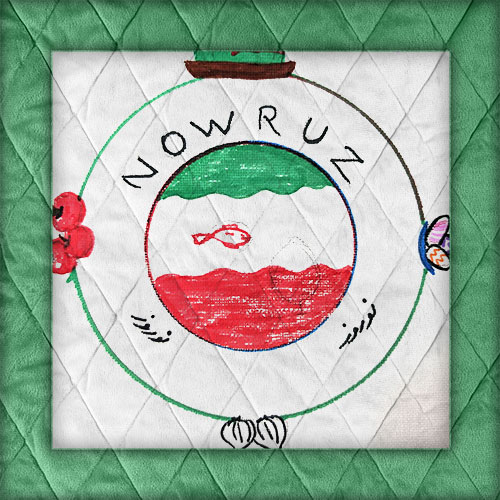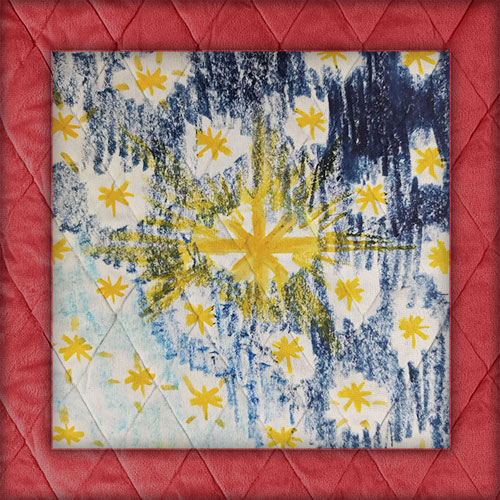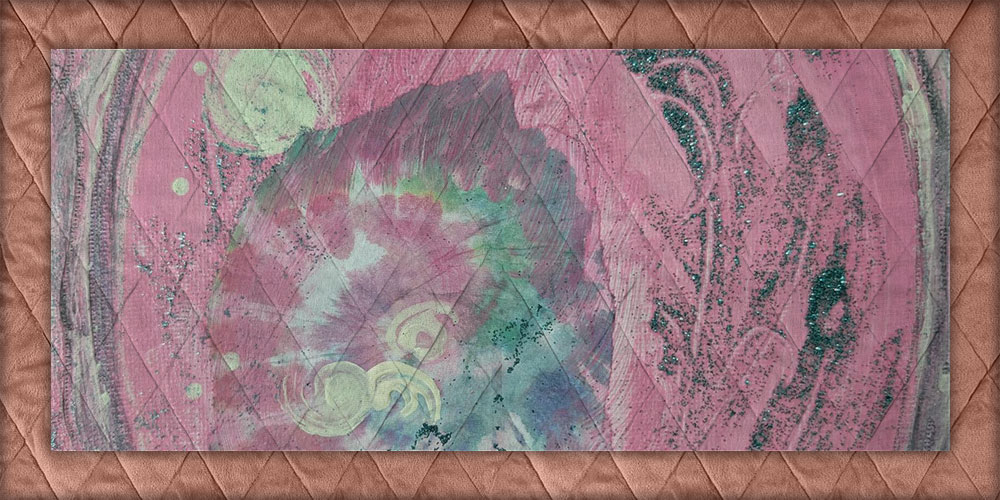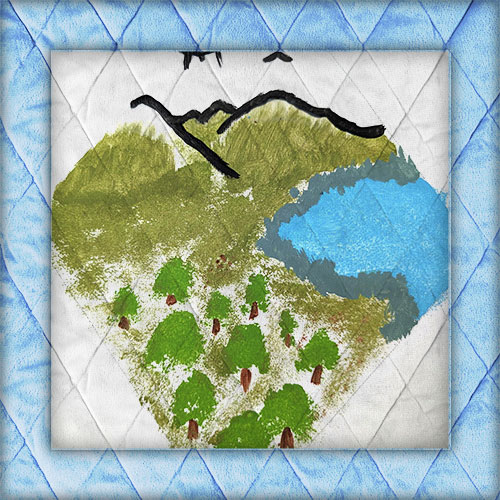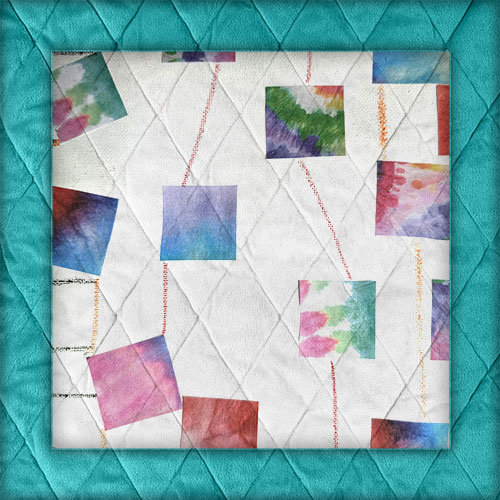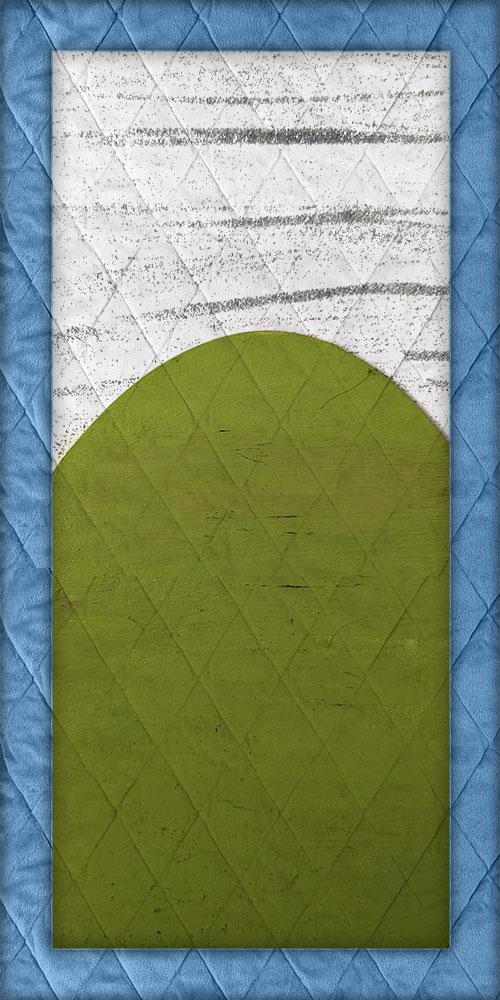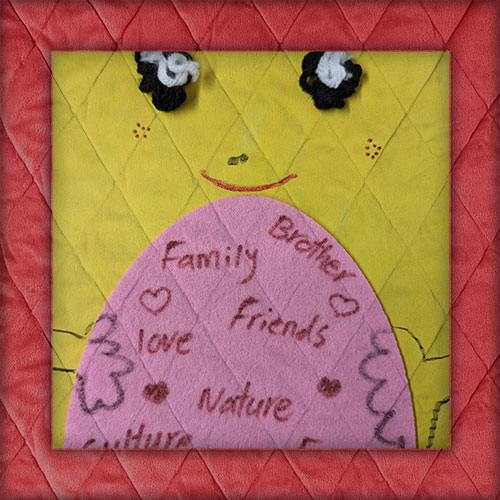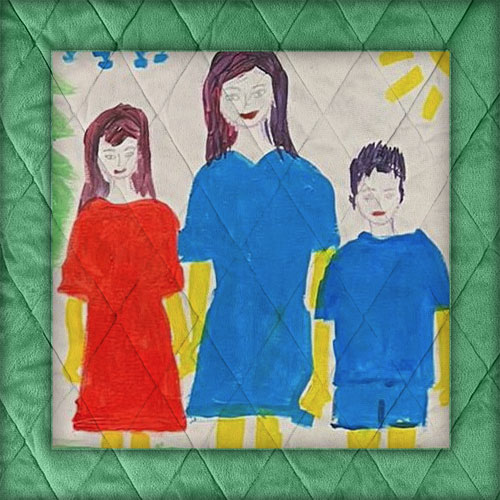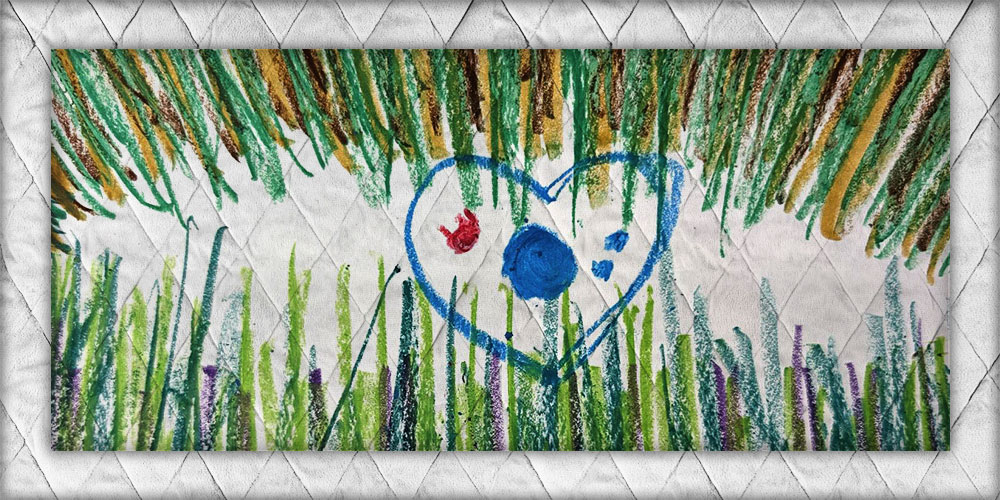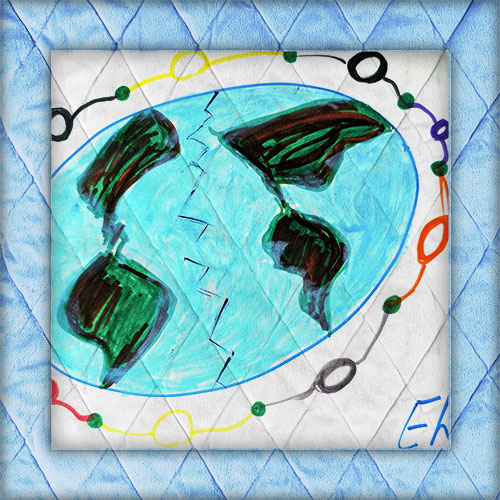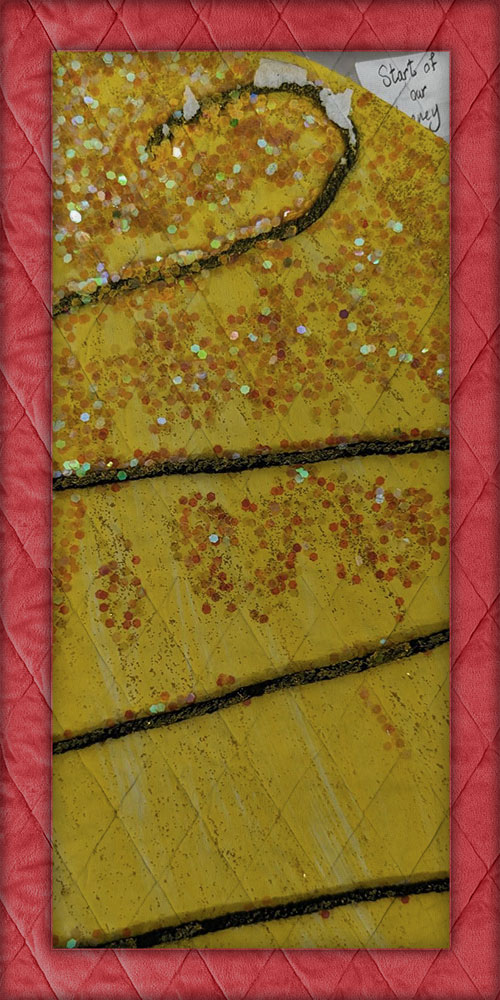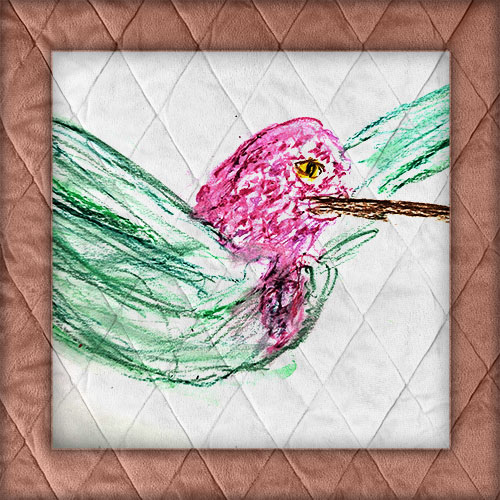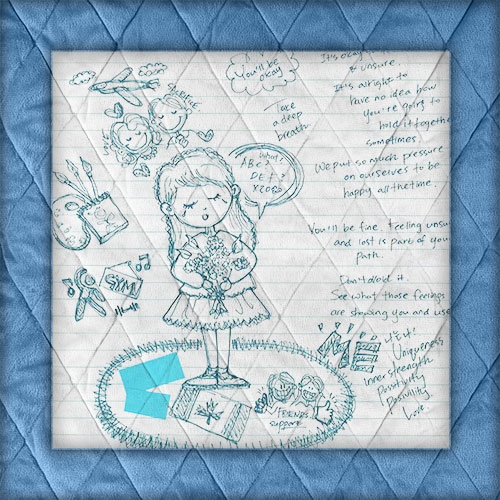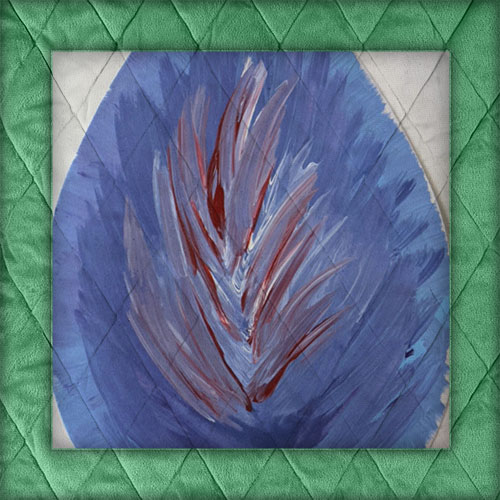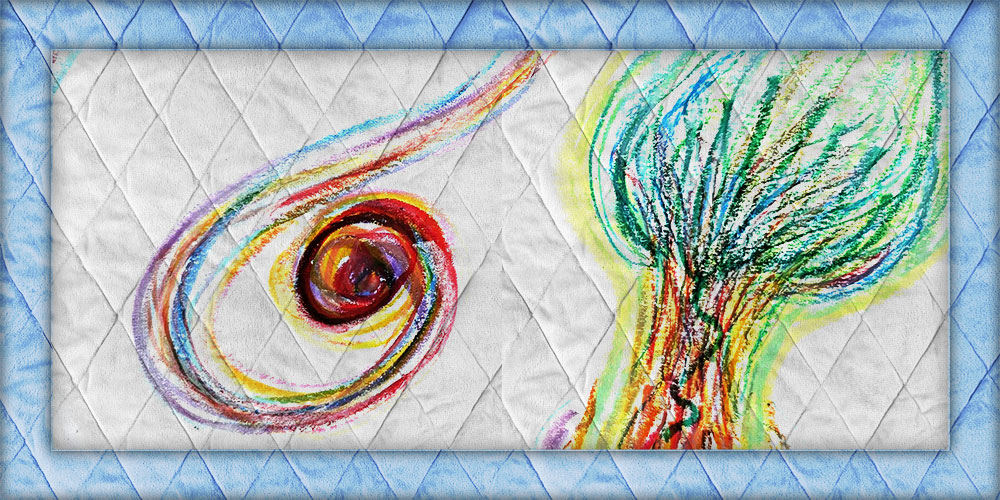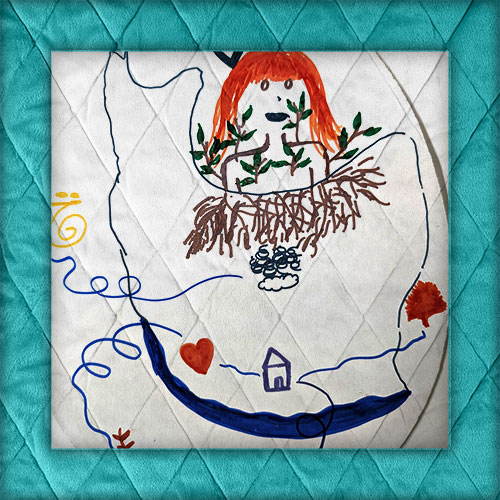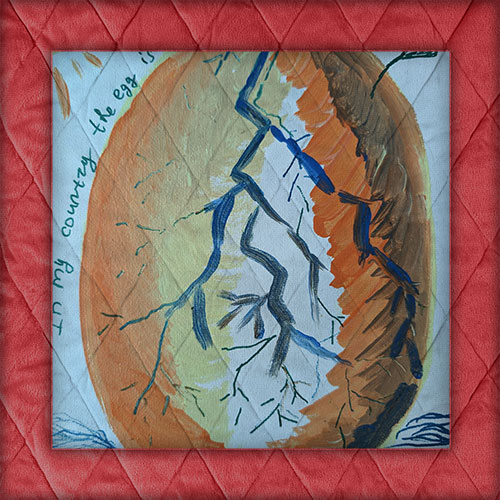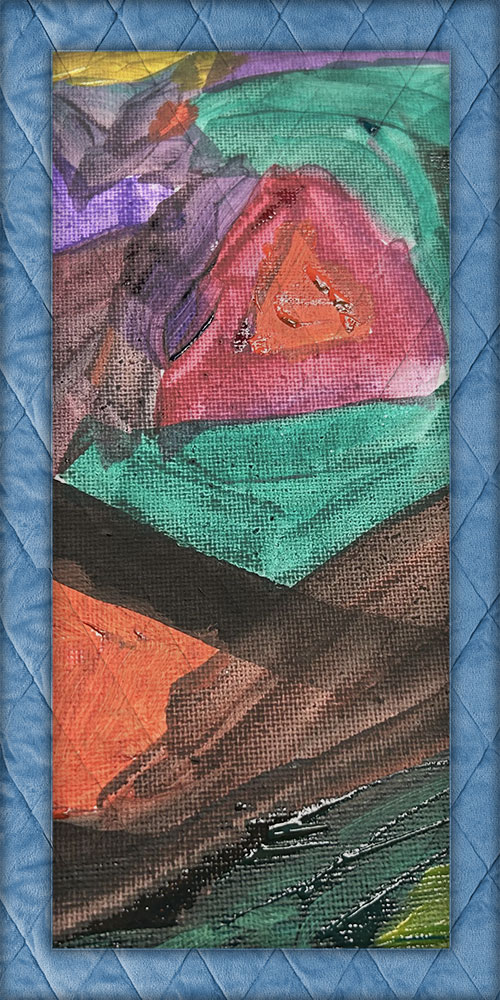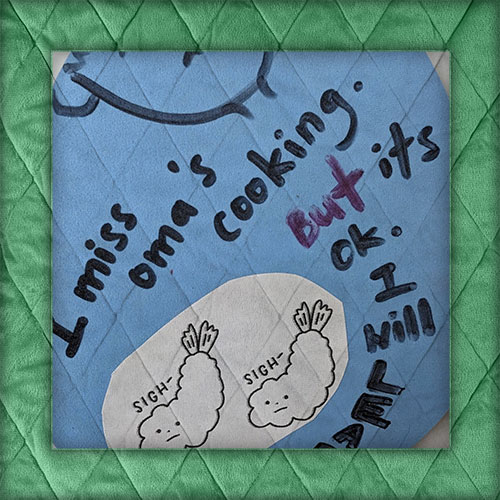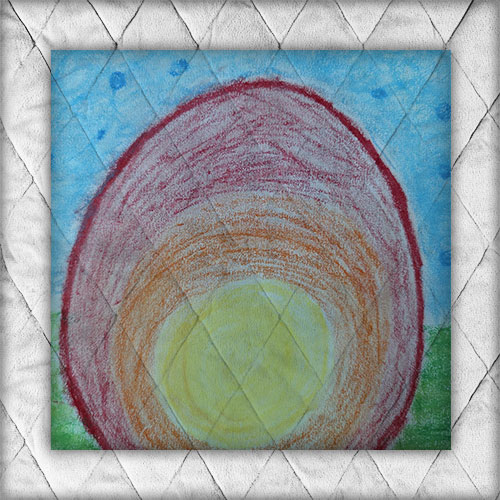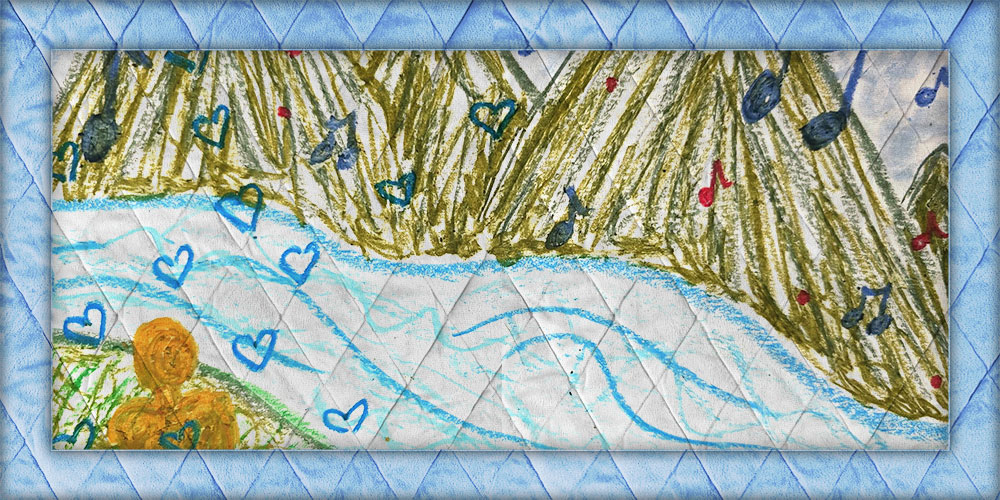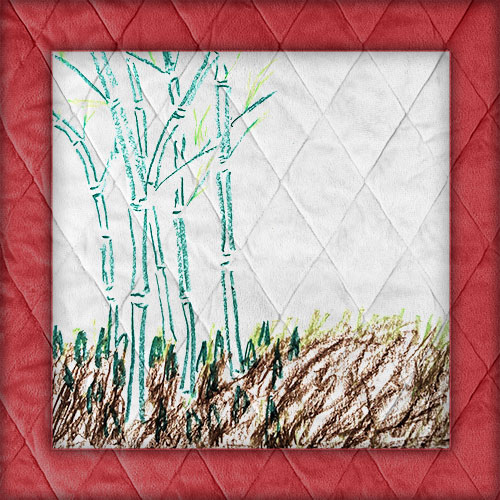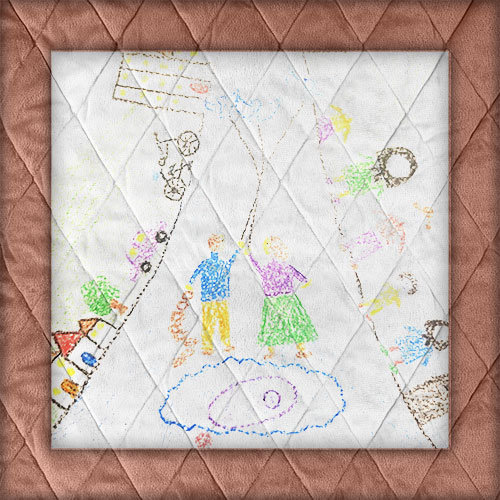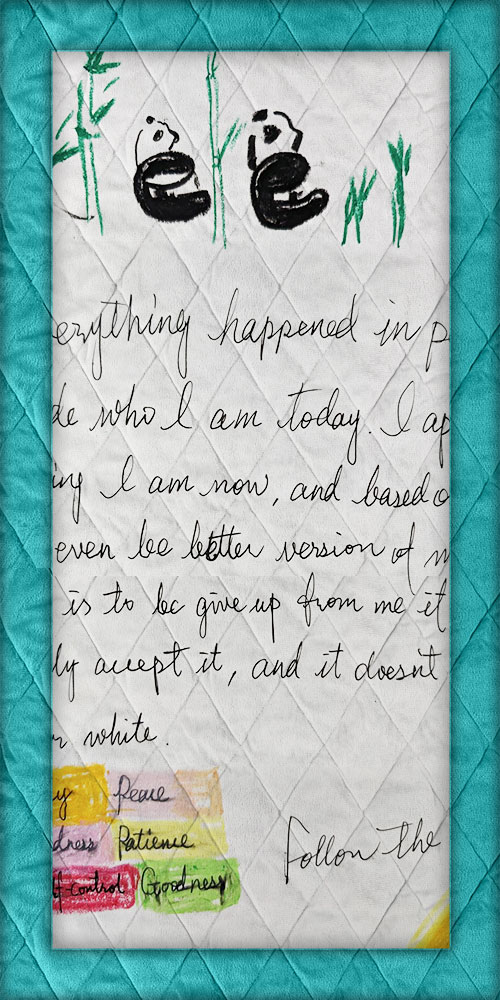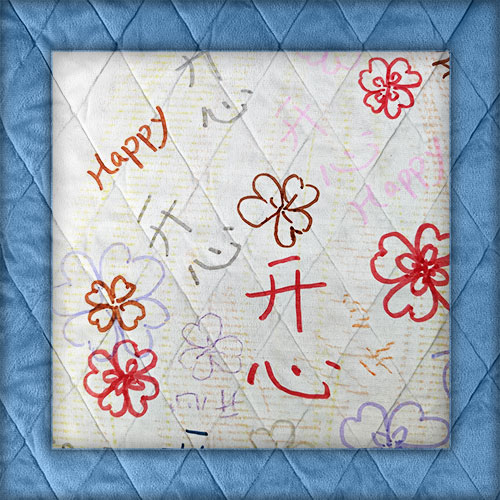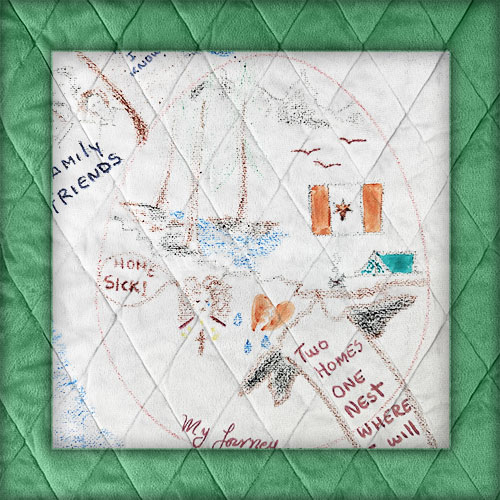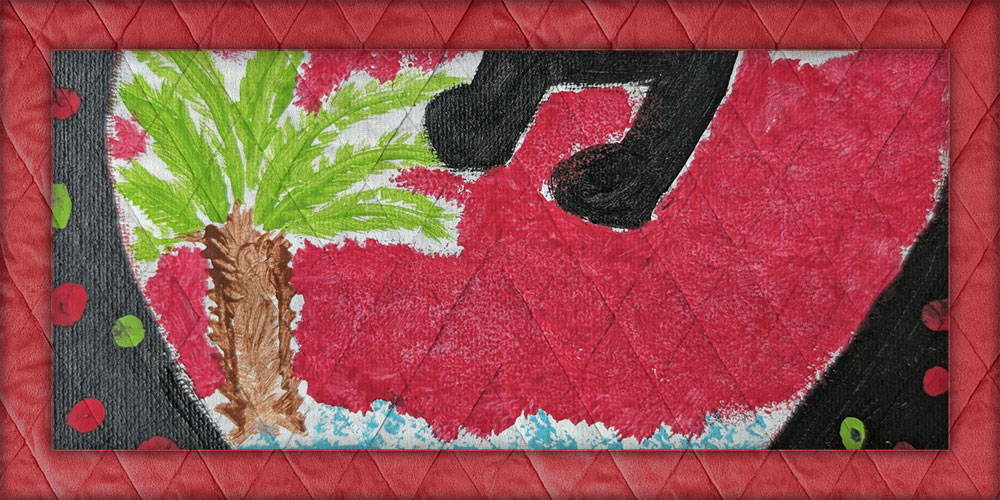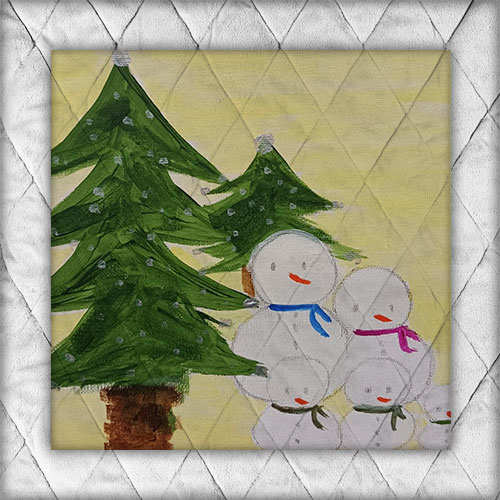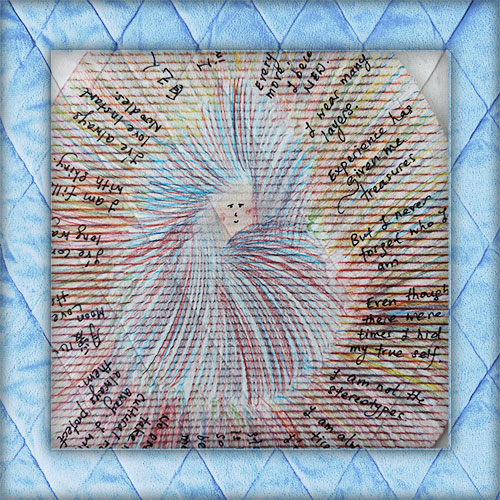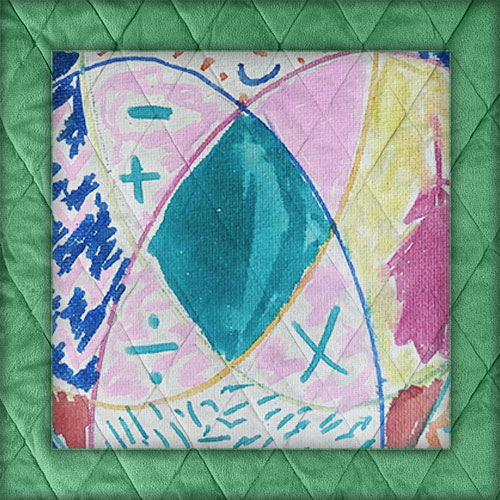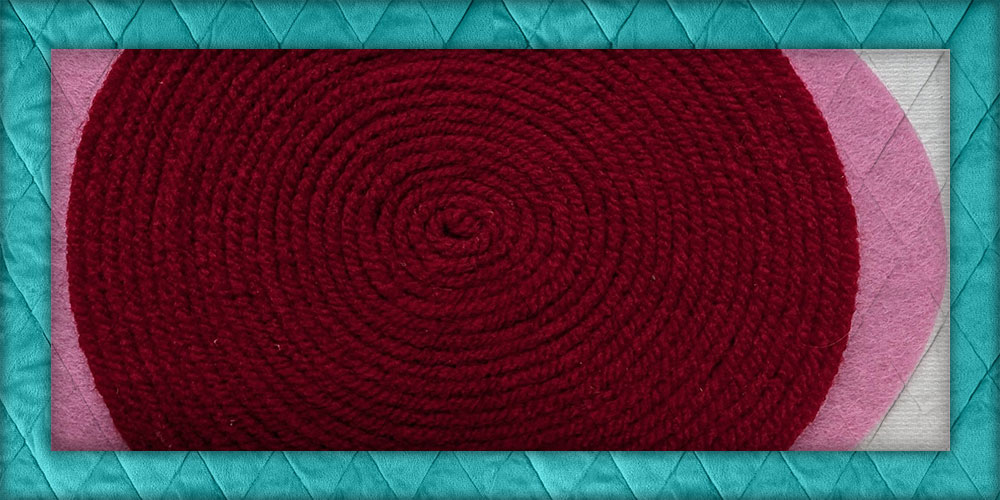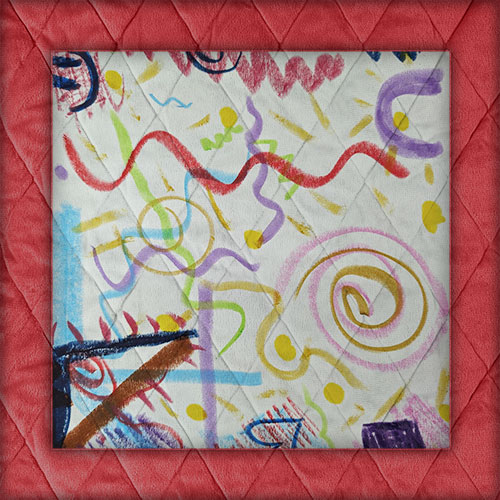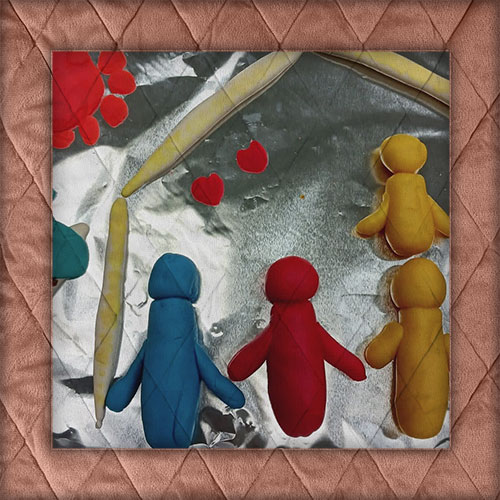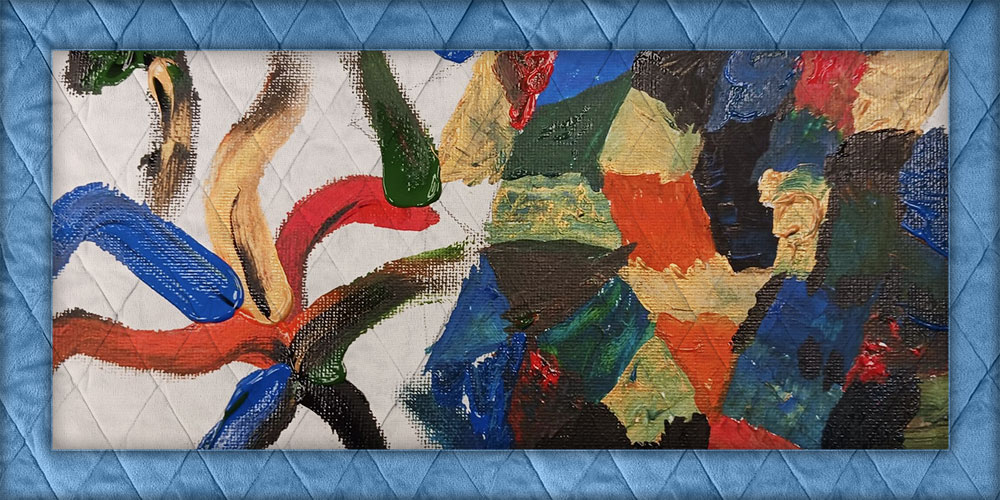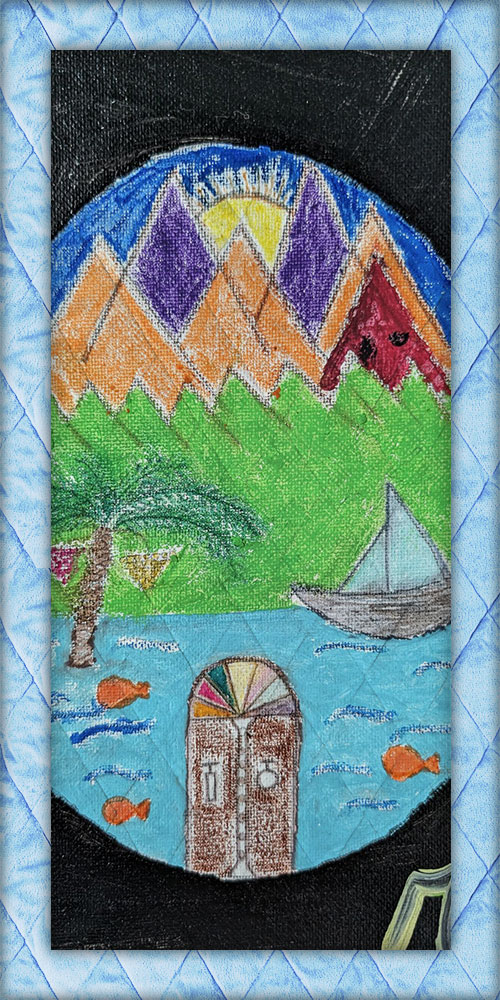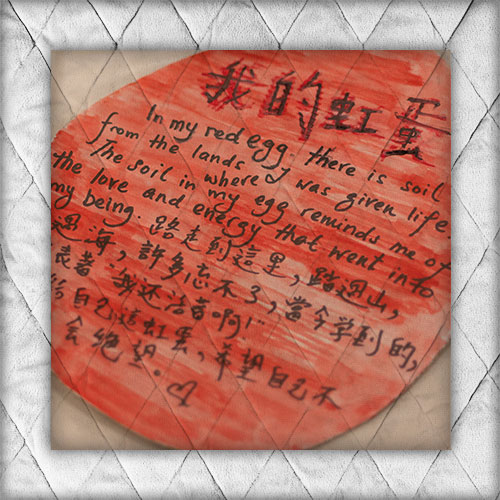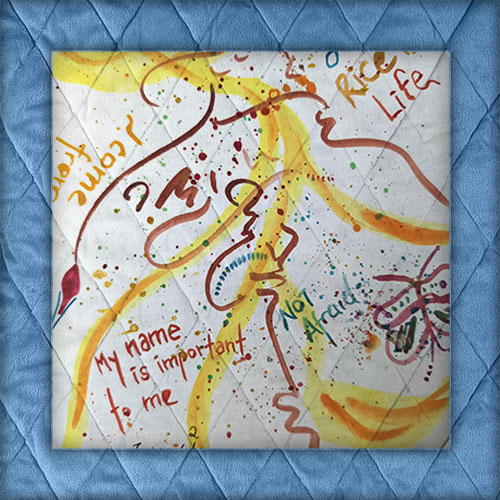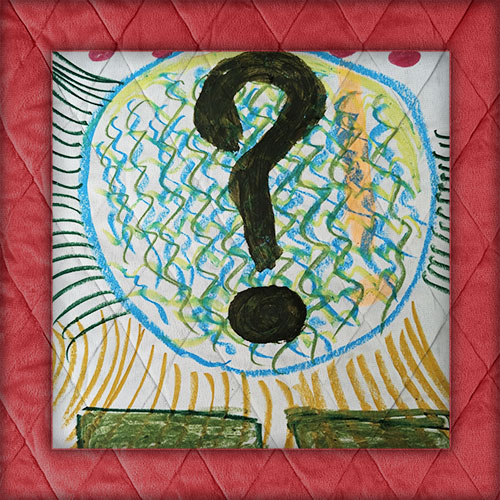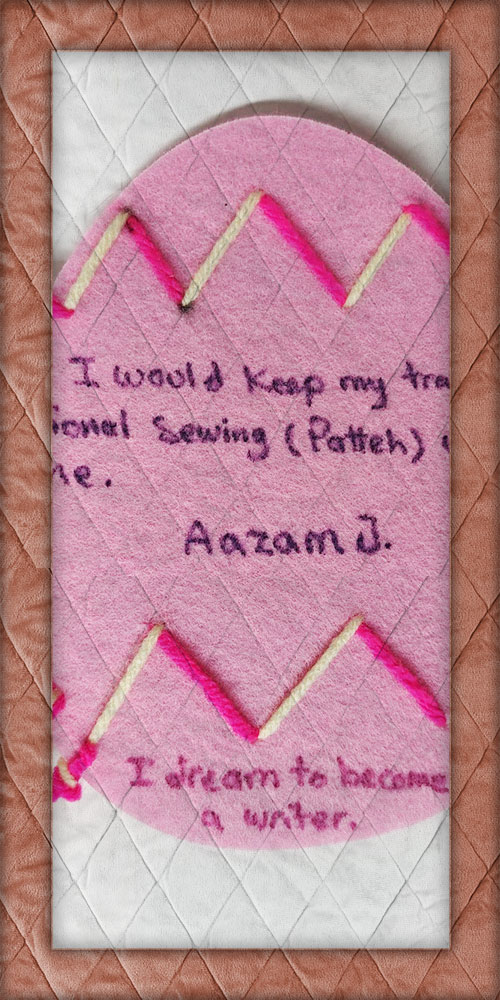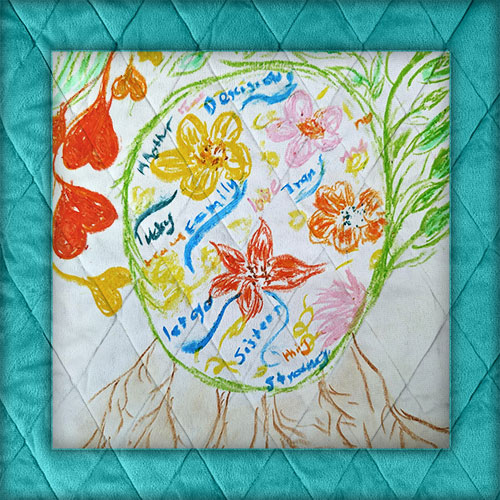Priorities & Projects
The Resilience Blanket
Inspired by the Witness Blanket, the Resilience Blanket is a collective story of strength and the power of community. Similar to a patchwork quilt, each story shares unique perspectives on strengthening confidence, empathy & community. The images used for the Resilience Blanket were made by community members and families with lived immigration experience who now reside in the Tri-Cities. They participated in several workshops offered by the S.U.C.C.E.S.S. Multicultural Early Childhood Development Program and Luna Aixin.
Over the past few years, the Tri-Cities has seen increased incidents of racism which impact many Indigenous and racialized communities’ health and sense of belonging. The idea for the Resilience Blanket was developed in response to the community’s desire to support our diverse communities in amplifying their voices, to remind them of the strength in building connections and community, and to engage everyone in dialogue. We believe that by sharing stories of hope and resilience, we can reflect on our own privileges and how we can play a role in advancing equity and inclusion for all. To learn more about the four components of resilience, go to the bottom of the Resilience Blanket.
We encourage you to take the time to explore the stories, artwork and reflections on resilience represented in this interactive blanket. As you click through the blanket sections, watch for the reflection questions and think about what they mean to you and how they relate to your and others’ experiences.
We’re here for a reason
“Our ancestors wished for us, prayed for us, manifested our existence many generations ago. We are here for a reason. You have a purpose. We all have gifts to share.”
Disclaimer: Please note that from minute 3:00 to 3:58 in the video, there is a mention of suicide. Viewer discretion is advised during this time.
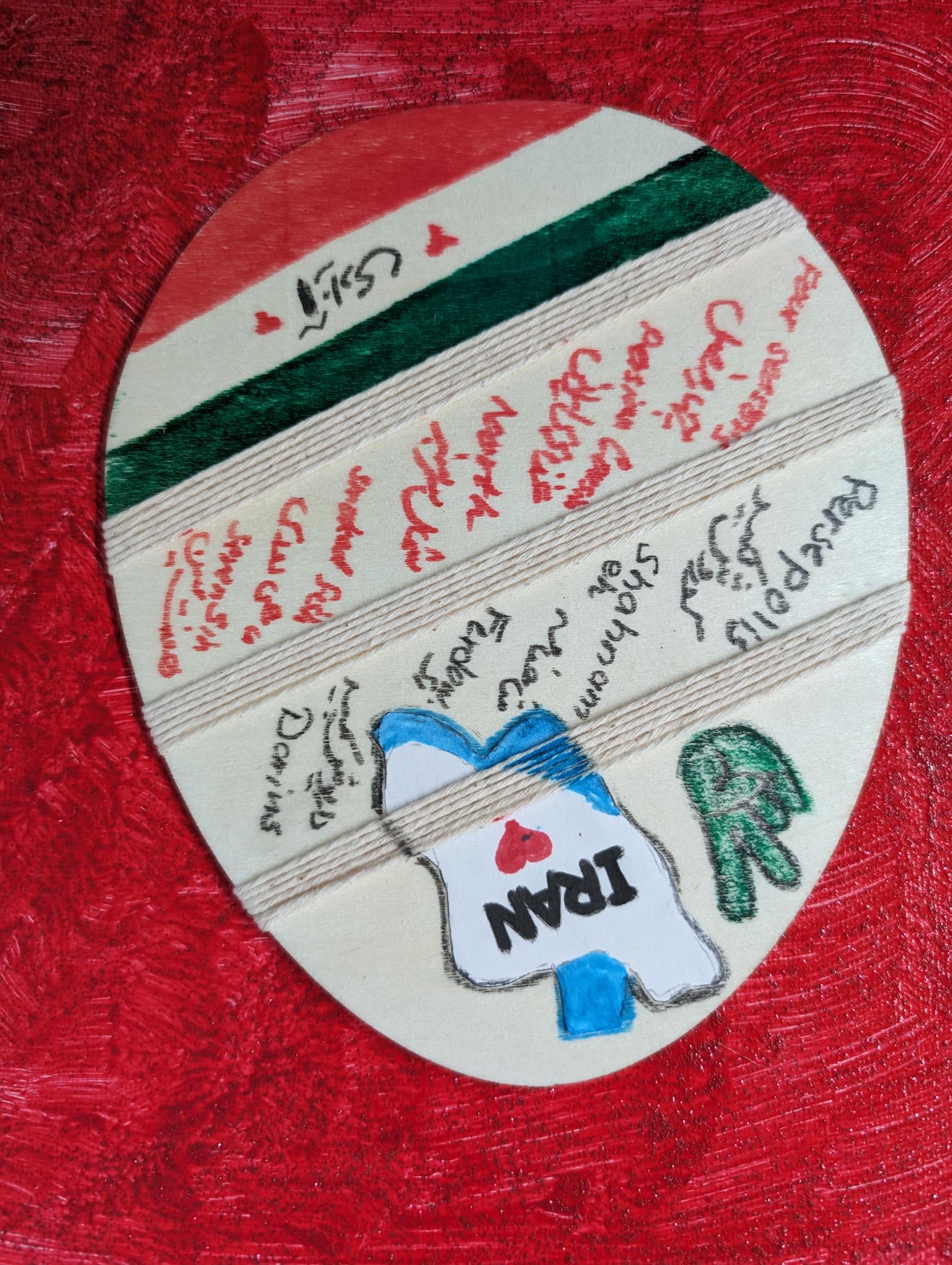
Weaving a new tapestry of possibility
Leaving our native land is not about cutting ties with the past, but rather gathering those threads to weave a new tapestry of possibility
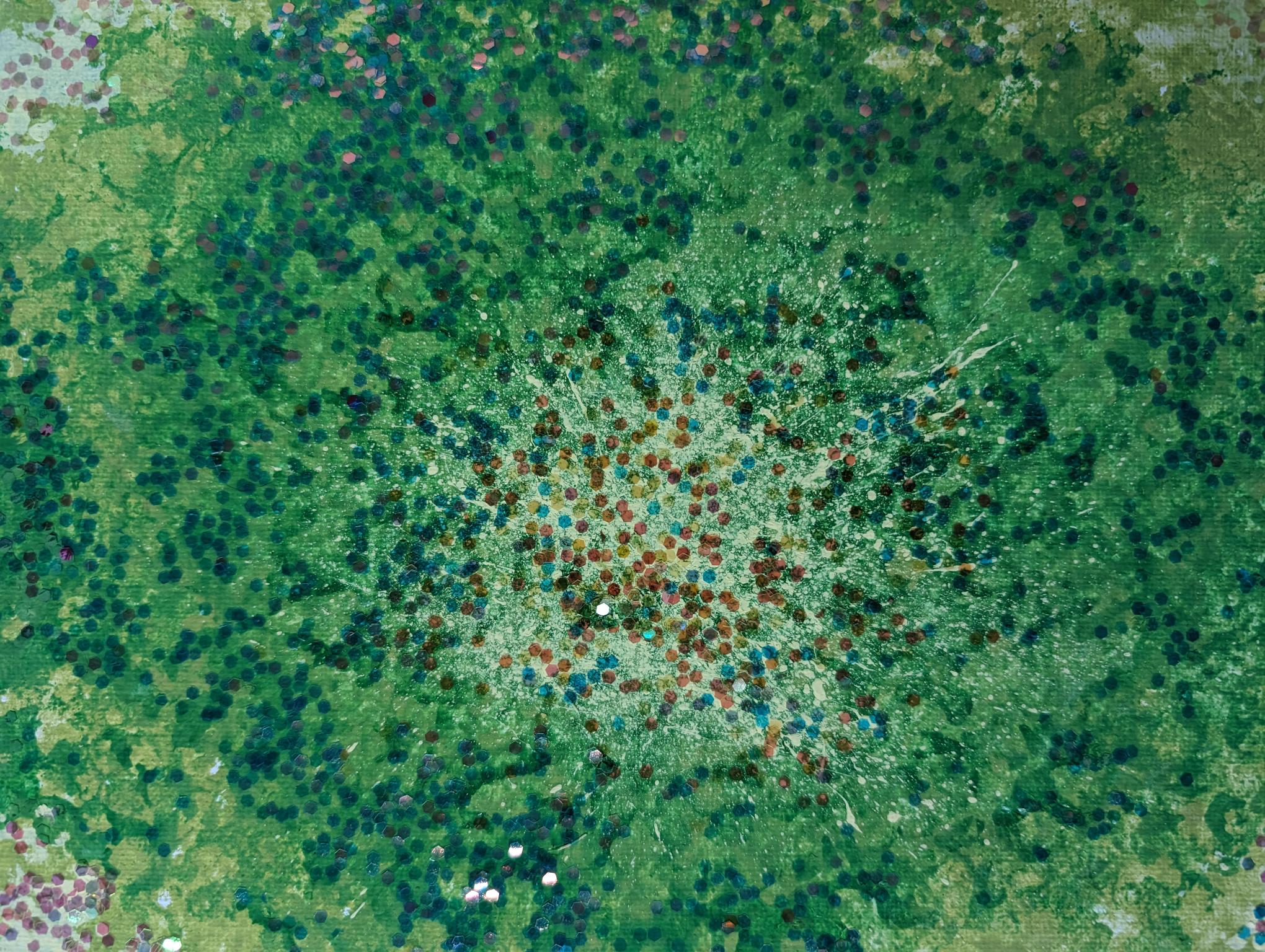
Resilience fuels our journey
In immigration, resilience fuels our journey. It’s the bravery to embrace the unknown, the determination to adapt, and the strength to build a new life.
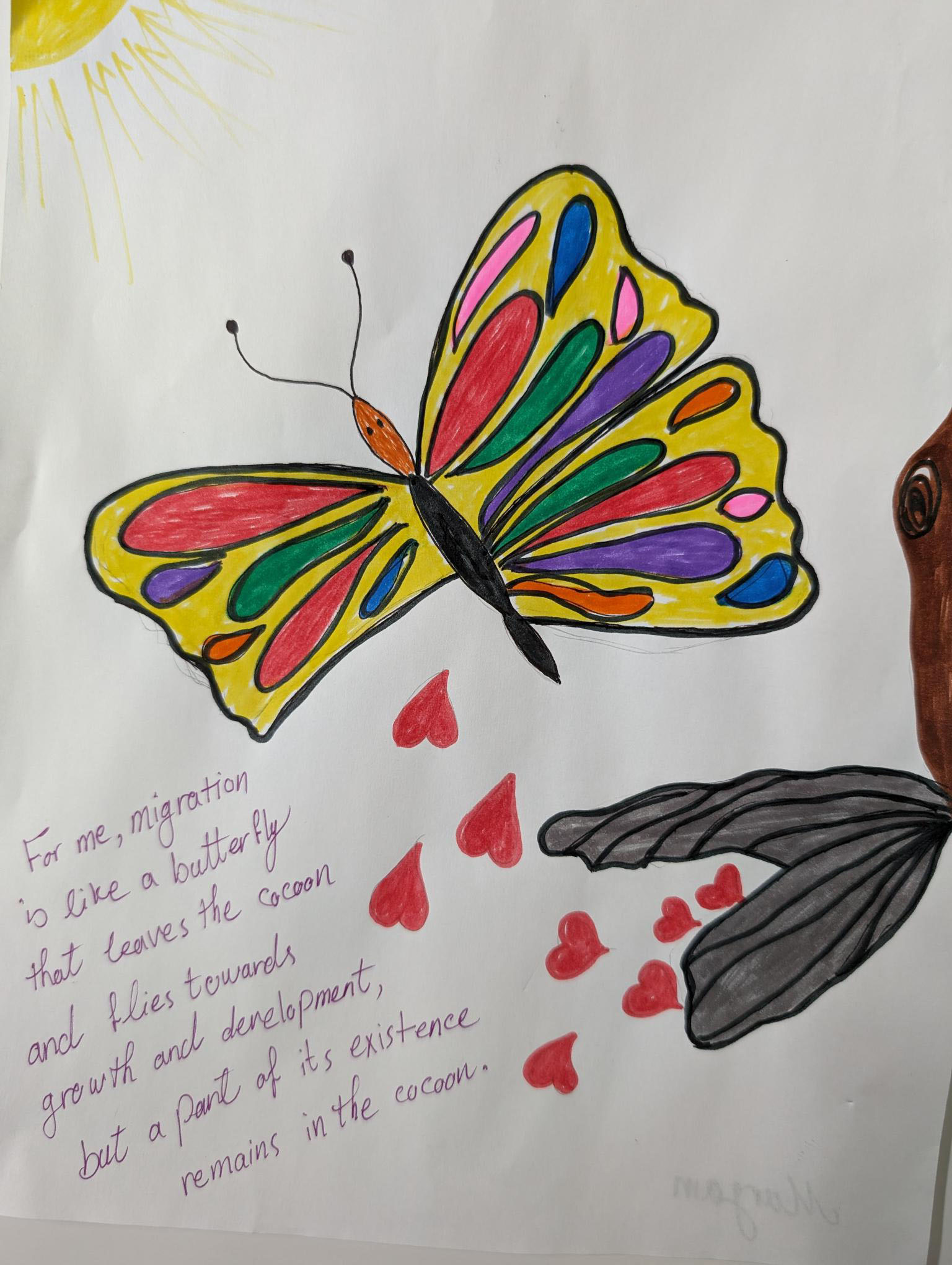
Migration is like a butterfly
“For me, migration is like a butterfly that leaves the cocoon and flies towards growth and development, but a part of its existence remains in the cocoon.” -Maryam
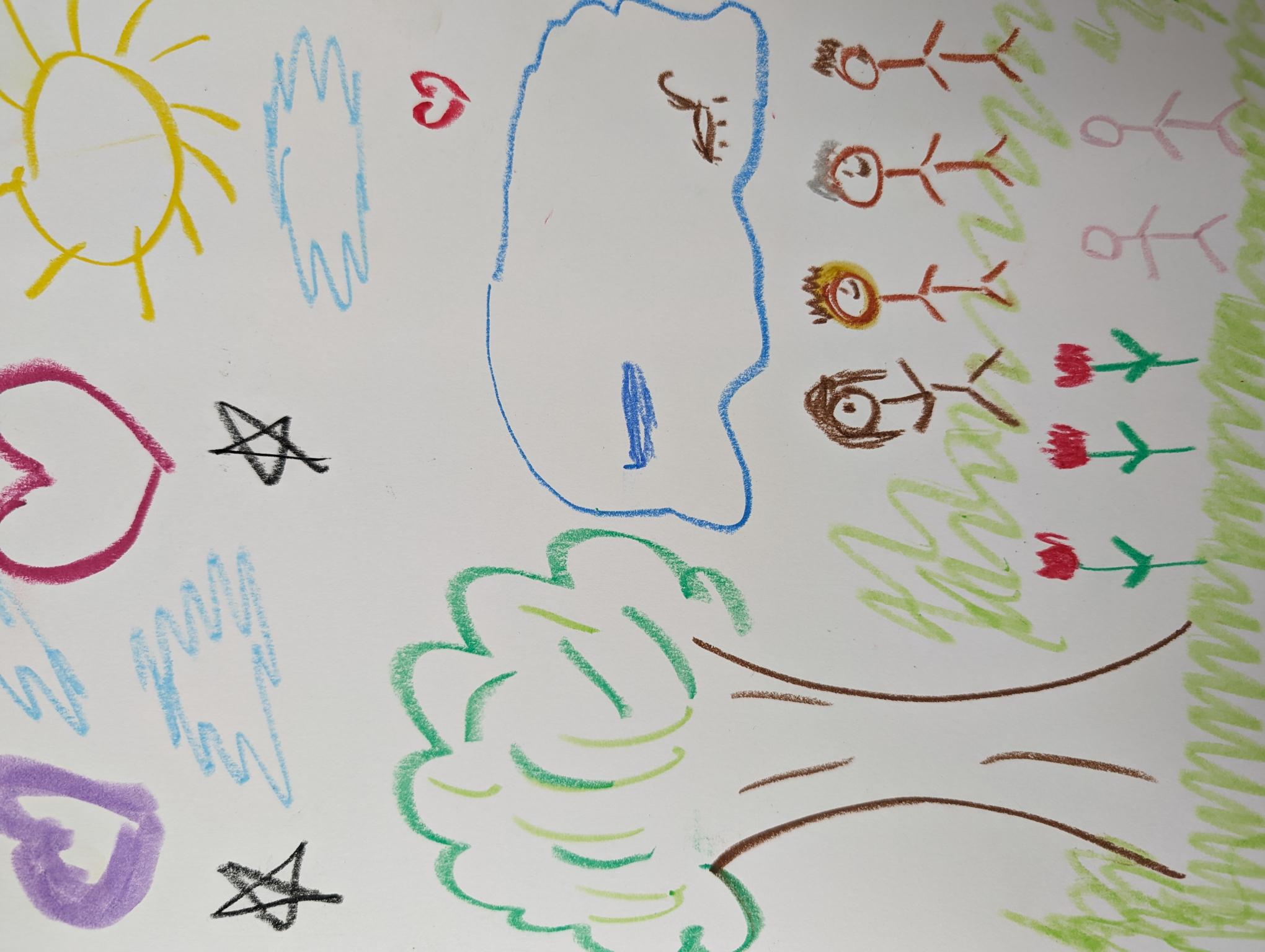
We need each other to thrive
As newcomers navigating the unfamiliar of the new homeland, we rely on the guidance and support of those who have walked similar paths before us.
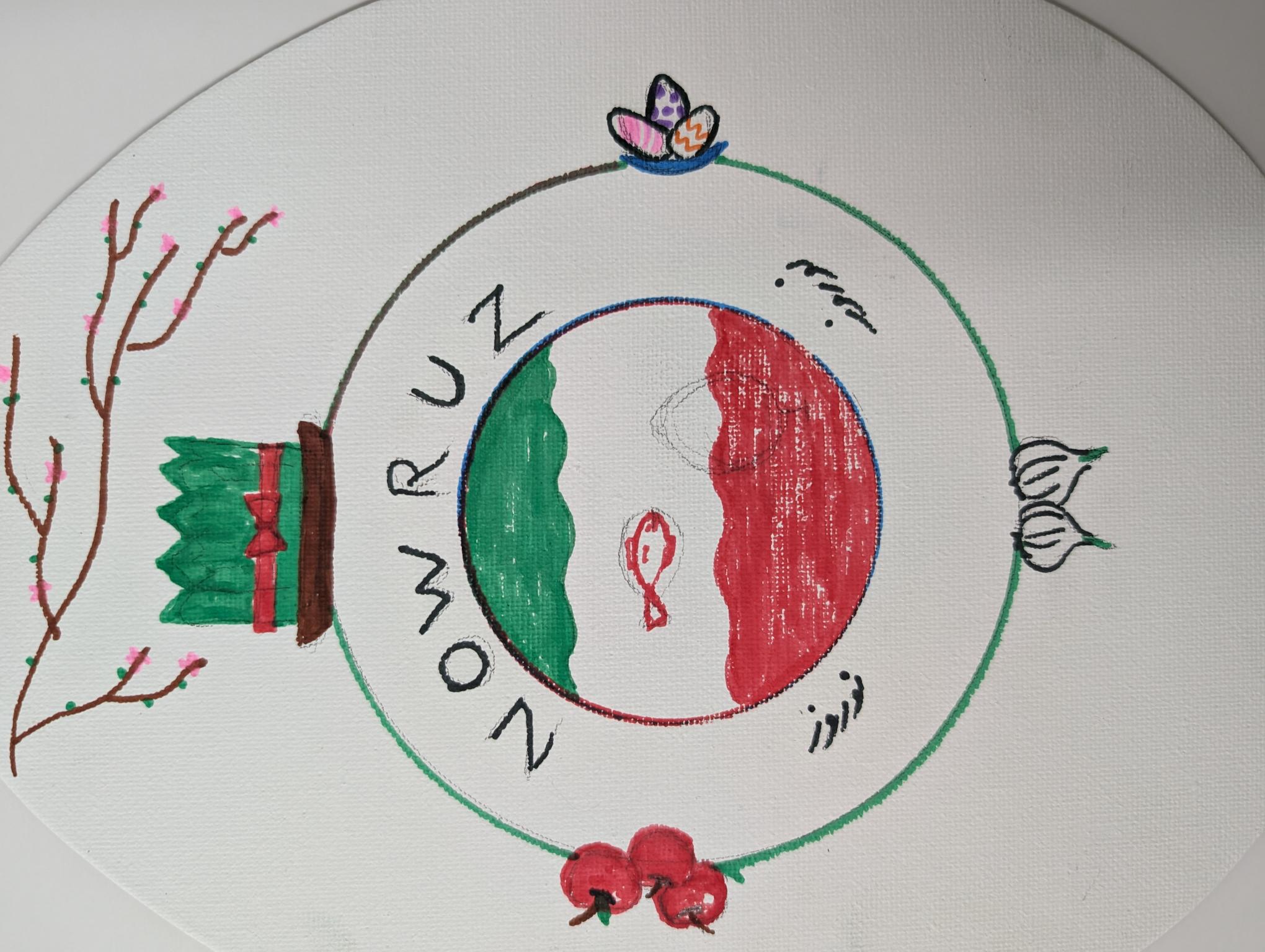
Nowruz
Nowruz is Farsi for “new day” – a festival that celebrates the first day of spring.
Nowruz is sometimes referred to as the Persian New Year, which is observed by more than 300 million people. It is an opportunity to reflect on the past and set intentions for the future.
What cultural practices are important to you?
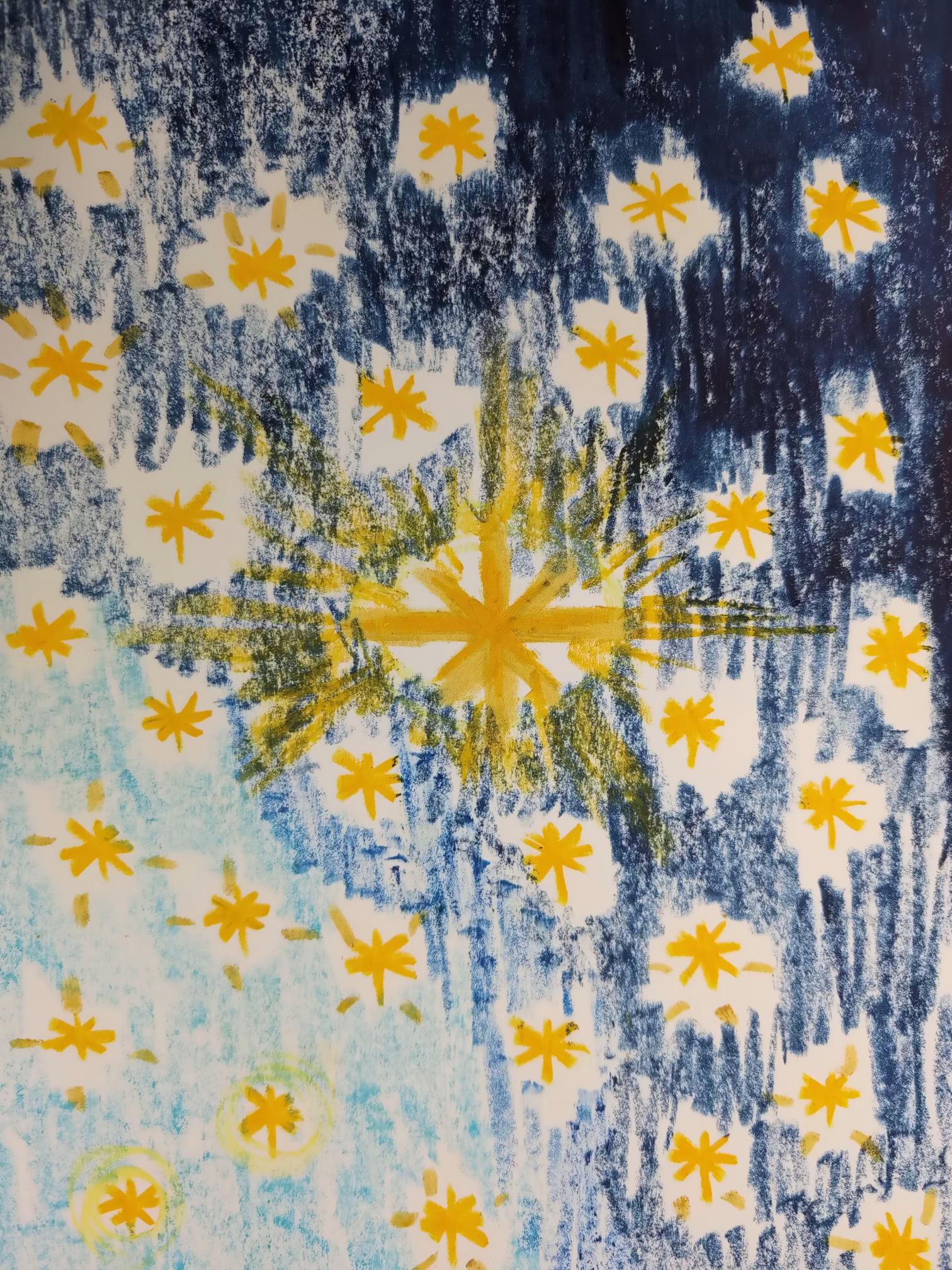
Think of a community program that has helped you in achieving your goals.
How did the program help you? What made it meaningful to you?
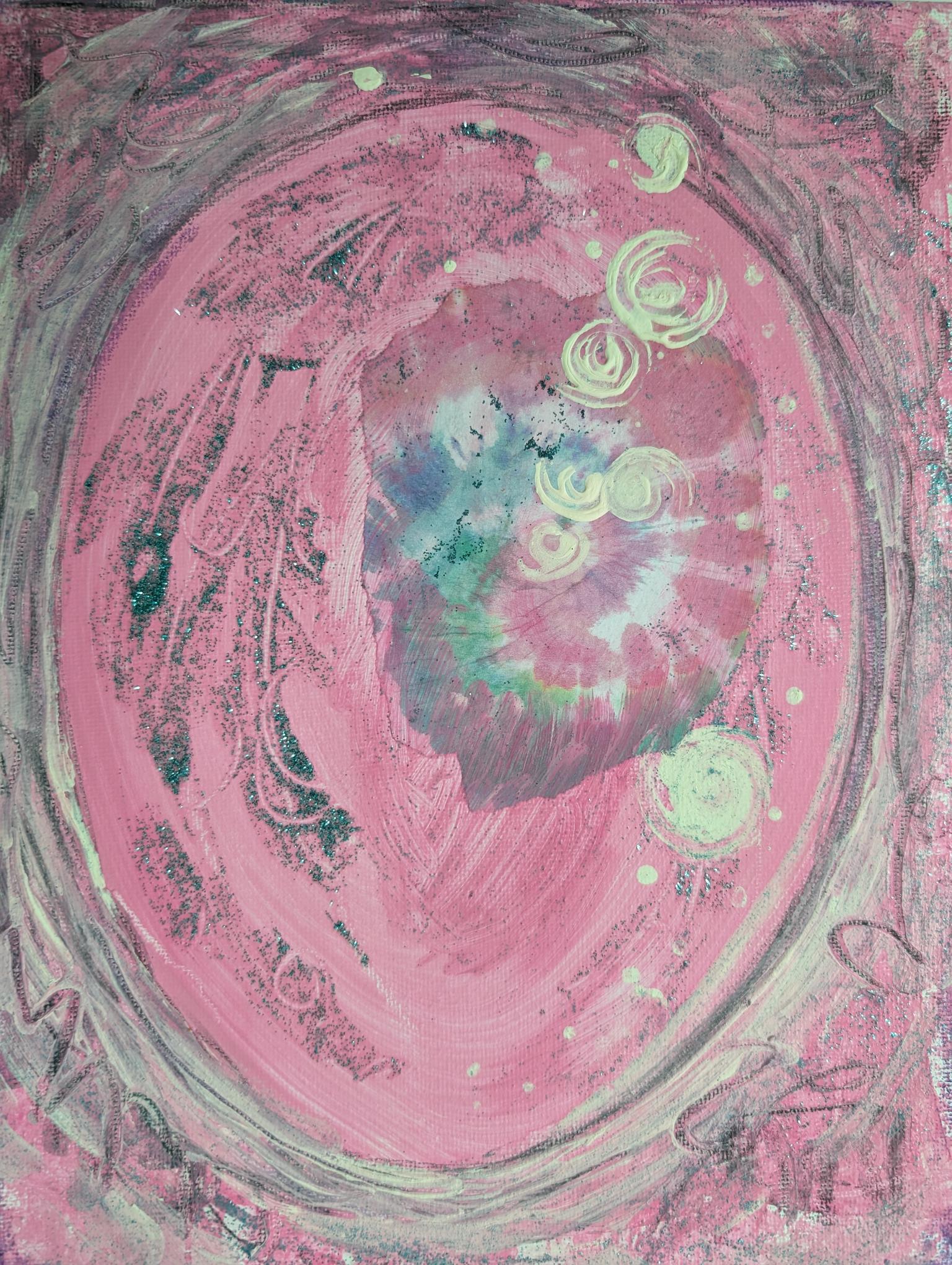
Reclaiming ourselves in our own terms
“The purpose of our journey is not to replace the darkness with light, rather it’s to integrate and honor all the parts of ourselves…all of life’s energies”- Deb Blum
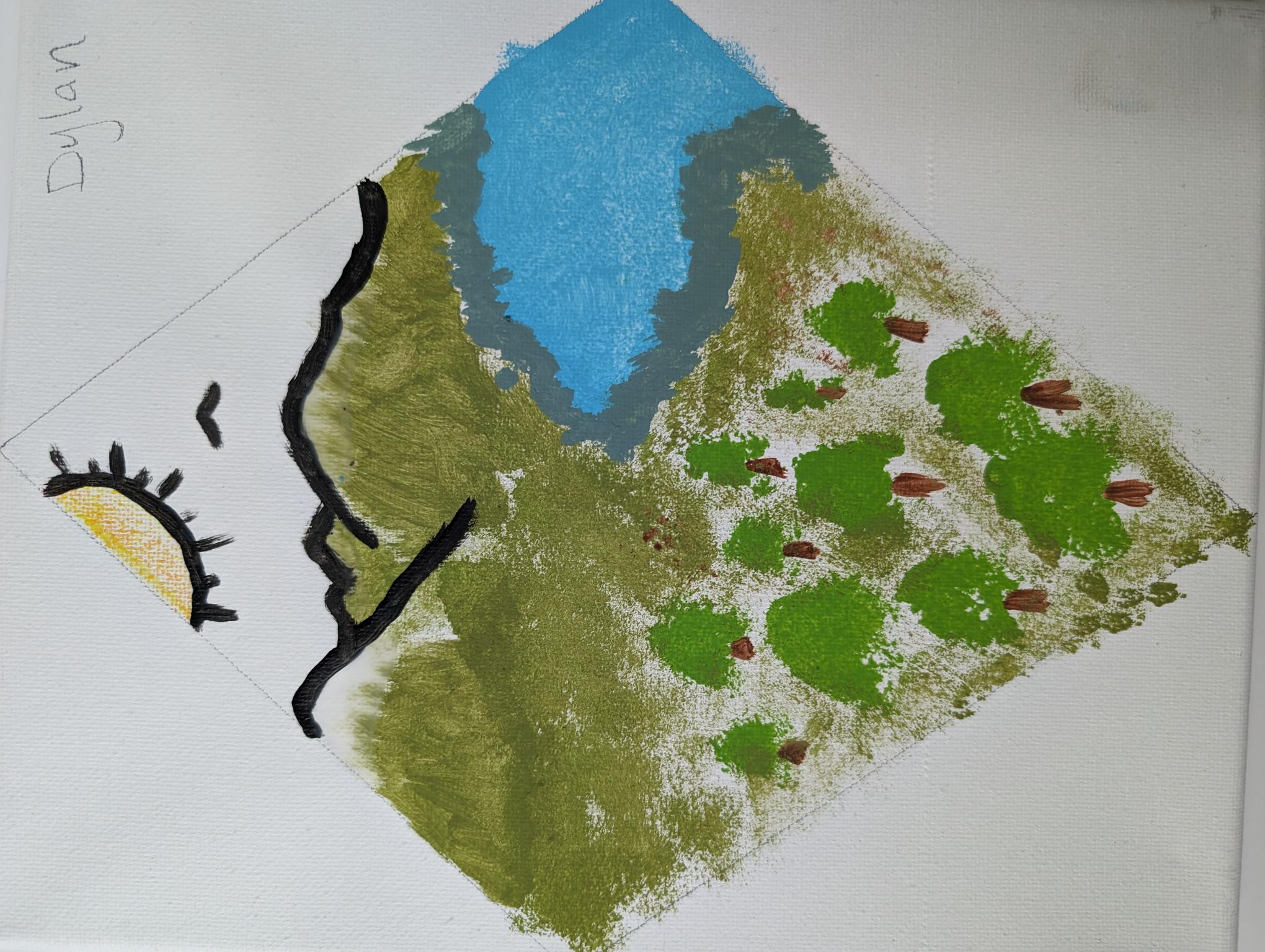
Let the light enter you
“Don’t turn away. Keep your gaze on the bandaged place. That where the light enters you.” – Rumi
How do we heal?
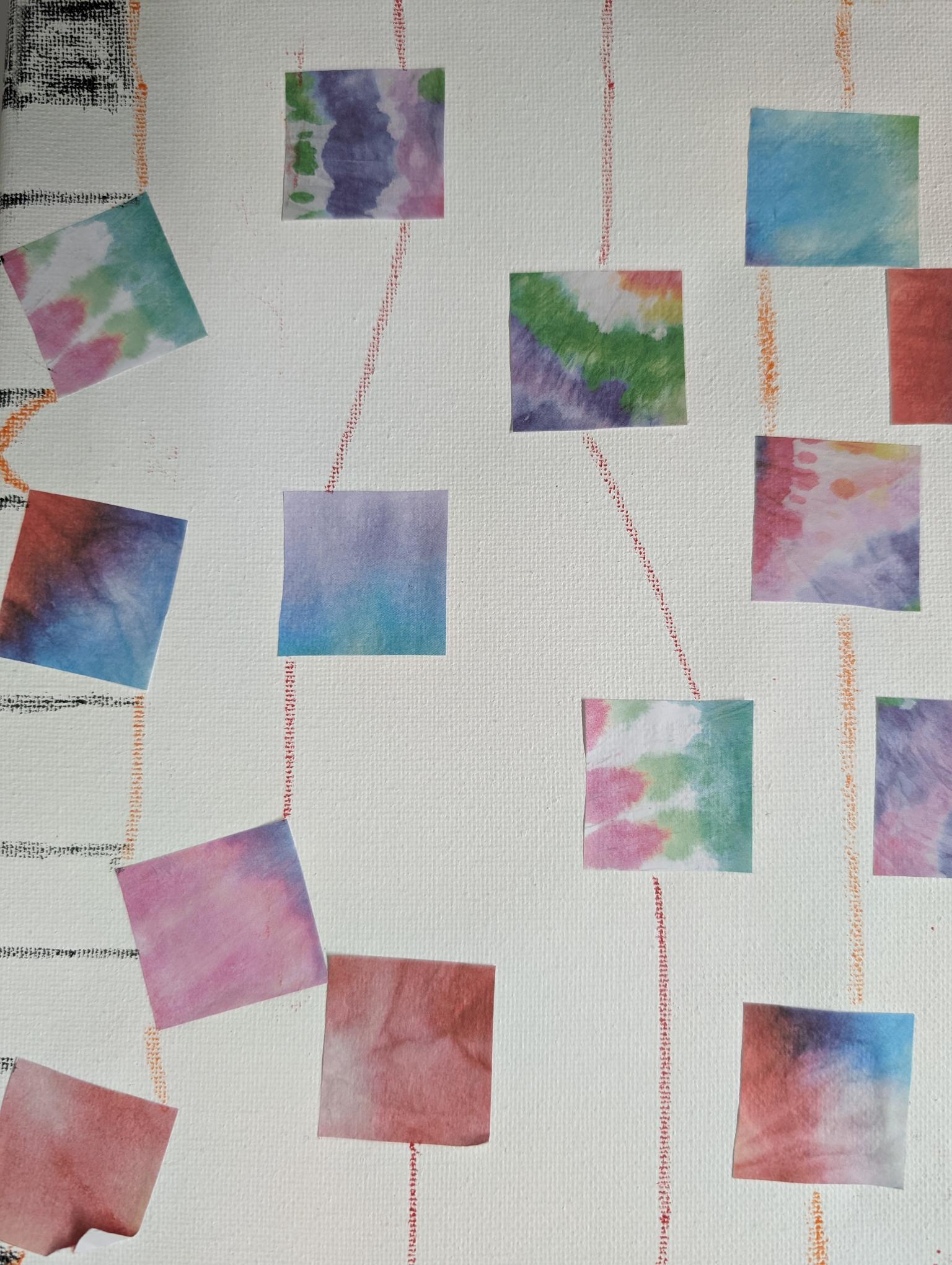
A Rich Tapestry of Connection
“We all should know that diversity makes for a rich tapestry, and we must understand that all the threads of the tapestry are equal in value no matter what their color.” – Maya Angelou
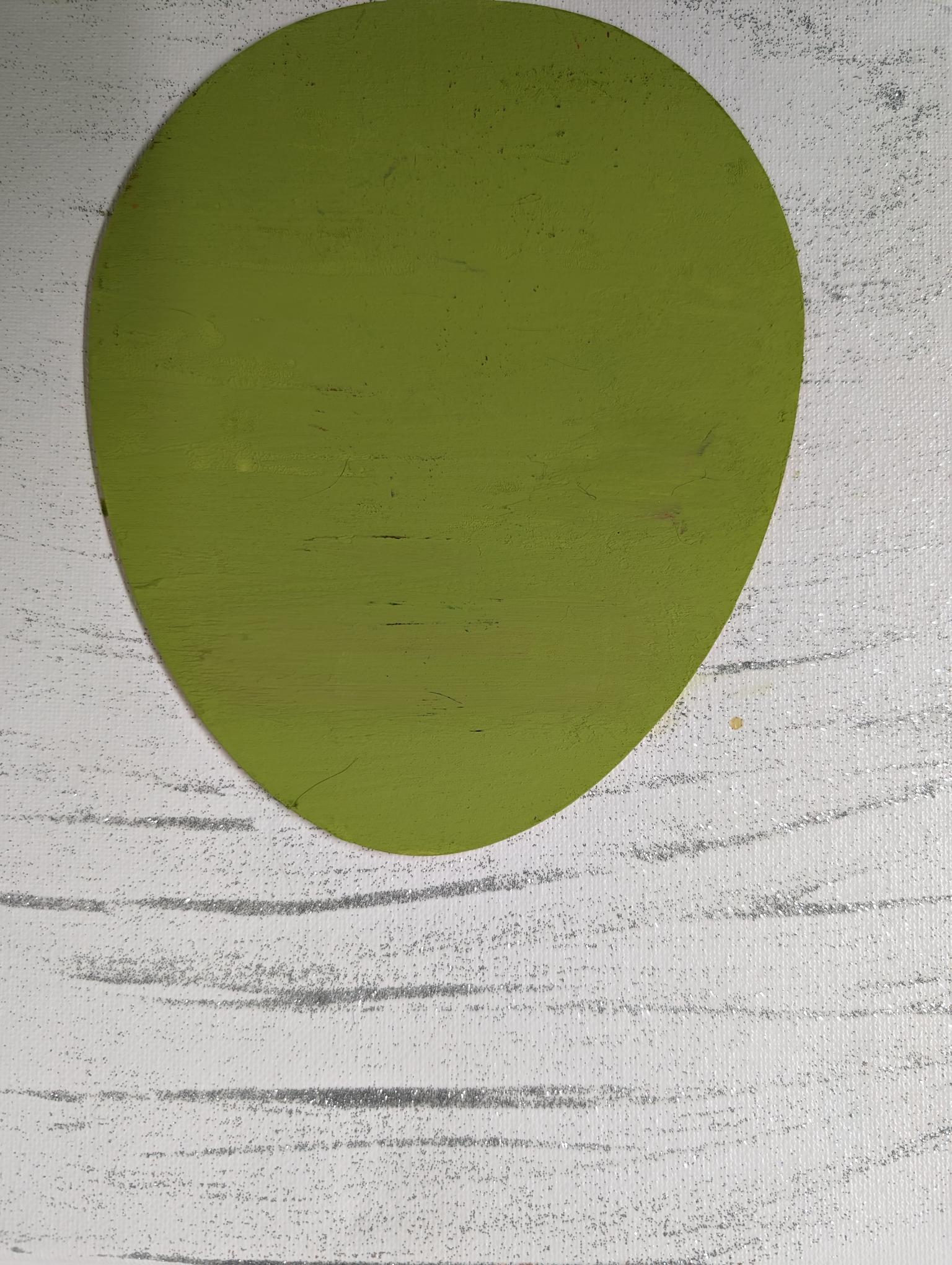
Hope & Rebirth
“Every gardener knows that under the cloak of winter lies a miracle…a seed waiting to sprout, a bulb opening to the light, a bud straining to unfurl. And the anticipation nurtures our dream.” – Barbara Winkler
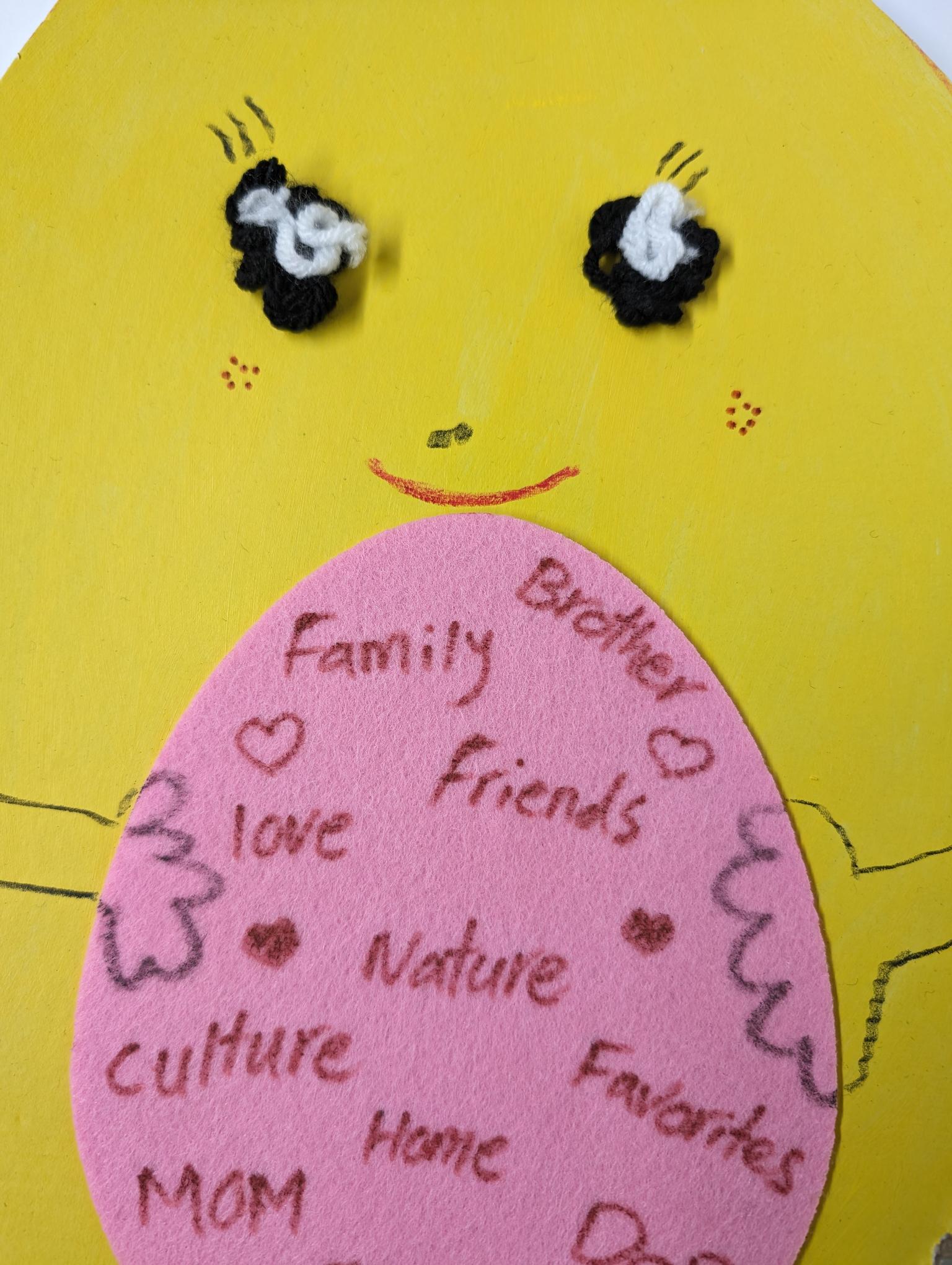
What are some ways the community can help you to build resilience? The core components of resilience include:
-
Building connections
-
Wellness
-
Healthy Thinking
-
Finding meaning
How can the community (programs, services, other people) support you in building resilience? Are there specific support/ programs/ resources that you would like to see in the community?
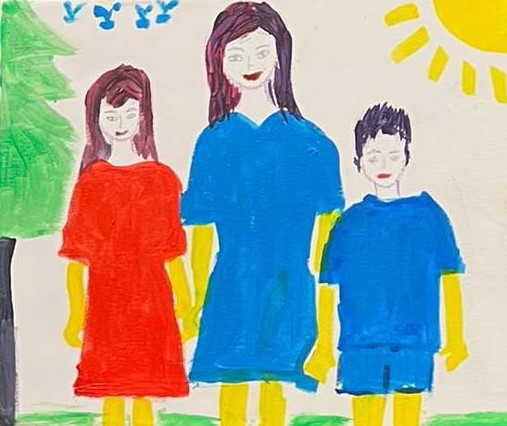
Perseverance
“Despite challenges, the unwavering support and assistance from my children, family and friends have been instrumental in my perseverance.”
「尽管面临挑战,因为自己的孩子,家人和朋友坚定不移的支持和帮助,让我坚持到现在。
After immigrating to Vancouver and starting a family, I often found myself navigating various aspects related to raising children, including communication with teachers and healthcare professionals. My limited proficiency in English created a significant language barrier, making it more challenging to address issues. Unfamiliarity with the local social system and customs added an extra layer of complexity, leading to many challenges. The absence of relatives who would usually provide support meant that I had to manage everything independently, and it’s not that easy to arrange everything daily.
Sometimes I feel that my self-confidence is being undermined and I doubt my life and my decisions. Yet, I need to learn how to adapt to my new community and bring a positive mindset and take care of my body. Because of the unwavering support of my children, family, and friends, I have persevered by improving my communication skills, actively seeking information on the Internet, and proactively reaching out to community programs for guidance.
Looking back on this journey, seeing my children grow up healthy and happy is a source of immense joy. I look forward to seeing them contribute positively to the community in the future. I think seeing them grow in a healthy environment brings me hope.
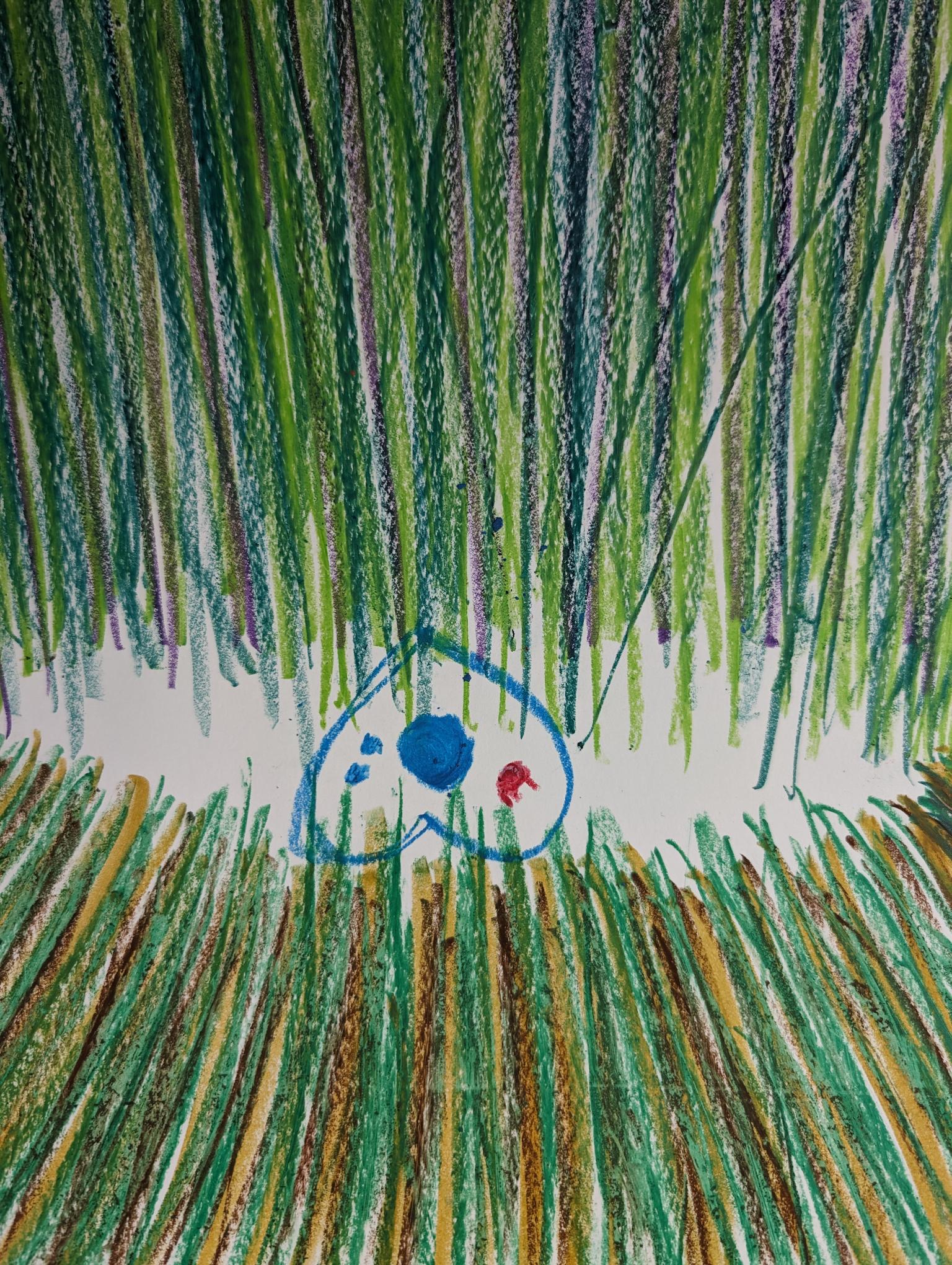
Mindset
“The mind is everything. What you think, you become.” – Buddha
“You wouldn’t plant a seed and then dig it up every few minutes to see if it has grown. So why do you keep questioning yourself, your hard work and your decisions? Have patience, stop overthinking and kepp watering your seeds.” – Steve Bartlett | The Mindful Journal
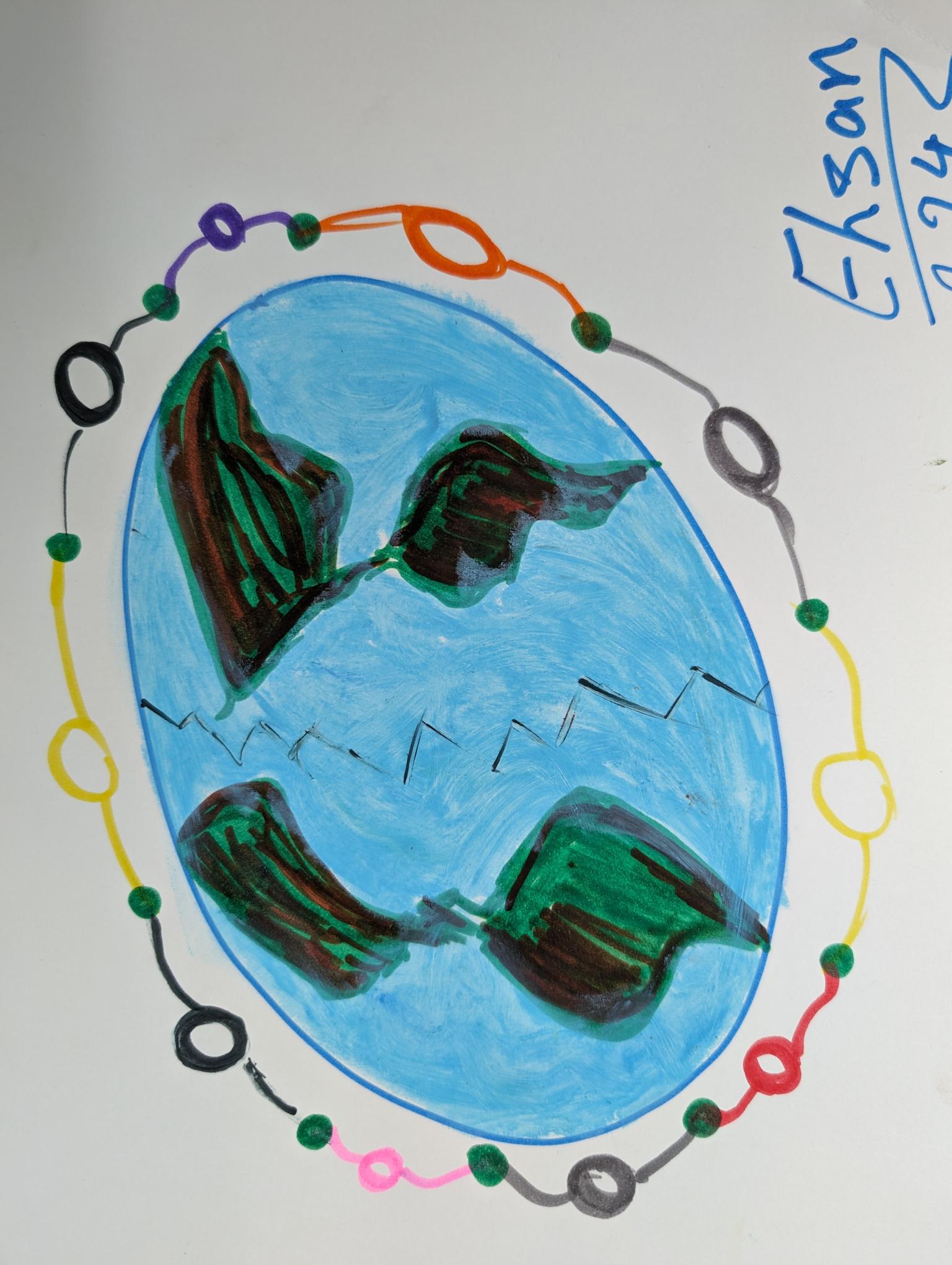
Human beings are members of a whole
Human beings are members of a whole,
In creation of one essence and soul.
If one member is afflicted with pain,
Other members uneasy will remain.
If you have no sympathy for human pain,
The name of human you cannot retain.
— A poem by the Persian poet Sa’adi (1210 – 1290)
gracing the entrance of the Hall of Nations of the
United Nations building in New York City
بنىآدم اعضای یک پیکرند
که در آفرینش ز یک گوهرند
چو عضوى به درد آورَد روزگار
دگر عضوها را نمانَد قرار
تو کز محنت دیگران بیغمی
نشاید که نامت نهند آدمی
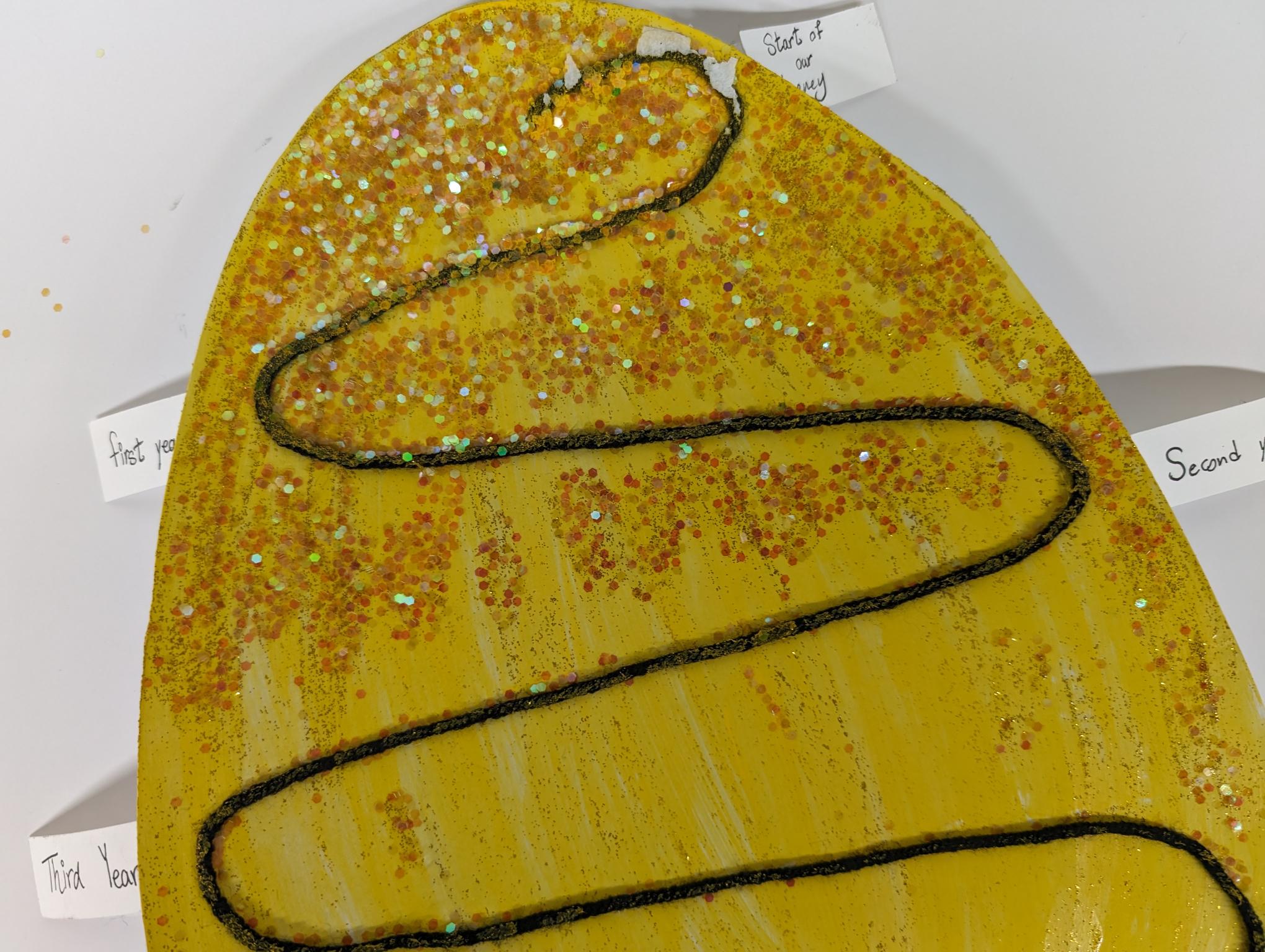
Think of all the things you care about. Reflect on what matters most to you. Now think about your own strengths and talents.
What goals have you set for yourself and for your family? What actions can you start that will help you achieve your goals?
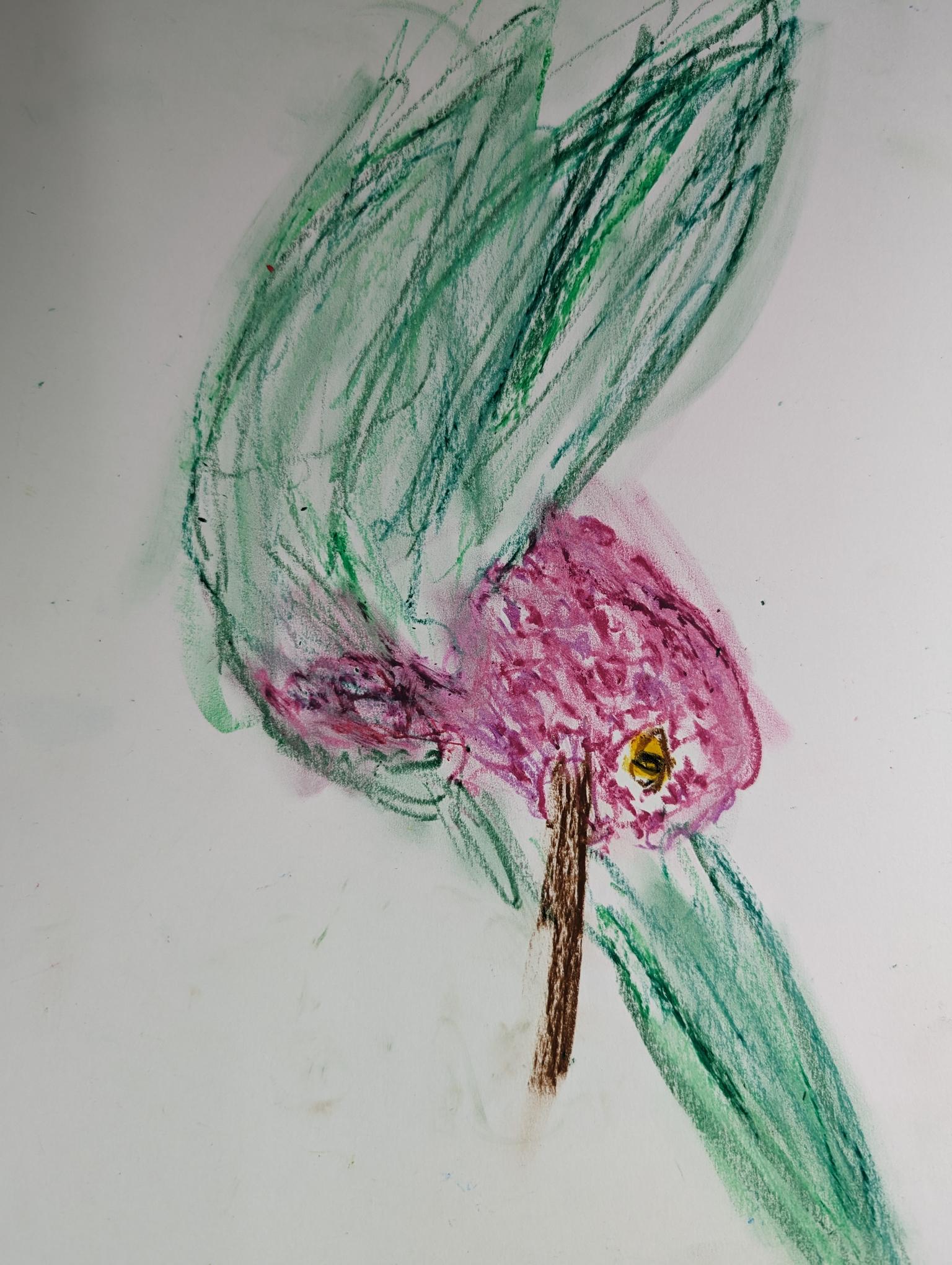
What you do not know, you will fear.
If you talk to the animals they will talk with you and you will know each other. If you do not talk to them you will not know them, and what you do not know you will fear. What one fears one destroys.” – Chief Dan George, Tsleil-Waututh Nation
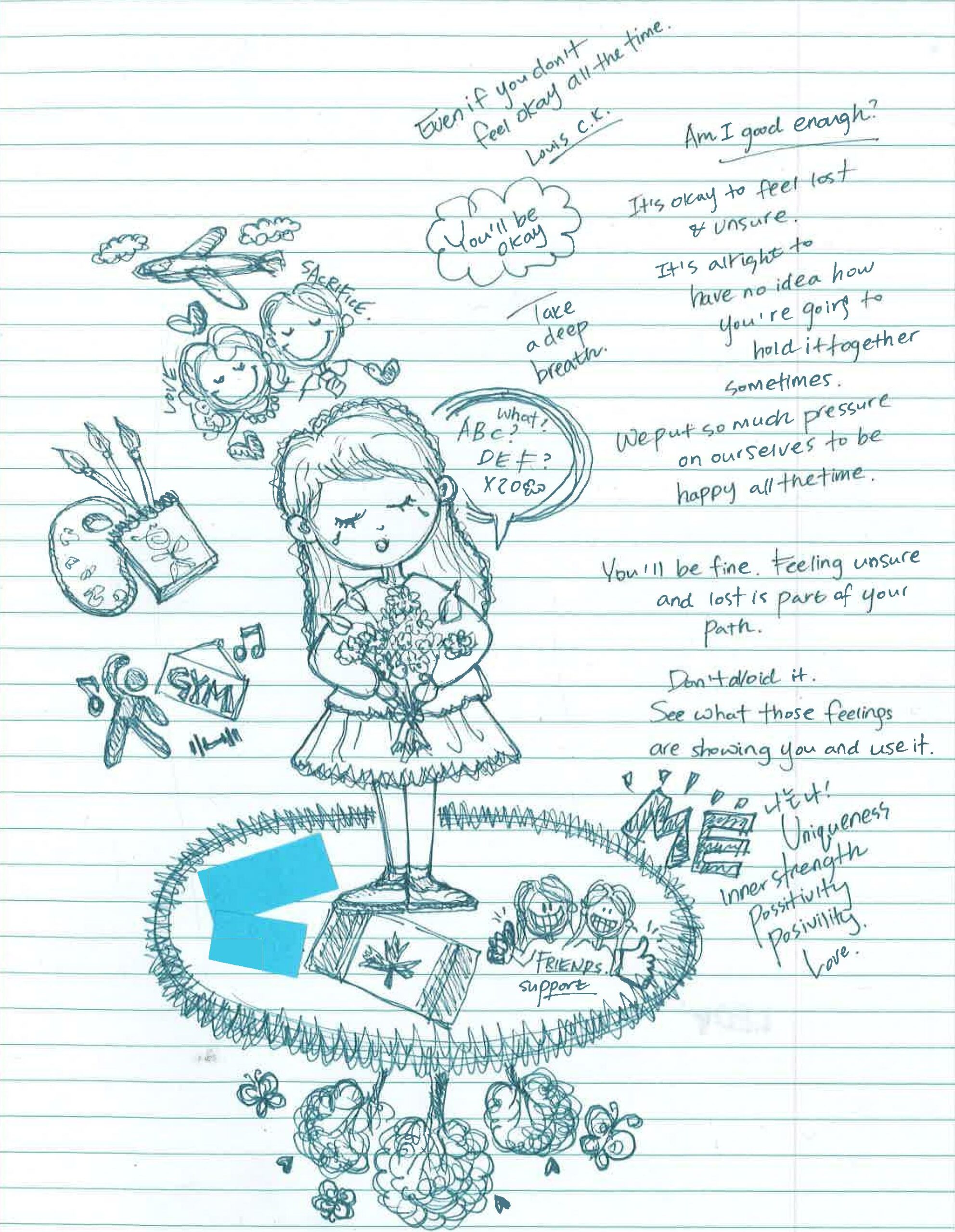
Am I good enough?
“It’s okay to feel lost and unsure. See what those feelings are showing you. Let your uniqueness shine.”
확실하지 않아도, 길을 잃은 것 같아도 괜챦아요. 그런 기분이 당신에게 보여주는 것이 무엇인지 살펴보아요. 당신만의 특별함이 빛나도록 해 보아요.
“It’s okay to feel lost and unsure.
It’s alright to have no idea how you’re going to hold it together sometimes.
We put some much pressure on ourselves to be happy all the time.
You’ll be fine. Feeling unsure and lost is part of your path.
Don’t avoid it.
See what those feelings are showing you and use it.
Let your uniqueness, inner strength, positivity, and love shine…
To see the possibilities.”
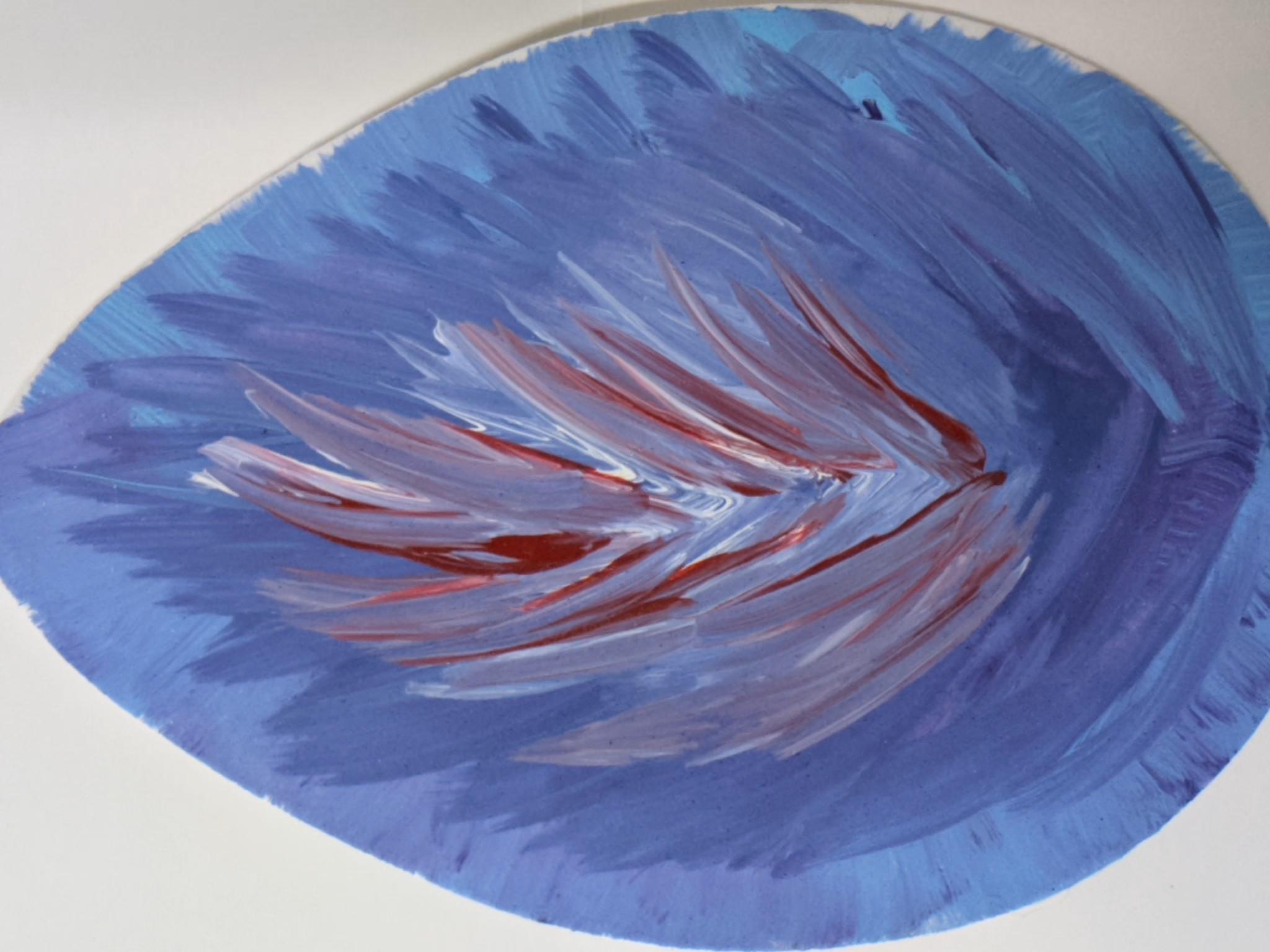
May hope forever wipe away your tears
May the stars carry your sadness away, may the flowers fill your heart with beauty, may hope forever wipe away your tears. And, above all, may silence make you strong.” – Chief Dan George, Tsleil-Waututh Nation
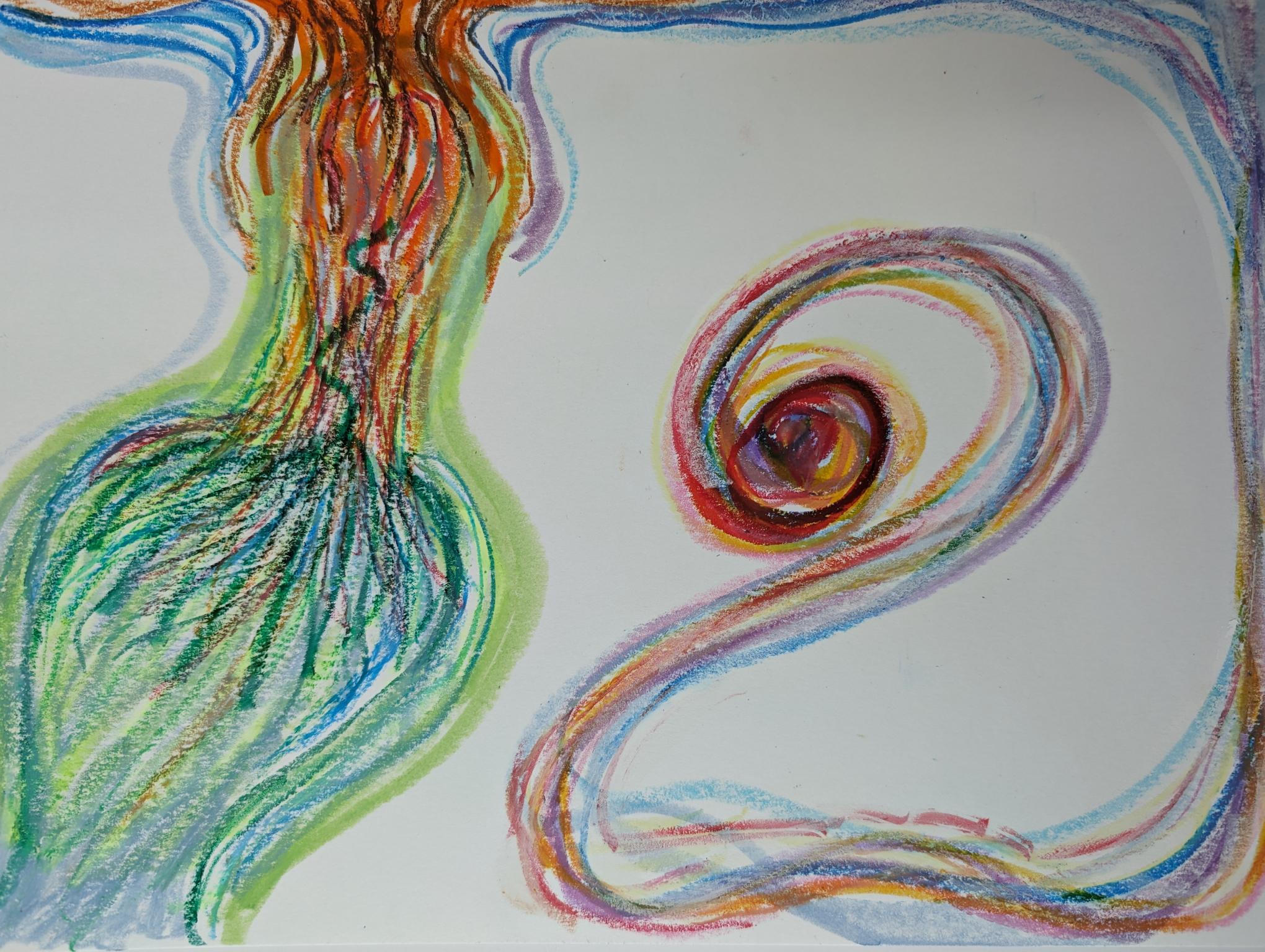
Borrowed land
“We do not inherit the land from our ancestors, we borrow it from our children.” – Haida Tribe Proverb
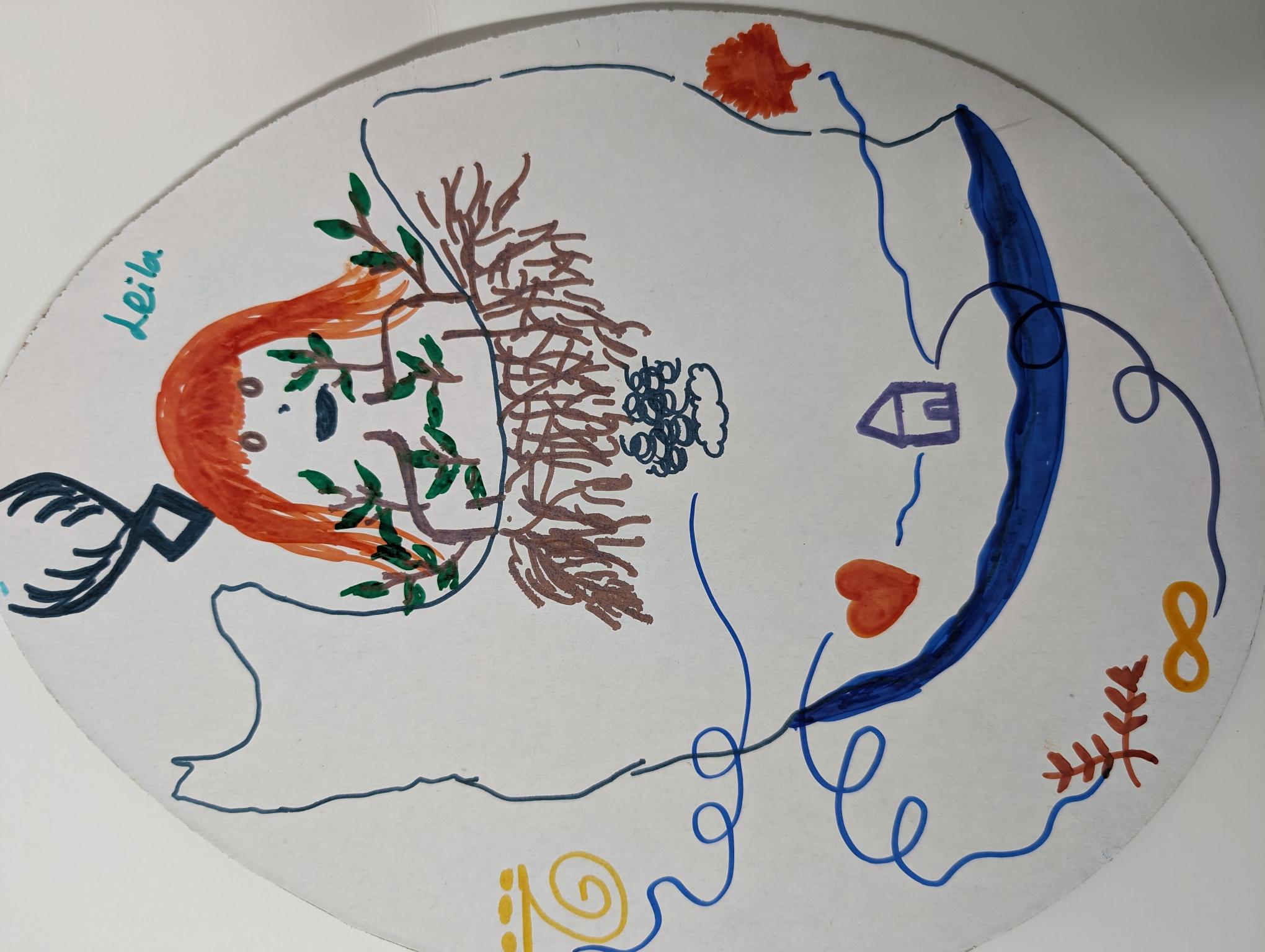
Home
What does home mean to you? Could it be a place, a person, a feeling, a memory, or all the above?
“Home is where love resides, memories are created, friends and family belong together, and laughter never ends.”
– Unknown
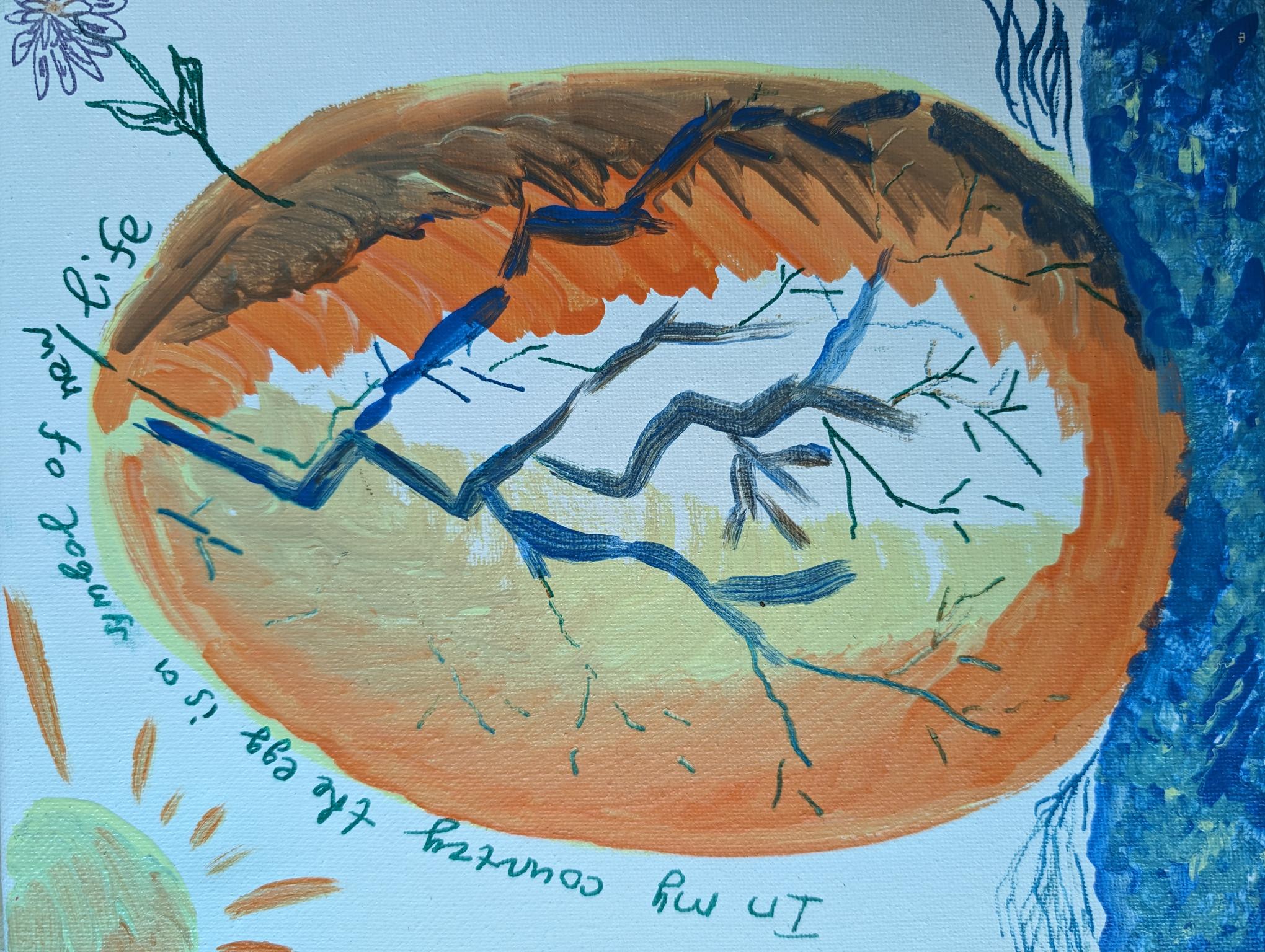
How we talk to ourselves is important in building resilience. Have you ever wanted to give up when faced with challenges? What did you say to yourself to change your perspective?
When we catch ourselves thinking “I can’t do this!” What are some phrases that you can say to yourself to move the thinking to more positive self- talk?
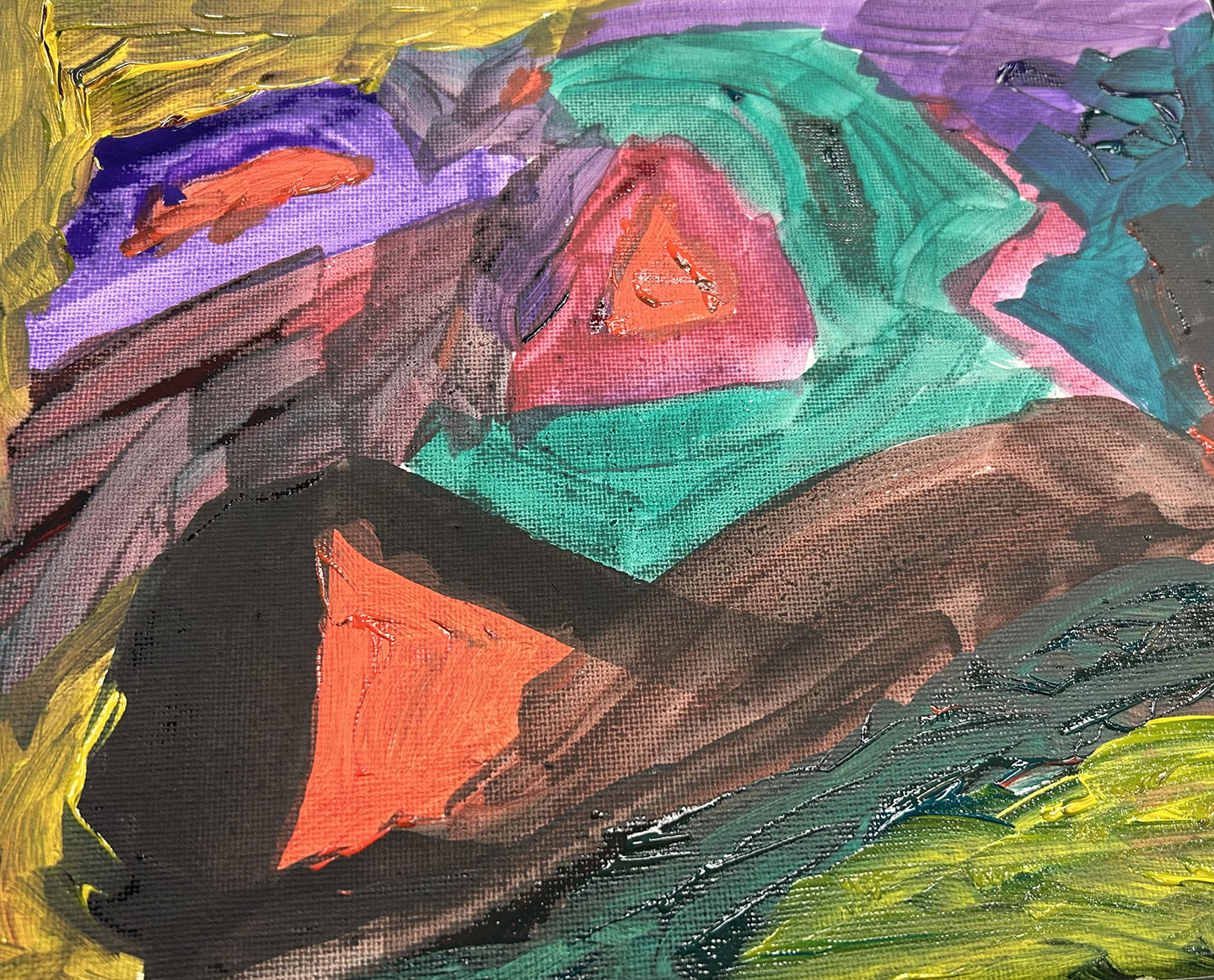
Hope
“Although it’s hard, my love for family makes me hopeful. I can grow & learn with them in the new community.”
«اگرچه سخت است، اما عشق من به خانواده مرا امیدوار می کند. من می توانم با آنها در جامعه جدید رشد کنم و یاد بگیرم.”
I never thought of immigrating. I loved my home, my family and community. My husband and I decided to immigrate because of our children. It was hard to start and build everything all over again. But through different community programs, I got to know more people and friends who have supported me. Although it is hard, I love my family and I can grow and learn with them in the new community.
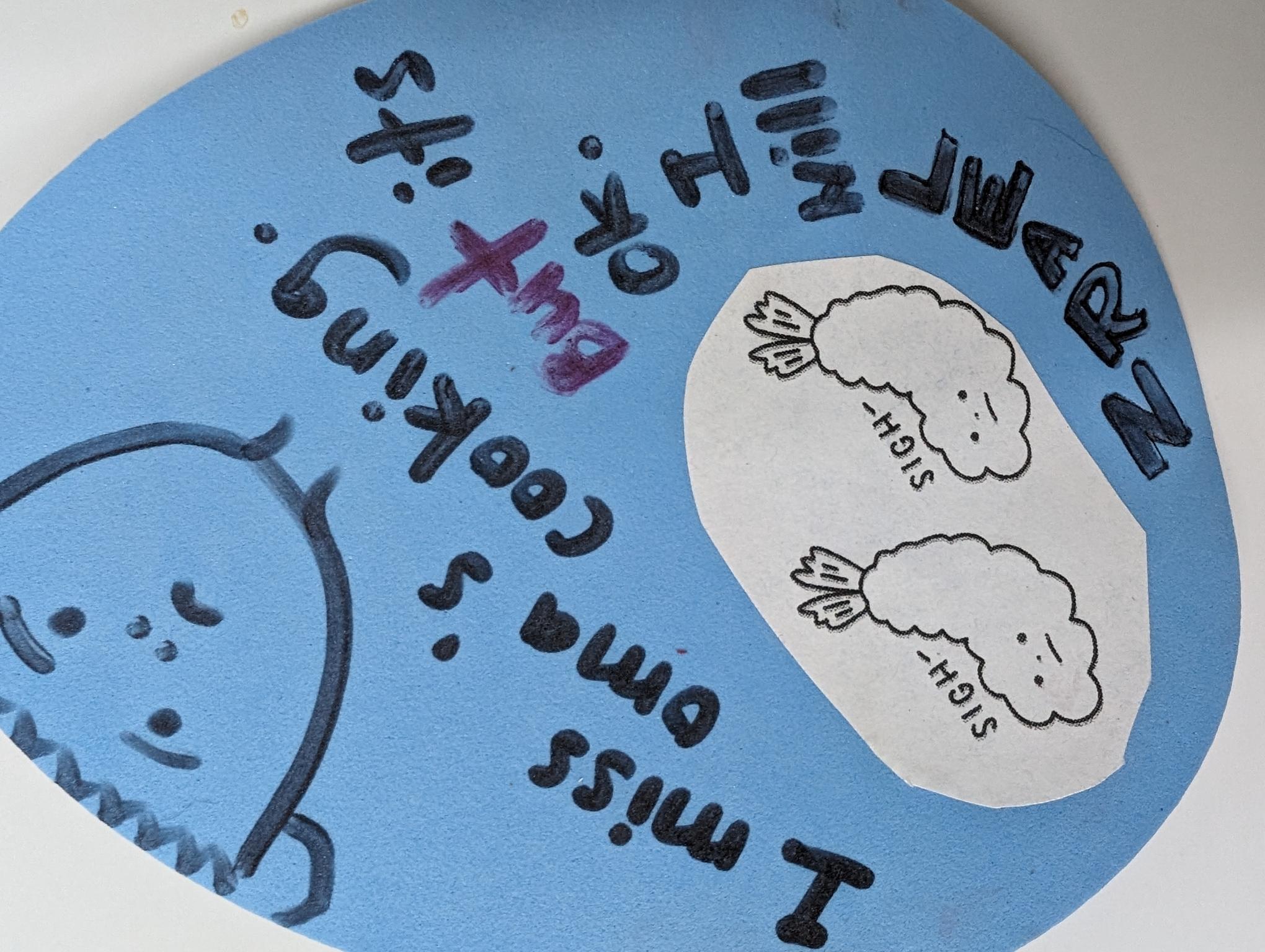
Cultural Food
Certain foods give you comfort and remind you of a warm hug.
“In my 20s, I moved to a new country and it was my first time to live on my own. I was both excited and nervous. Whenever I felt home sick, I would call my grandma in the Philippines to ask for her recipes. It was a wonderful way to connect with her, to learn how to cook dishes that I loved, and to give me comfort when I was missing home.” – Participant from Red Egg workshop
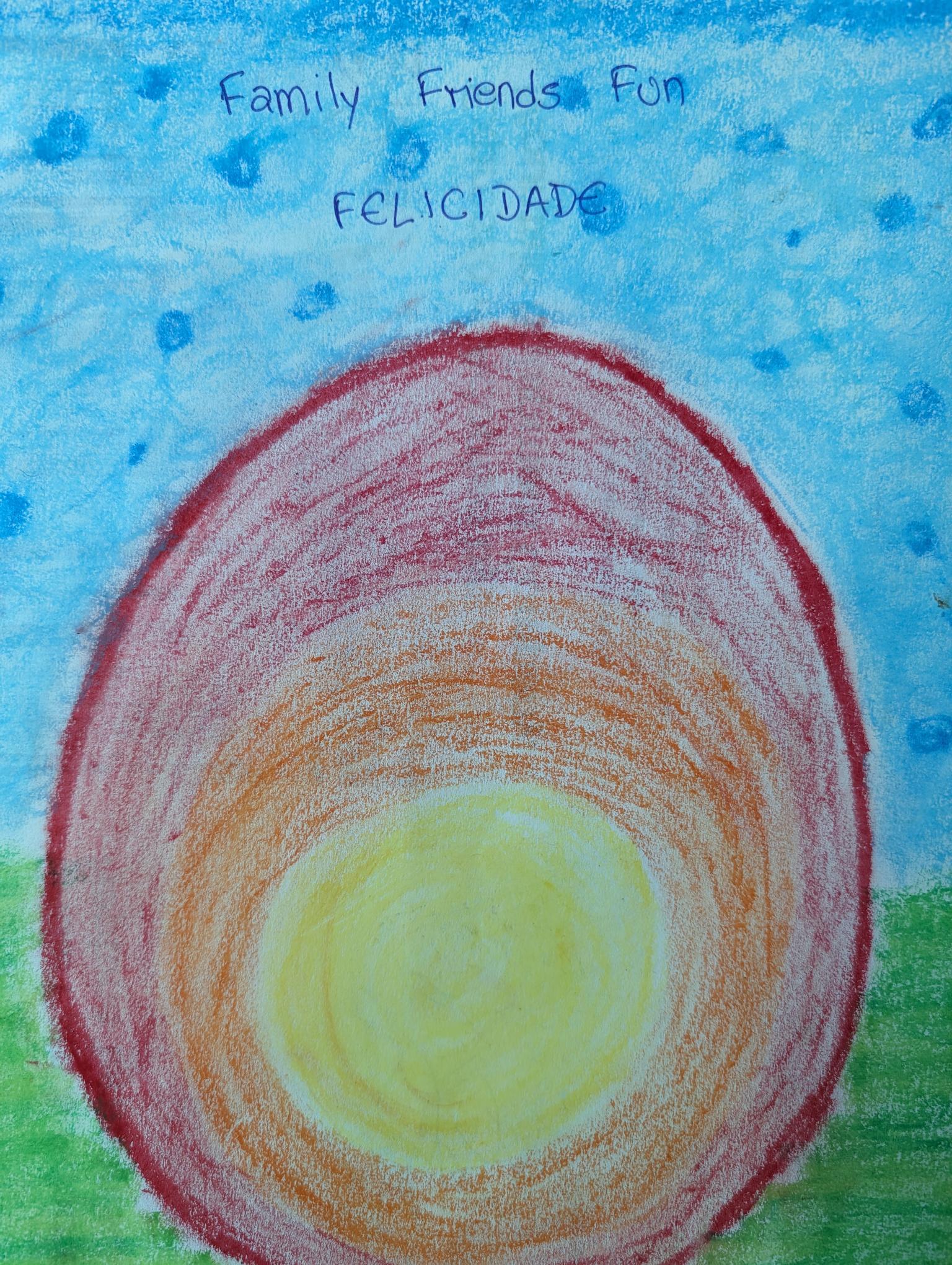
What fills your cup?
Filling your cup means keeping energy, attention, and emotional levels so we can continue to care for those we love and to complete our work and personal responsibilities.
Here are some ways to fill your cup:
*Start your day with grace
*Keep a Positive Attitude
*Add “You” to the Schedule
*Talk to a family member or a friend
*Visualize yourself in your happy place
– From Mindfulzen.co
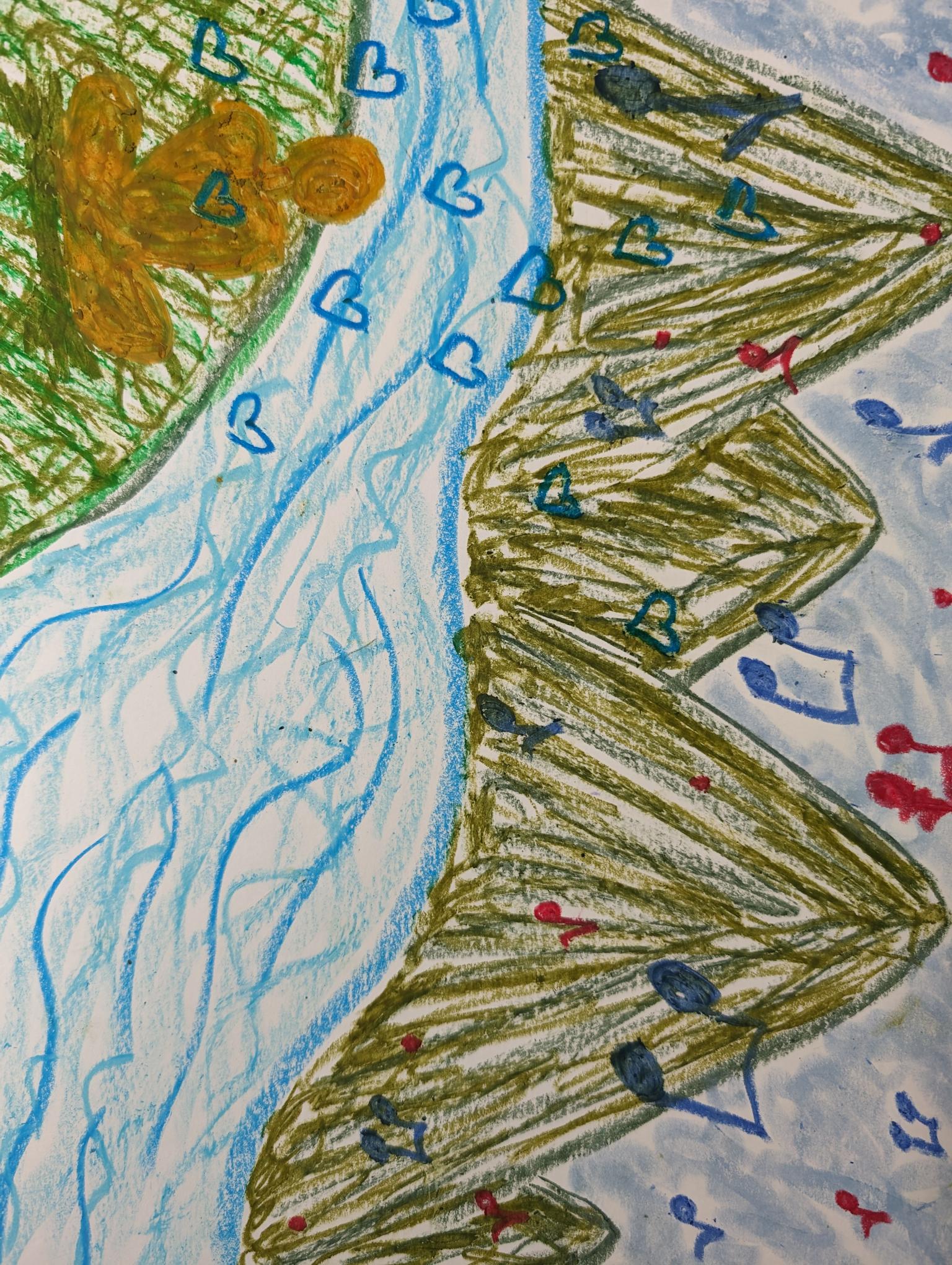
Self-Care
“Self-care is not self-indulgence, it is self-preservation.”- Audre Lorde
Have you heard the phrase, “you can’t pour from an empty cup?” Self-care enables you to nourish yourself, whether through music, nature, meditation, hobbies, or rest. What are your favourite self-care practices?
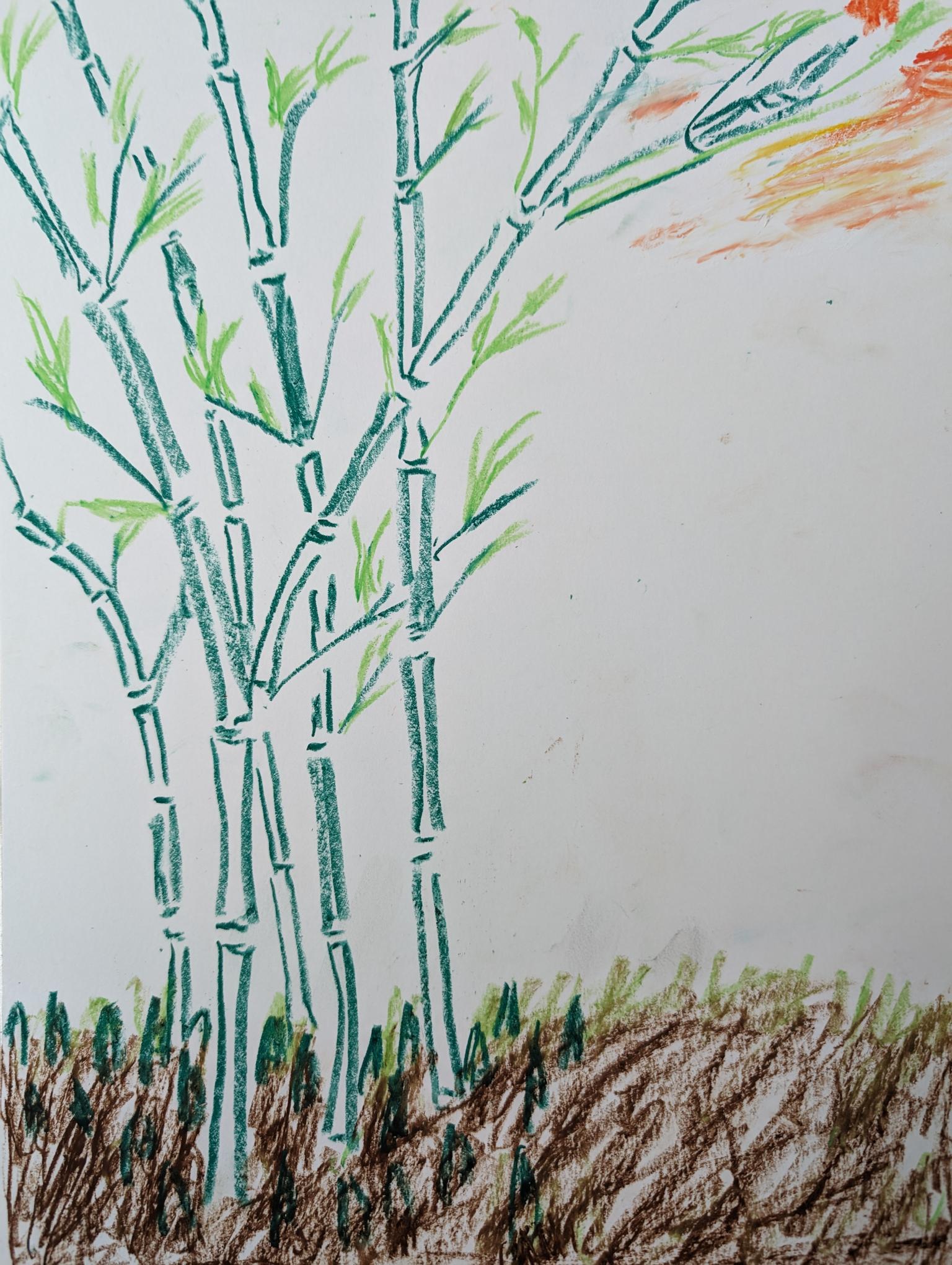
“Mistakes are proof that you are trying.” What does this quote mean to you?
Growth mindset is the belief you can learn anything with practice, hard work, and effort.
- Think of a time when you’ve made a mistake. How did you react when you made a mistake? What made you keep trying?
- Those with a growth mindset believe that skills, intellect, and talents can be developed. What are your thoughts on this?
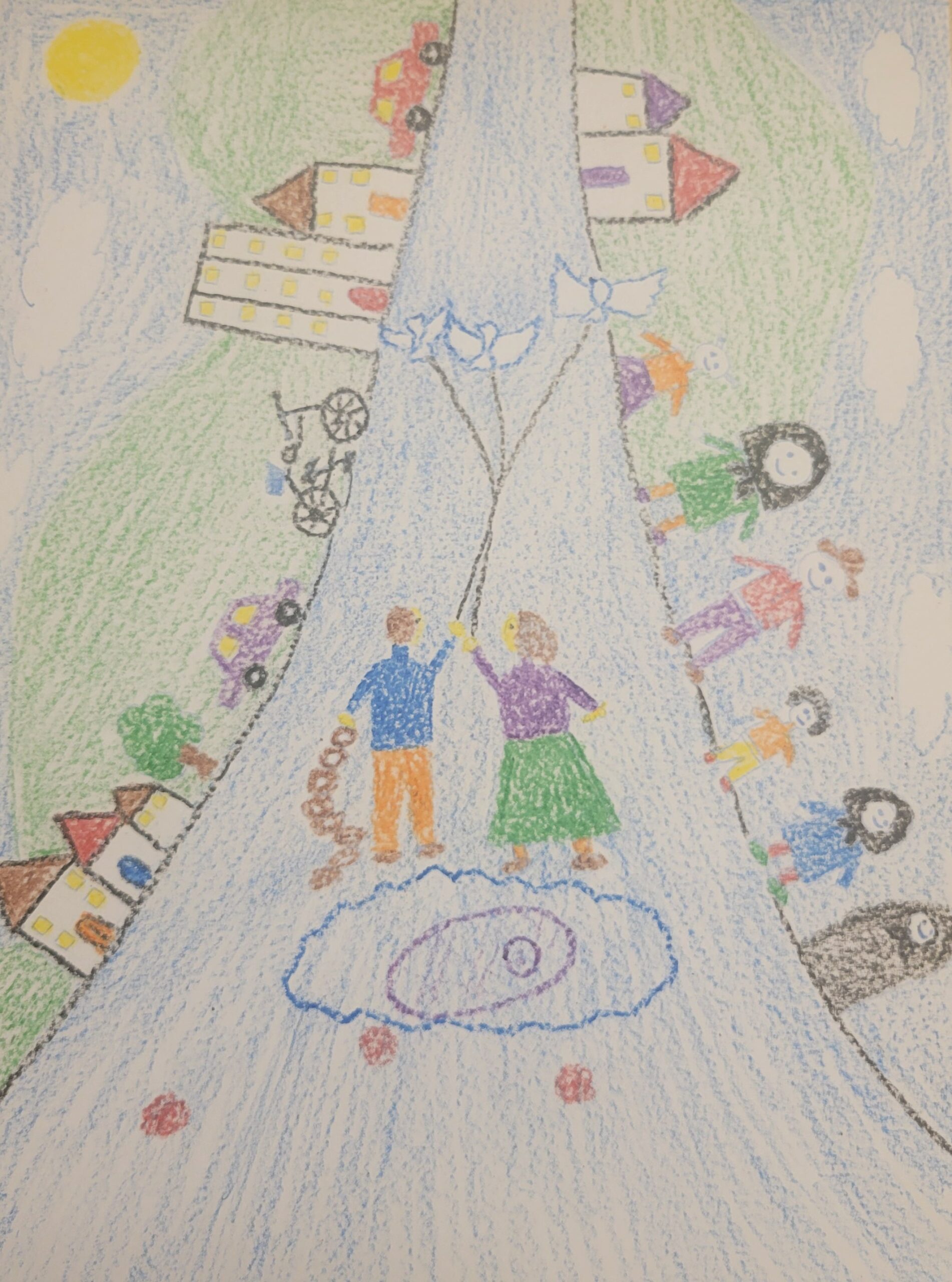
Connections
“Connecting with other parents and sharing our experiences made me realize that there’s strength in seeking help.”
ارتباط با والدین دیگر و به اشتراک گذاشتن تجربیاتمان باعث شد متوجه شوم که چه نیروی بزرگی در کمک گرفتن از دیگران وجود دارد
While he was busy working, I was home all by myself with two little babies, I used to be part of a community, but now it was just me, and I couldn’t talk to many people. Also, we didn’t have a car for a few years, and we couldn’t go to many places, so it felt like my kids missed out on a lot of things happening in the community. Because of isolation at home, whenever we tried to go out, my kids didn’t feel good. They got scared and would cry and shout when they saw people. I didn’t know how to help them. They were afraid to be outside and felt stressed when they saw people. It made going out hard for us.
I found myself tackling motherhood all on my own. I didn’t realize that help was out there; I thought it was just me facing these challenges. Spending most of my time at home, looking after my kids, I felt frustrated and alone. I had no friends to talk to or share my feelings with. The isolation made it hard to know who to reach out to for help.
Then, one day, a neighbor who spoke my language told me about a community program and introduced me to the staff. Speaking with her made me feel cared for and that my story mattered.
She made me feel like I belonged, and I found out I wasn’t the only one struggling. Sharing our story became a sign of strength. She helped me figure out how to tap into resources to address my kids’ challenges. I attended workshops to learn more about parenting which became a source of valuable knowledge and support. Connecting with other parents and sharing our experiences made me realize that there’s strength in seeking help and that others and I didn’t feel alone anymore. Looking back, I see not just hard moments but times when I stayed strong, and I found a group that welcomed me with open arms.
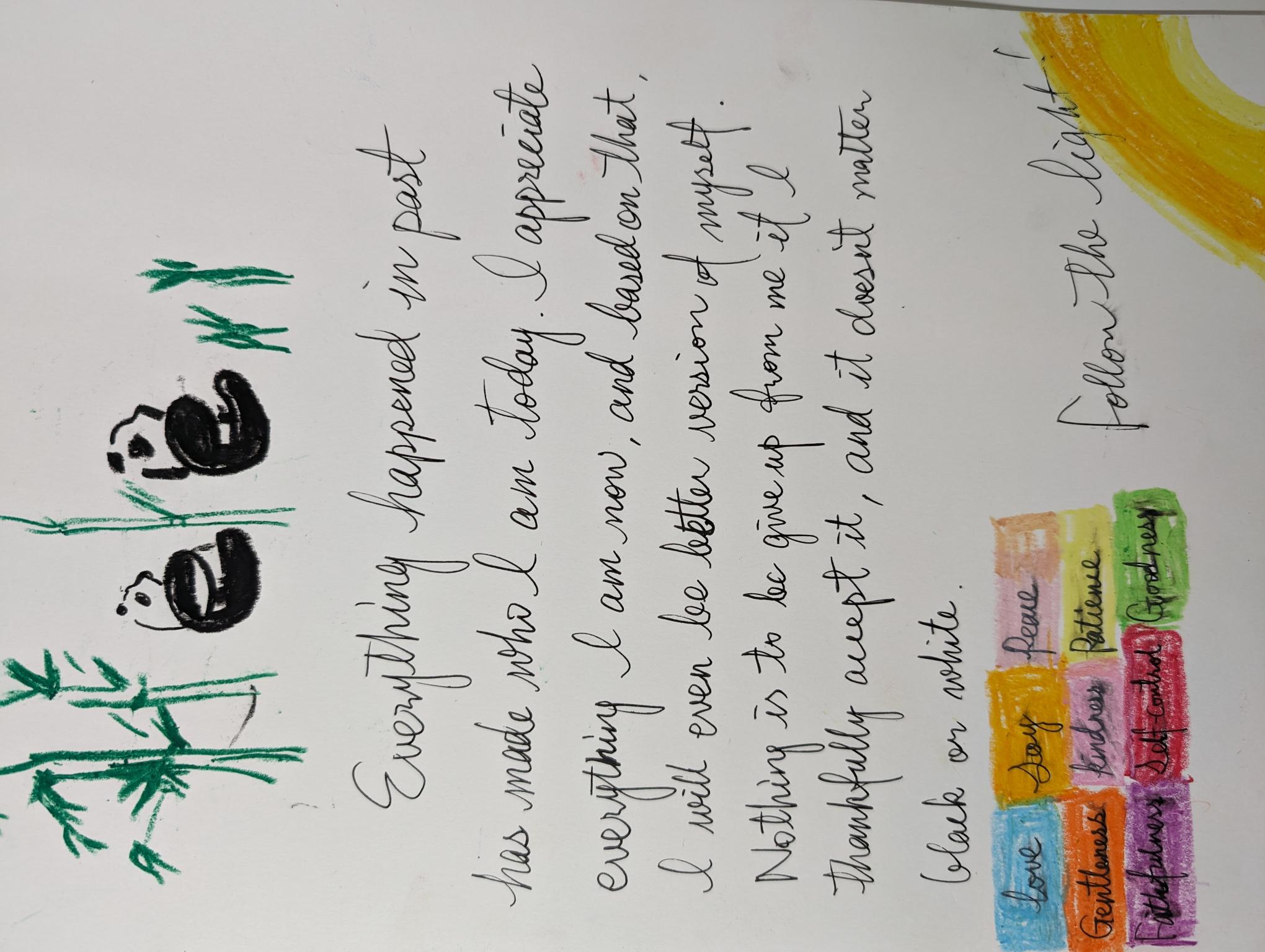
What does resilience mean to you?
Love, peace, gentleness, kindness, patience, and faithfulness
“Everything [that] happened in [the] past has made me who I am today. I appreciate everything I am now, and based on that, I will be [an] even
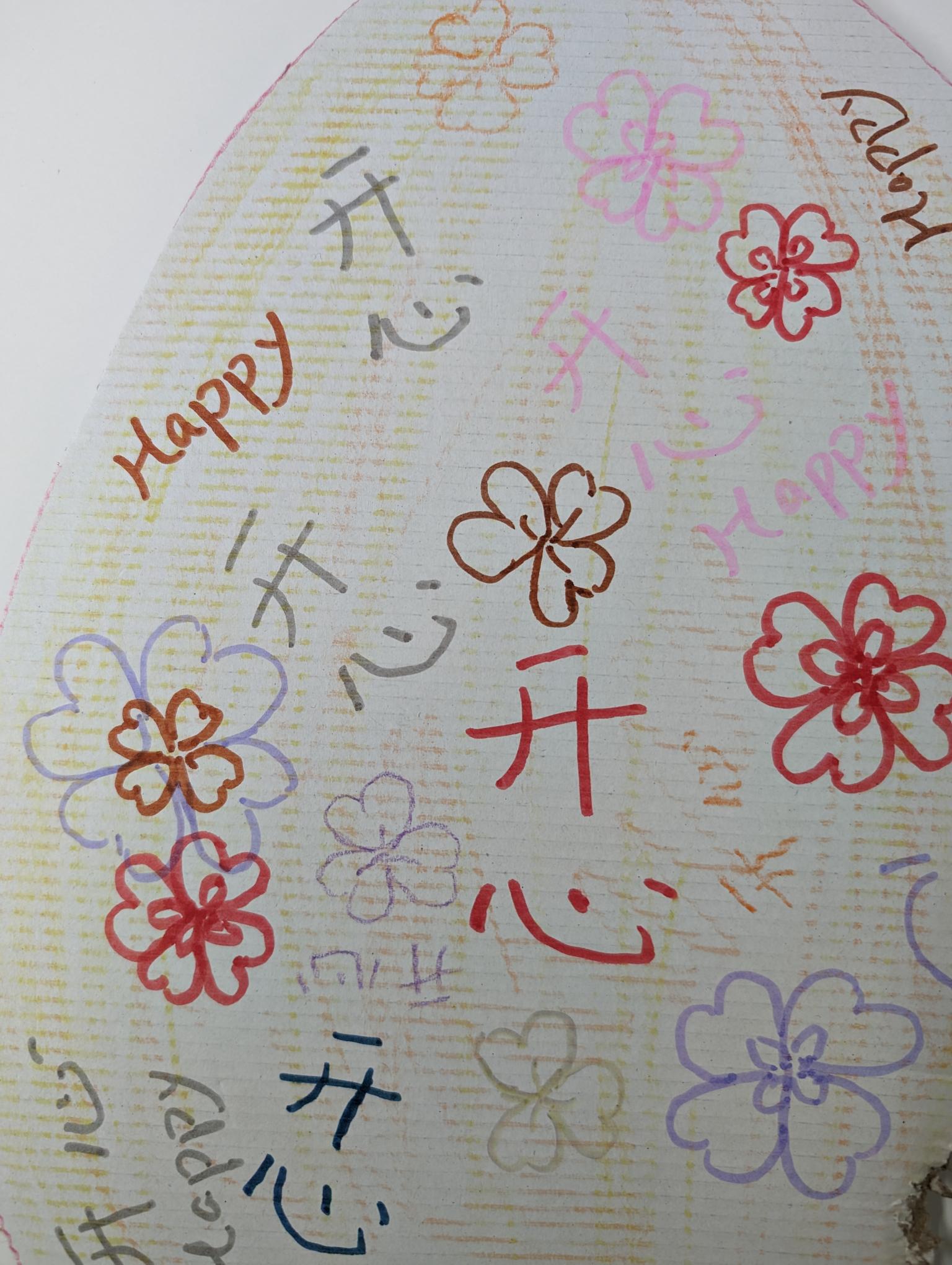
What do you want to create for your future self?
“Success isn’t about how your life looks to others. It’s about how it feels to you. That’s what it means to be true to yourself.” Michelle Obama
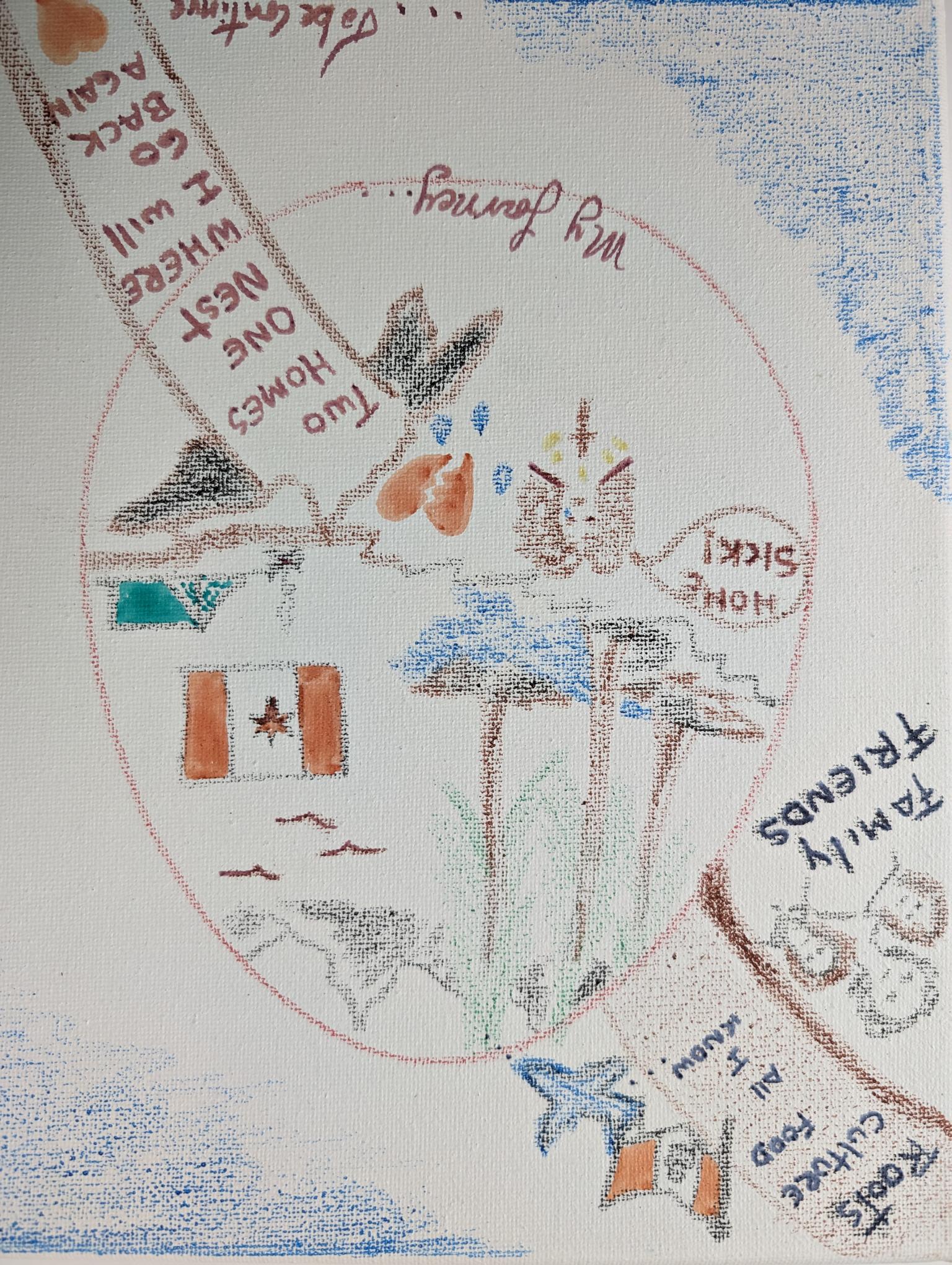
Every journey is meaningful
“Sometimes it’s the journey that teaches you about your destination.” – Drake
What is meaningful about your journey?
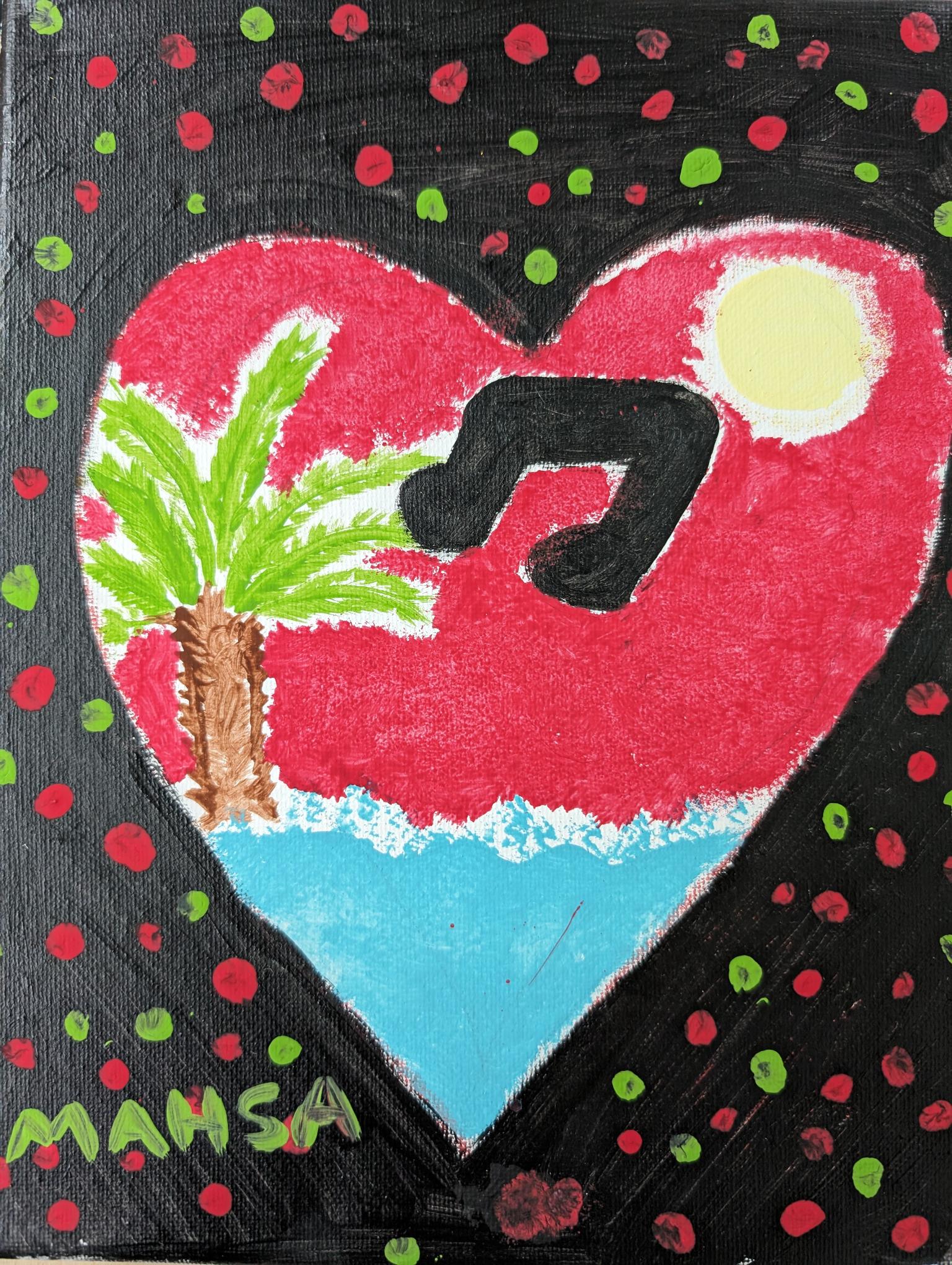
What does the term “self-care” mean to you? What emotions come up when self-care is mentioned?
Self-care can look different for everyone. From exercising, eating fruits & vegetables, drinking more water, going for a walk with a friend, or even reading a book uninterrupted, there are many ways for each person to take care of their own needs. This can also look like celebrating cultural traditions and practicing ancestral language.
- Are there feelings of guilt that come up when you take time out of your day for yourself? Why do you think that is?
- How are the people around you impacted when you take some time for yourself? How are they impacted when you do not take some time for yourself?
- What are some ways that you could incorporate self-care in your day?
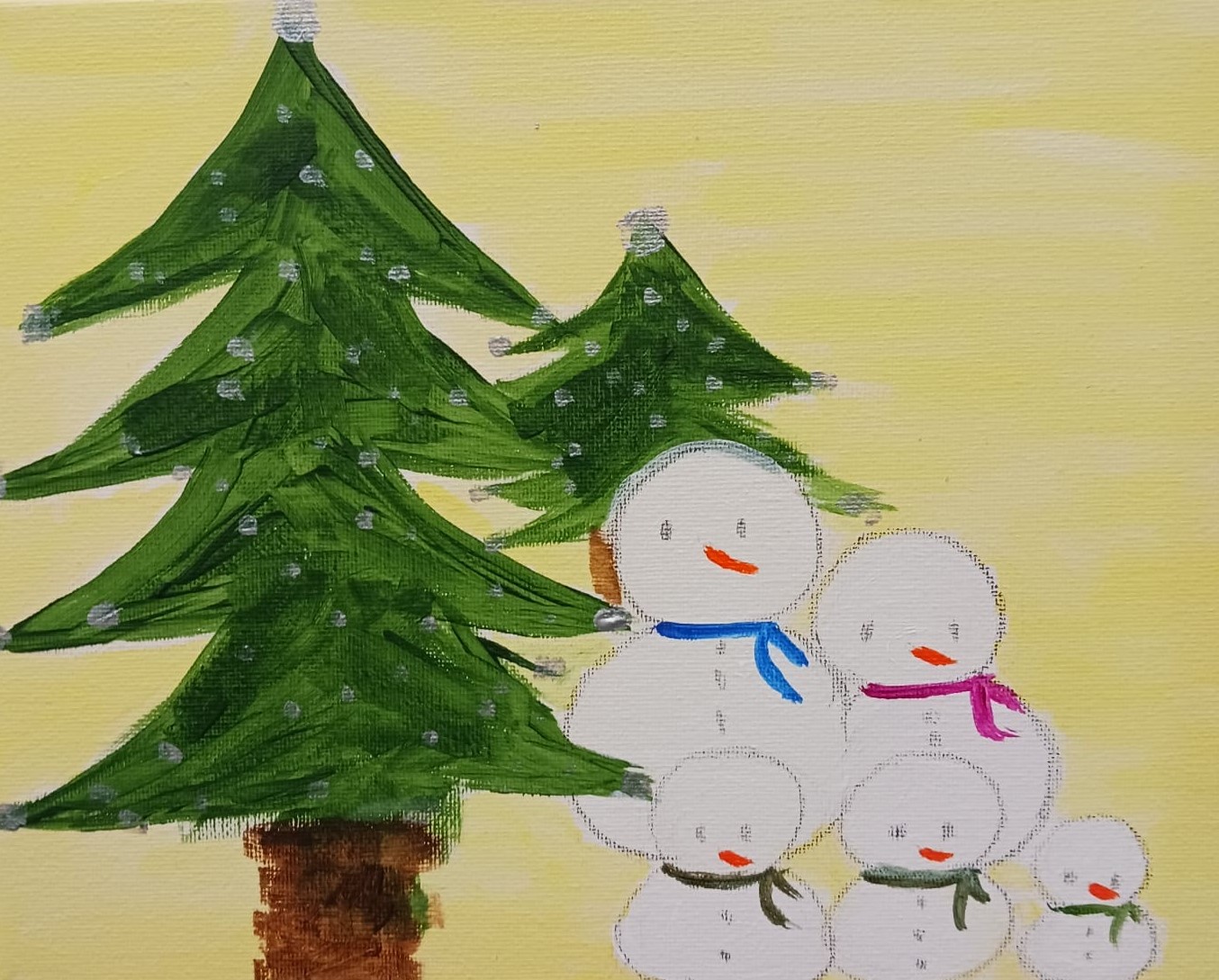
Embracing change
“Embracing change means letting go of the familiar, abandoning preconceived notions and approaching life in a new country with a mindset of continuous learning and appreciation for multiculturalism.”
「拥抱变化,就是放空自我,放下我们曾经熟悉的一切,放下理所当然的思维模式,在新的国度抱着重新学习一切,融入这里的生活模式,多元文化。」
I didn’t realize that I have been living in Canada for over 5 years. Time flies. Looking back to March 2018 when I arrived in Canada with my son and six pieces of luggage, leaving behind the home I had lived in for over 30 years, I felt a mix of excitement and uncertainty. The excitement was about reuniting with family, and the uncertainty was whether I would adapt to this unfamiliar country. As I set foot on Canadian soil for the first time, my heart was both thrilled and hesitant.
With the support of my family, I believe I have settled down steadily and no longer feel lost. When I think back to the early days of immigration, certain memorable moments still come vividly to my mind.
While taking care of my two-year-old twin boys, adapting to a new language environment, and settling various matters at home, the pressure was overwhelming. Even though I enjoyed the beautiful scenery every day, there was still a deep sense of emptiness, being far away from family and friends.
During this time, I experienced severe symptoms of hormonal imbalance, and emergency room visits couldn’t identify the cause. Fortunately, I found a traditional Chinese medicine practitioner who helped restore my health. After this, I began to regain my strength. I started to participate in community programs with my sons and I got to know a group of enthusiastic mothers. My sons made new friends, expanding our social circle.
Embracing change with an “empty cup” mentality is the lesson I learned from my immigration experience. An “empty cup” means letting go of preconceived notions, and approaching life in a new country with a mindset of learning, whether it’s learning about different cultures or new skills. There are unknown changes and challenges in life, and by having a mindset of learning, we can step out of our comfort zones. Home is where you have family. Difficulties can be solved, and remember, there will be a rainbow after the rain.
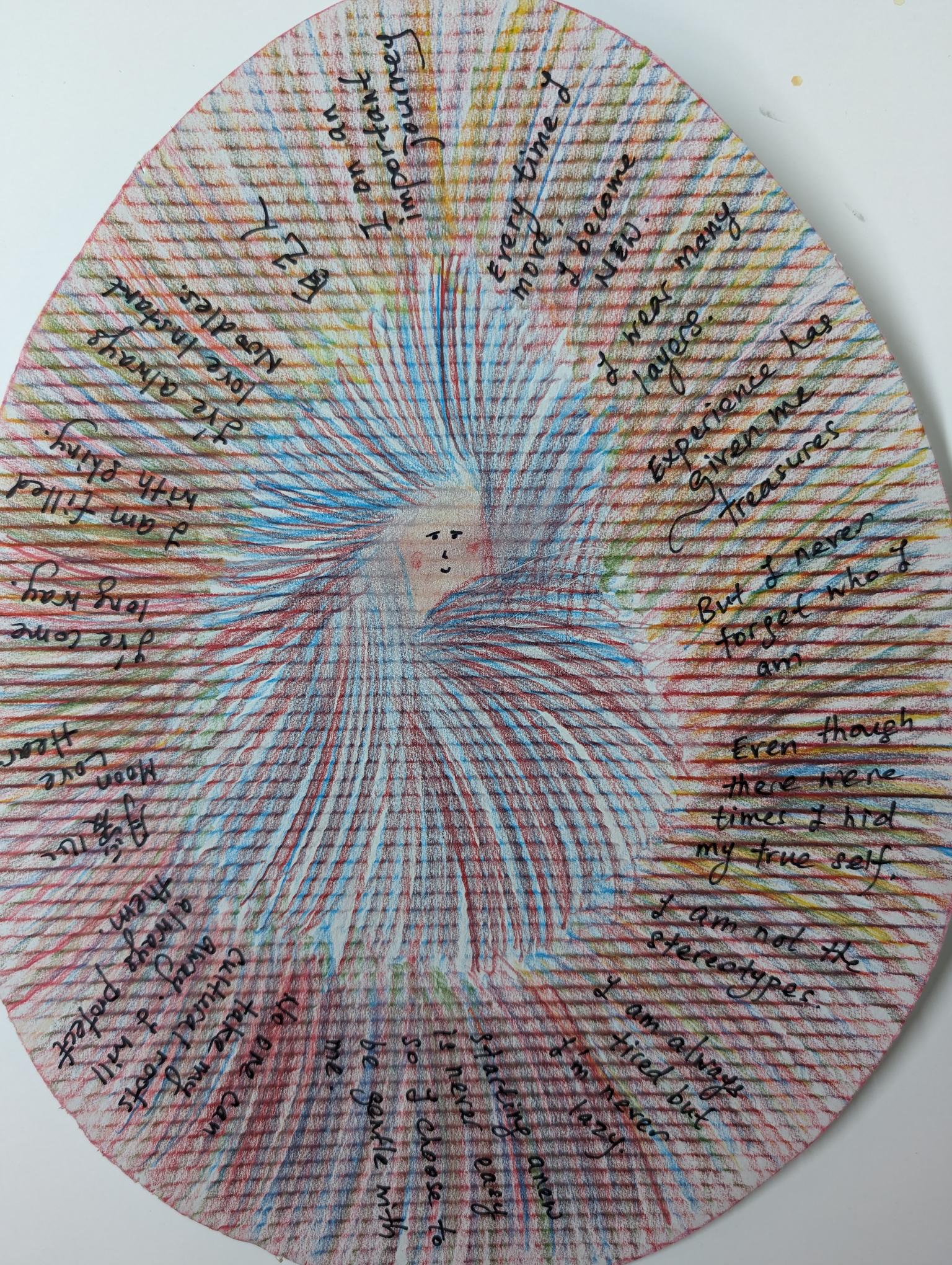
What stories are important to you?
Stories are a powerful way to connect us to ancient traditions, legends, myths, and symbols.
Stories can also be used to build rapport, entertain, influence, unite, and persuade. Think of your favourite story. Why is it important to you?
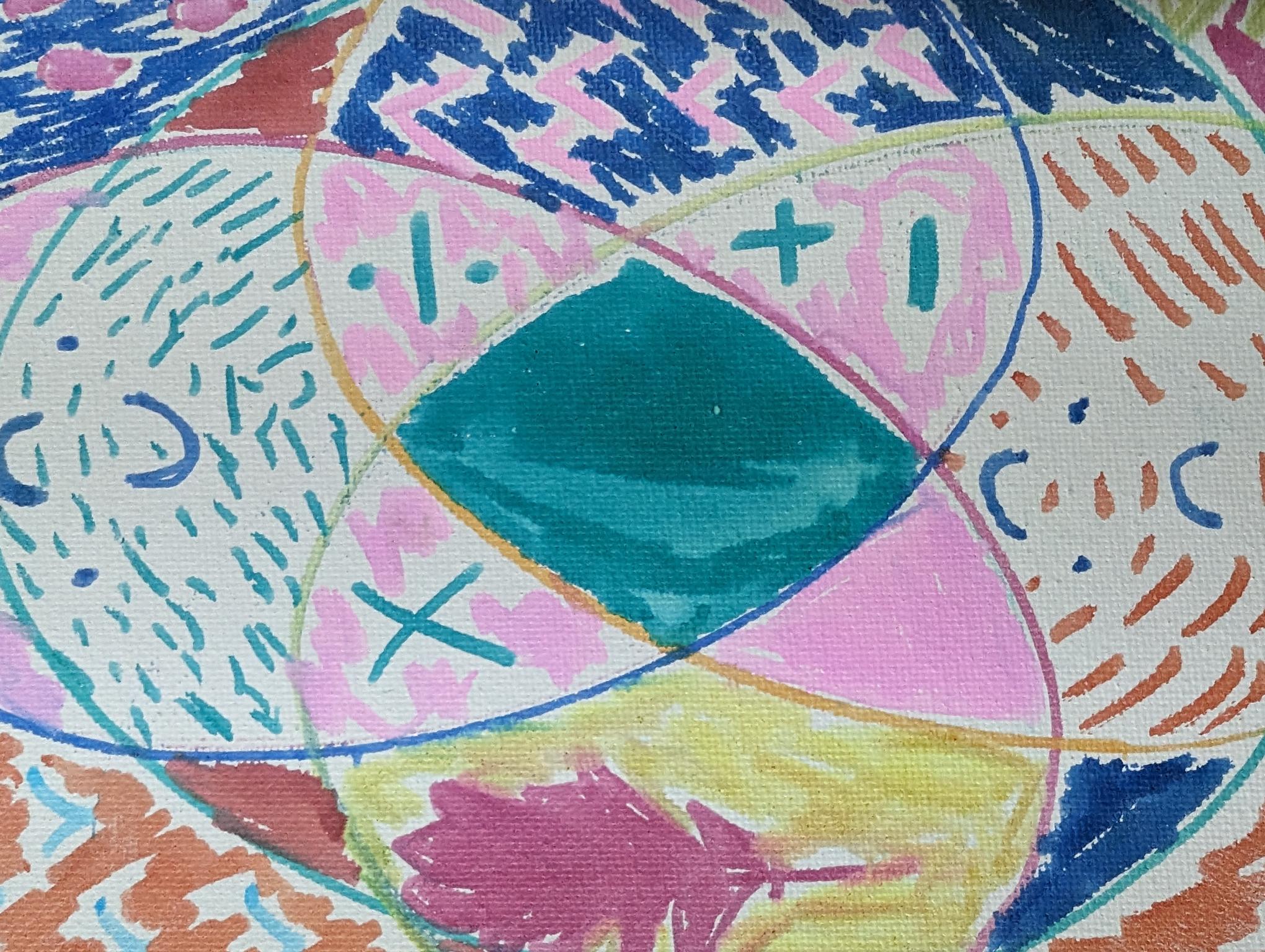
Eggs & Resilience
How are eggs and resilience connected?
Eggs are typically seen as fragile, yet they nourish and nurture, whether in animals and humans or as food. As food, there are many ways to prepare or cook them. Resilience, just like an egg, can adapt to different situations. Fun fact: broken eggshells can also make a great fertilizer for plants.
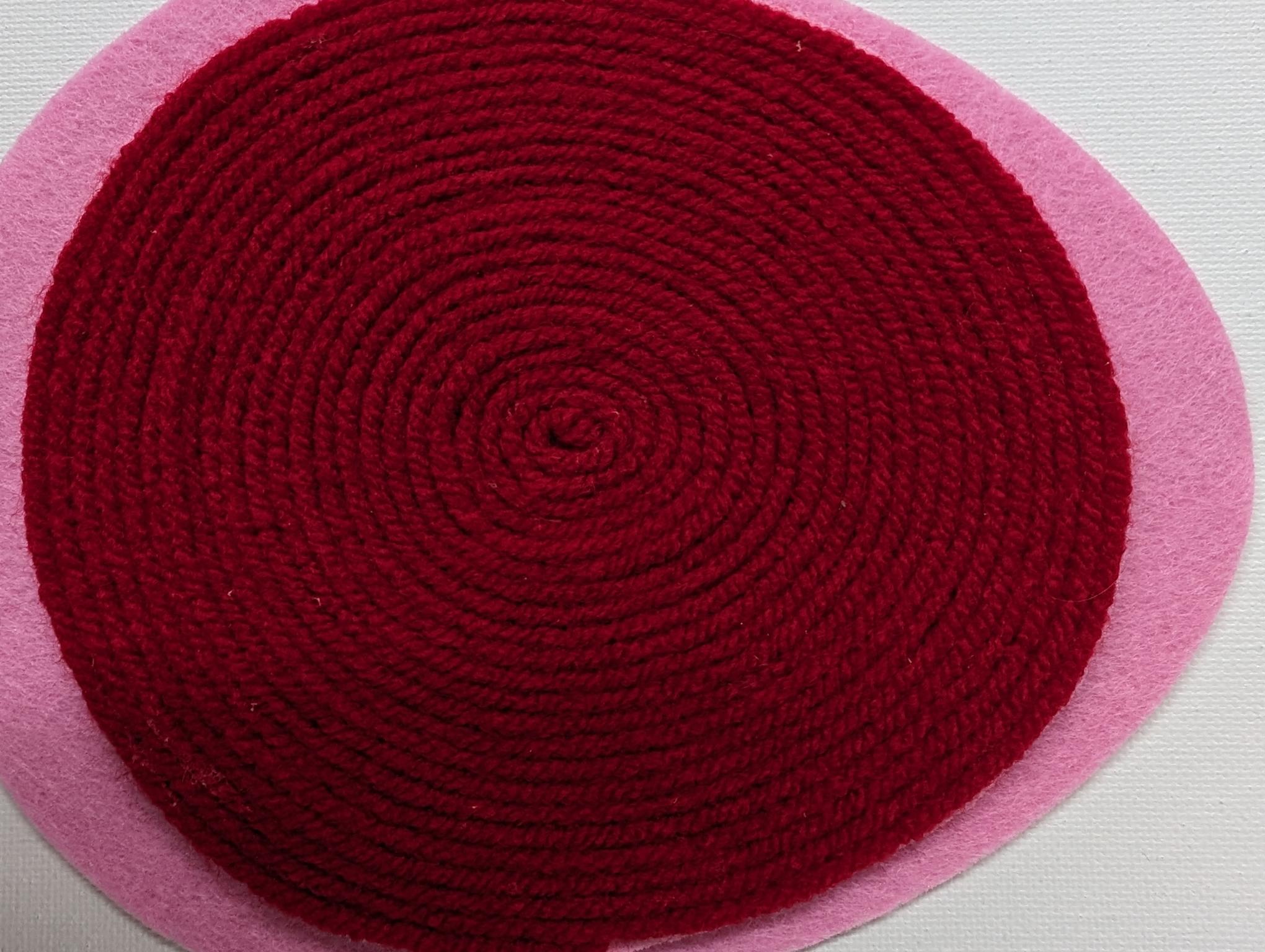
The Red Egg
In some cultures, giving someone a red egg is a tradition to honour and celebrate new beginnings.
Red eggs can be given to honour and celebrate new beginnings, such as a new birth, new job, marriage, etc. What are some ways that you celebrate new beginnings?
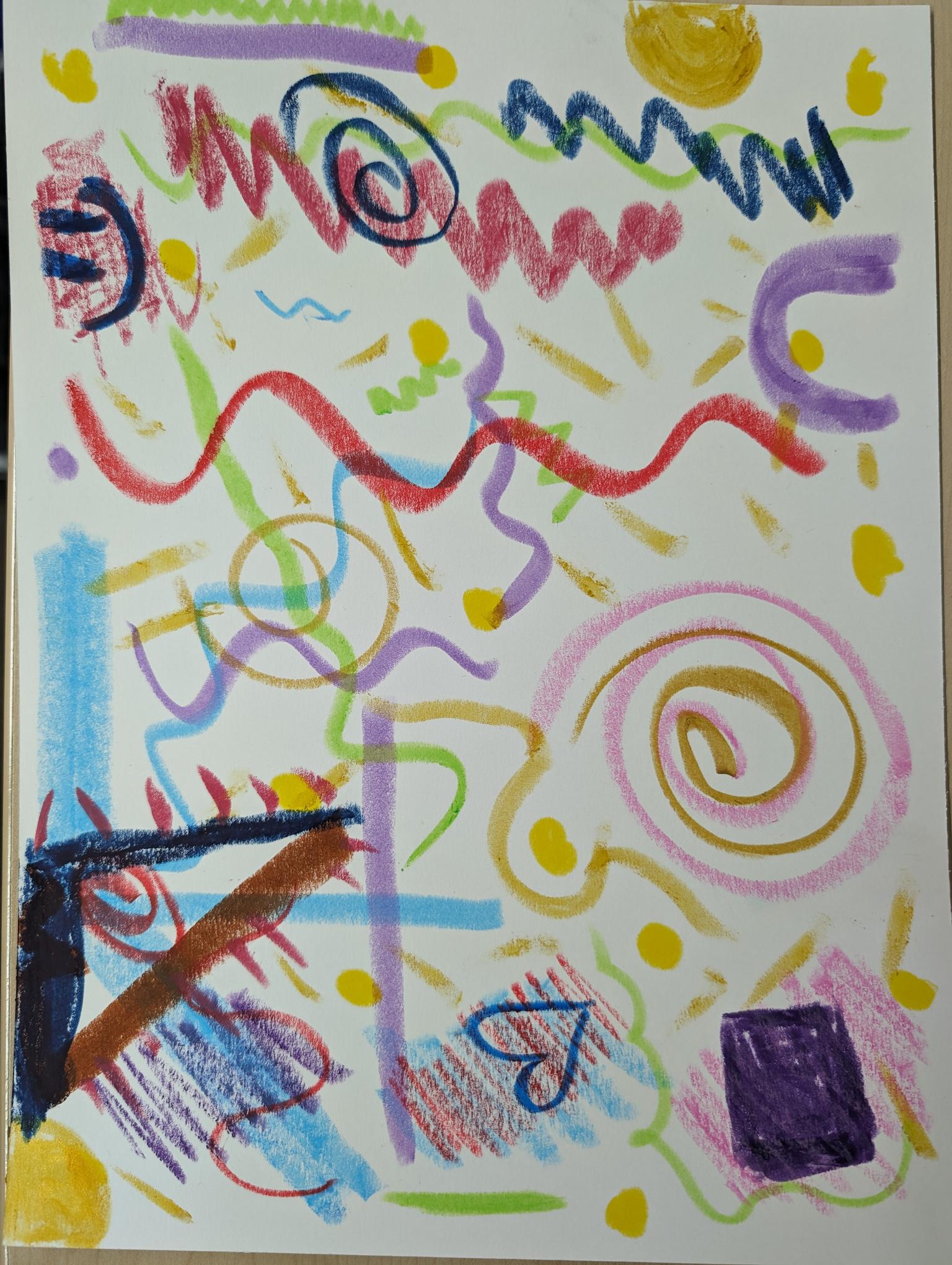
Building connection with others is an important component of resilience. Think about the people that you connect with. What qualities or attributes do they have that make you feel connected with them?
- What qualities do they have that makes you trust them?
- What attributes do they have that encourage you to share challenges with them?
- The next time you connect with them, would you feel comfortable sharing the qualities and attributes that you value about them?
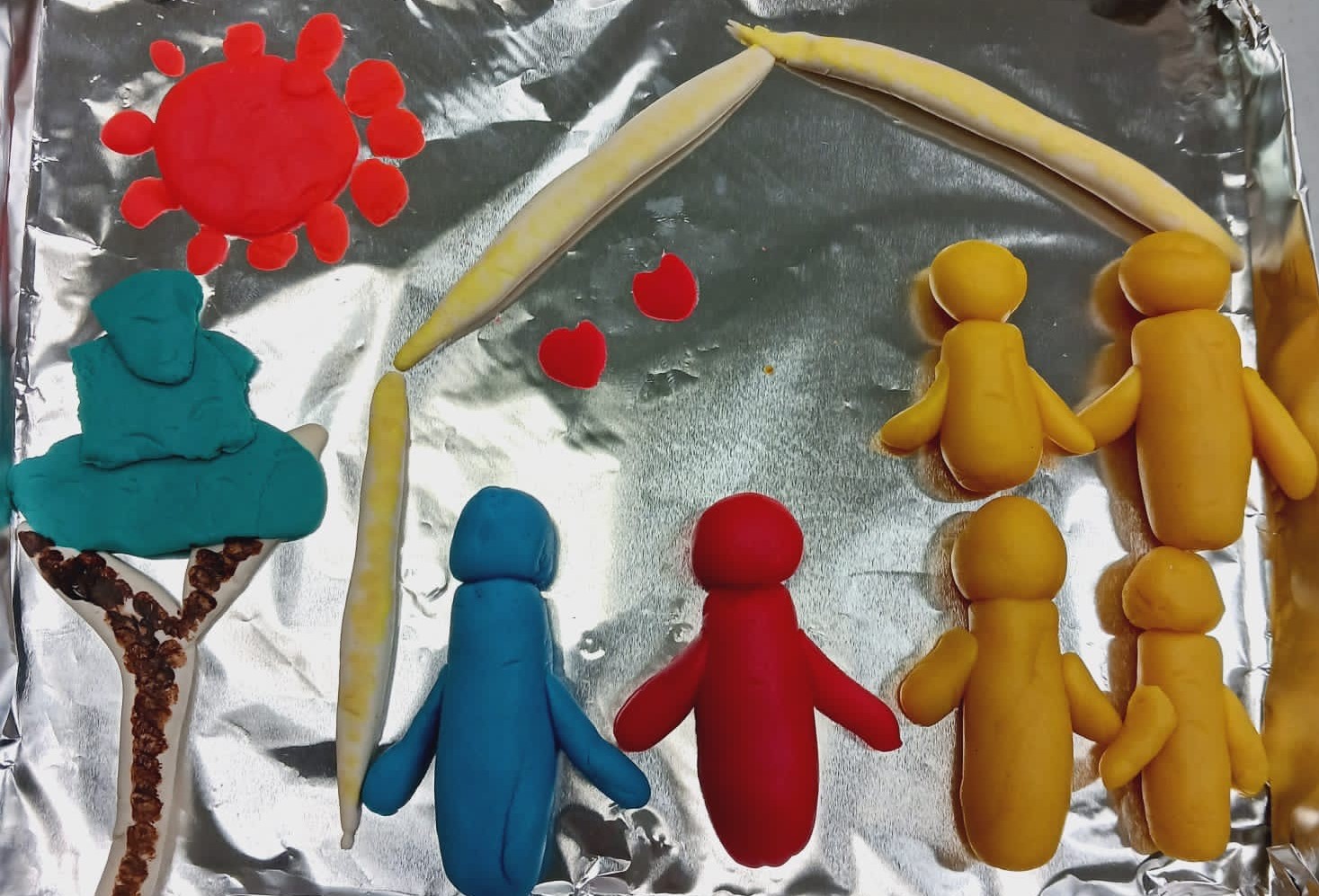
Family as my greatest support & source of strength
“Support from family, relatives, friends, and the community strengthened my resilience, enabling me to withstand pressure, prevent depression, and express my emotions bravely.”
「家庭、親人、朋友和社區的幫忙,加強了我的抗逆能力,使我能抵抗壓力、防止抑鬱及勇於表達情緒!」
Moving to Canada alone without family made me feel adrift and insecure. Although I lived with my husband’s family, I still felt like an outsider, as though I didn’t belong.
After the birth of our third child, the five of us lived in the same room, leading to not only cramped conditions but also emotional suppression and depression. Later, my husband’s sister, whom I refer to as my elder sister-in-law provided understanding and support, as she had experienced a similar immigration journey. With her help, we moved out of my in-laws’ home and started building our own small family. This gave us our own space, and gradually, my emotions eased.
I depicted a home with my family of six in my artwork. This home represents my greatest support. It is because of them that I could make the decision to stay; without them, I might have returned. This small family has given me tremendous strength.
Apart from the challenges within the family, the environment here was also very unfamiliar. Stepping into Canada, I felt like I had lost everything familiar. Facing unfamiliar things, I felt a lack of security, and the language barrier made it challenging to adapt. Without the company of family and friends, I truly felt lonely and helpless. I remember even the bus driver was concerned about me getting lost, making sure I hadn’t taken the wrong bus before allowing me and my child to board. I was genuinely afraid of getting lost, so I always wrote the address on paper before going out, ensuring that I could seek help if I got lost.
My elder sister-in-law understood my worries and fears. She warmly guided me around the neighborhood, showing me how to get home after going out. She encouraged me to go out and get to know the community. Through her introduction, I started to participate in different activities. I made friends, gained community information about children, and learned more about services for new immigrants—some of which my elder sister-in-law, who had been in Canada for 10 years, didn’t know about!
Support from family, relatives, friends, and the community strengthened my resilience, enabling me to withstand pressure, prevent depression, and express my emotions bravely. I believe that to overcome the difficulties on the immigration journey, one must first take the courageous step of learning new things and actively participating in community activities. Finding someone to talk to who understands your situation is crucial; it’s essential not to isolate oneself. With family as the biggest support, one can ultimately adapt to the new country and share their own talents and gifts.
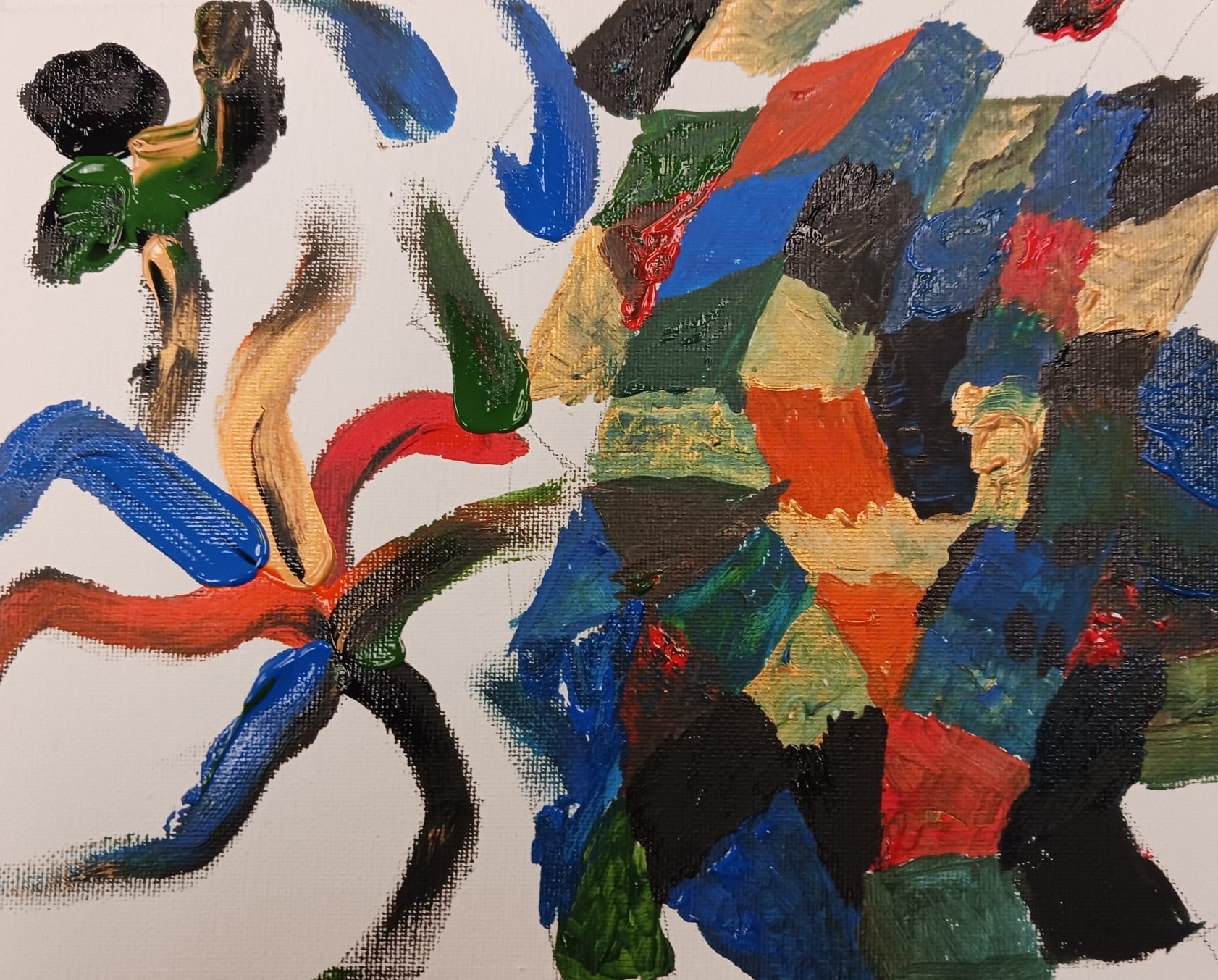
Different views & angles
“Just like when we encounter any difficulties, if we are willing to look at it from a different angle, it will give us new perspectives.”
I was born in Ho Chi Minh City in Vietnam and of Chinese descent. When I was a teenager, my three brothers, sister, my mother and I immigrated to Vancouver. My mother waited patiently for over 13 years to be able to immigrate to Canada, as she believed it would give her children a better future.
As a teenager, my first day of high school was difficult as I couldn’t understand English and didn’t know anyone in class. I faced discrimination for being Vietnamese which made me feel very unhappy and helpless. I started to look for support and found it through a community program where the staff helped me by learning new skills on how I can address the challenges I was facing. I learned how important it was to find someone you can trust to help you overcome difficult situations.
After high school, I started working full time, but it was my dream to become a bridal fashion designer. Applying to return to school and study in a competitive program like fashion design was overwhelming. I had to prepare a portfolio and had to do a lot of research to make sure that I presented my best efforts. I started sewing doll clothes at the age of 10 so I used my sewing skills to build my portfolio. Returning to school after having worked full-time for 5 years was very challenging. But I didn’t give up and I was very determined to succeed. I am proud to be one of 13 graduates from the fashion design program in my year. I made it to my dream!
Fast forward a few years and I’m a mother to a three-year-old son. My husband and I had different ideas on how to raise our children. I learned to reach out to community programs to support me in learning new ways to communicate with my son and family. I joined the Nobody’s Perfect Parenting Program, which gave me a lot of inspiration on how to deal with challenges and difficulties. I also met other parents who are facing the same situation. It was helpful to learn from each other and have their support.
When I created this painting, I was thinking about the happiness and confusion that life brings with being a new mother. It is brightly coloured with some dark shades to show the different emotions of life. I tried to use different colors in different angles so you could have different views from different angles. Just like when we encounter any difficulties, if we are willing to look at it from a different angle, it will give us new perspectives. Don’t give up on yourself and your family. Set your goals and don’t forget to reach for help.
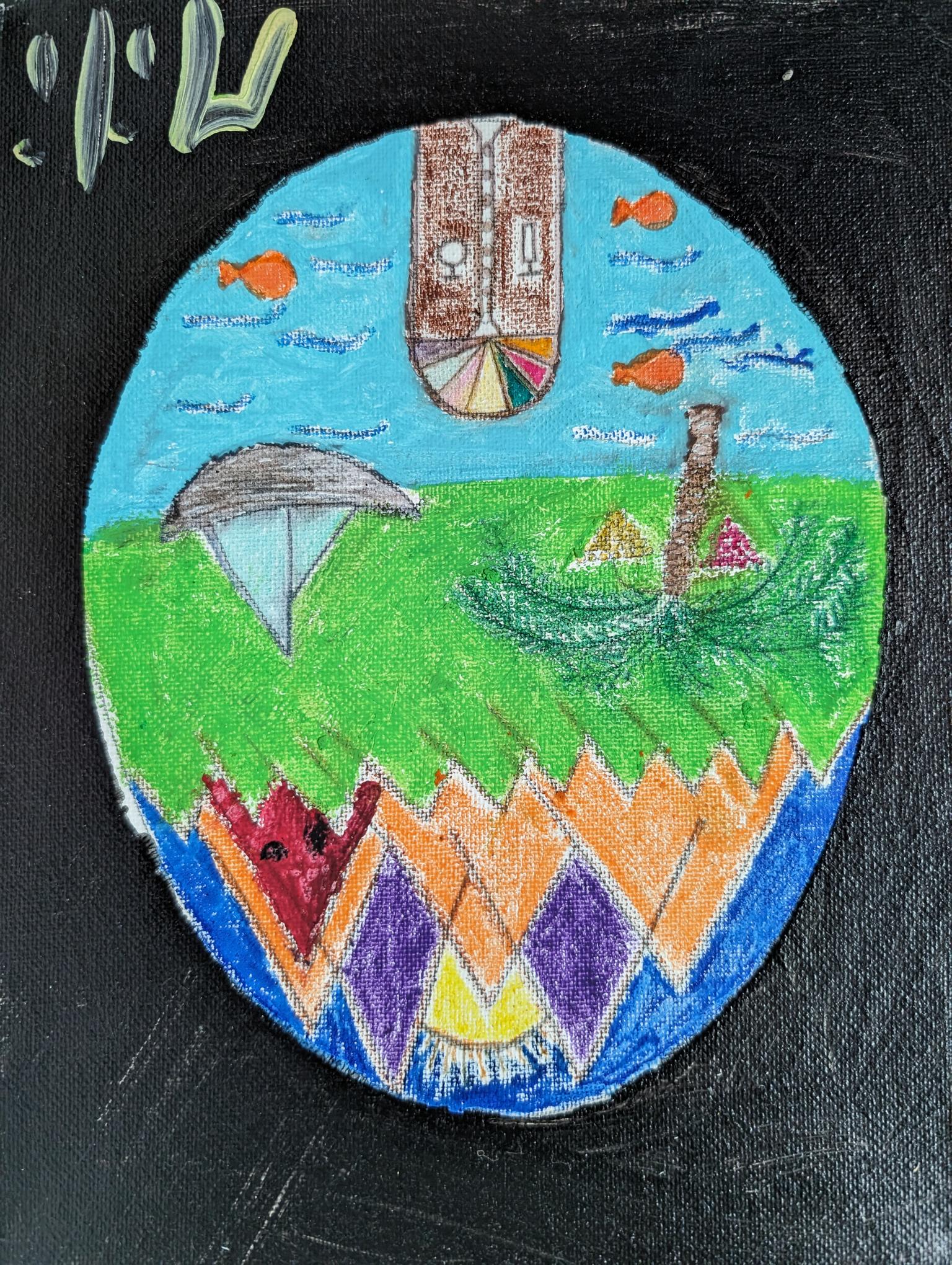
Connection to the land
What does it mean for us to be on these unceded lands?
Indigenous communities believe that the land nourishes and nurtures our well-being. There are many ways to connect to the land. How do you connect and honour the land?
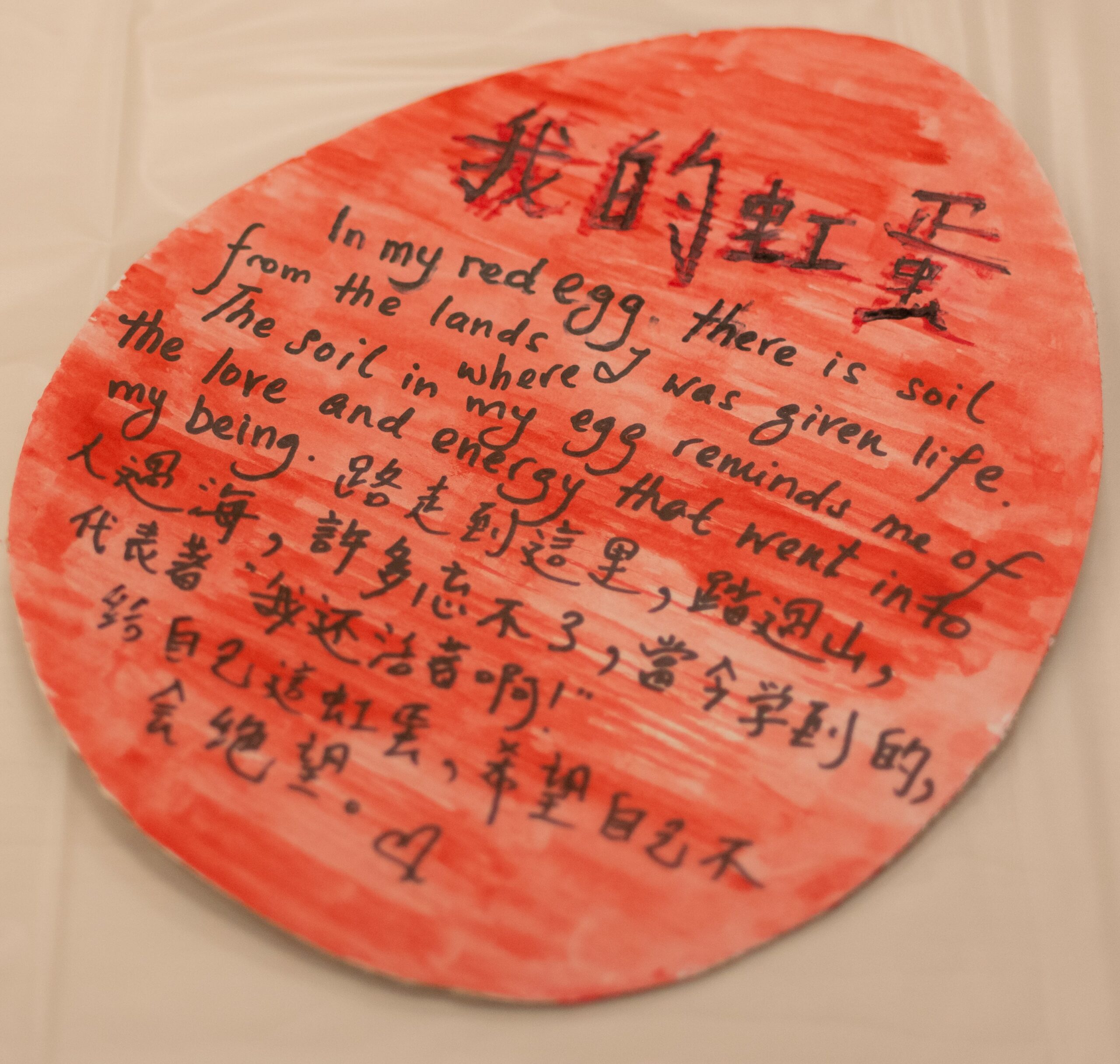
Reclaiming ancestral language
Ancestral language enables us to preserve our cultural and linguistic heritage.
How do you write “egg” in your ancestral language?
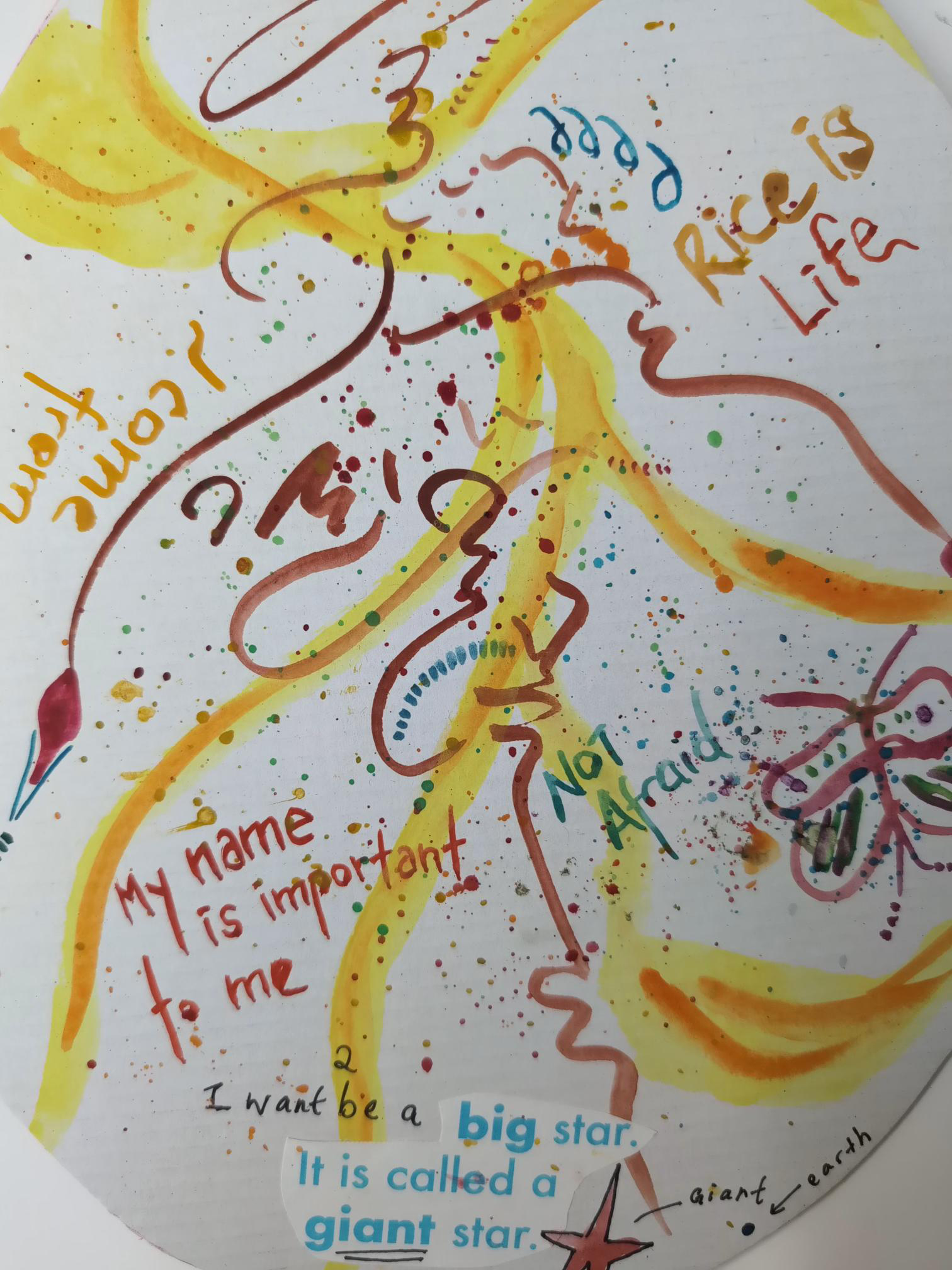
Reclaiming yourself in your own terms
What did you hide, forget, and keep aside to survive that you want to reclaim?
Moving to a new place can make you feel the need to set aside parts of yourself so you can fit in.
What do you long for? What cultural practices do you want to reclaim?
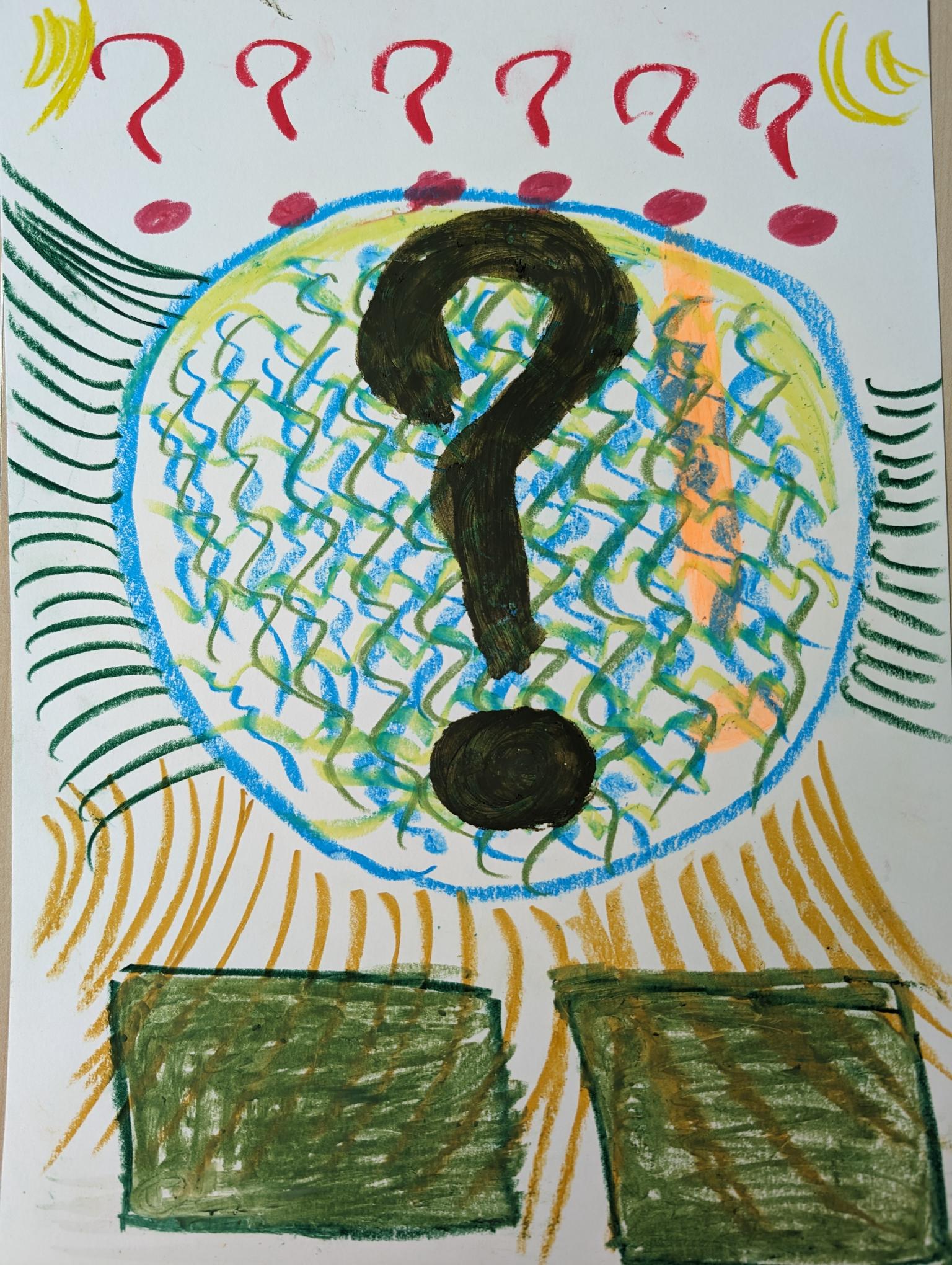
How do you feel about asking for help from others?
- Are there situations where asking for help comes more naturally to you?
- Are there other situations where it is more challenging to ask for help?
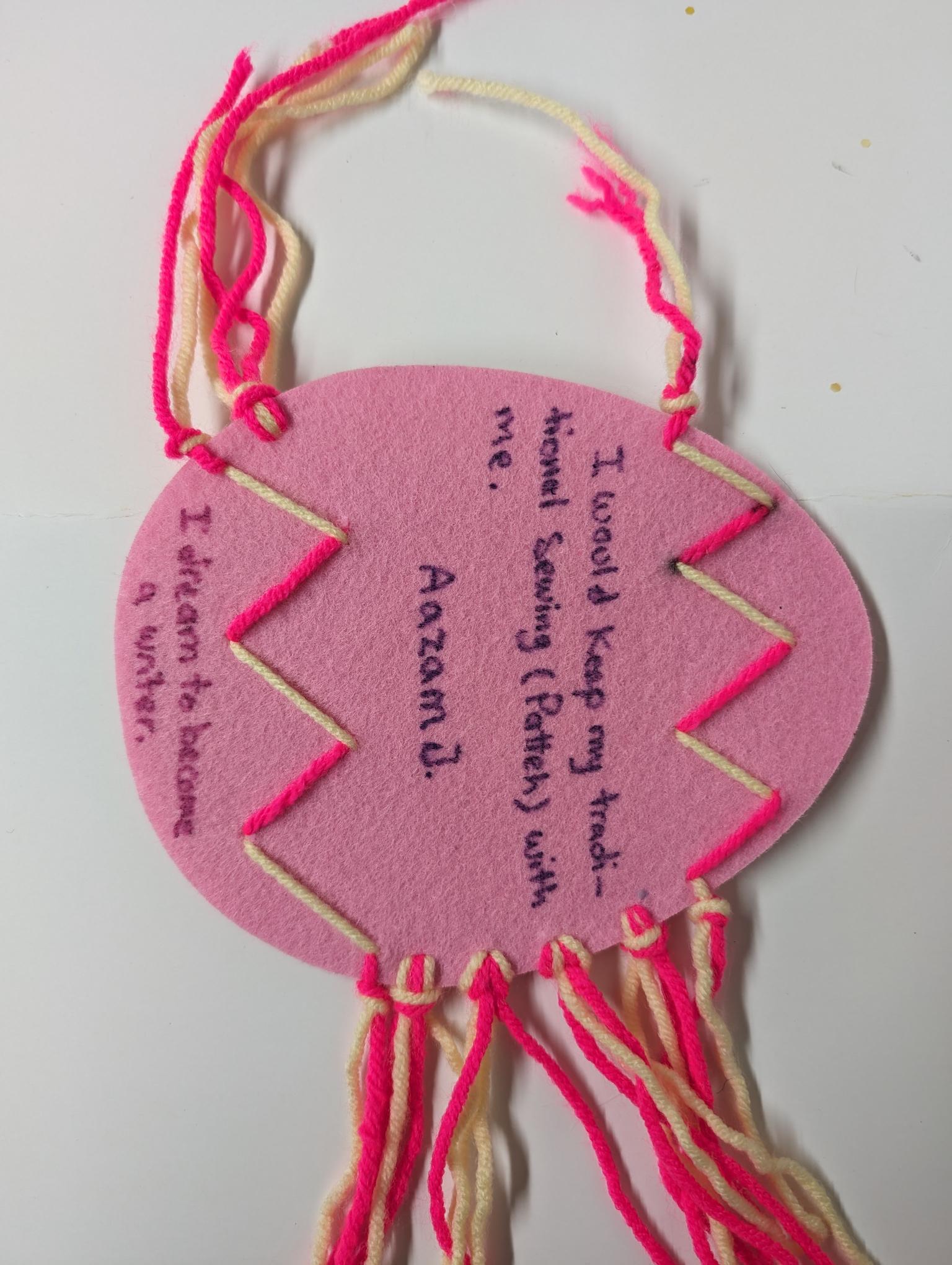
Reclaiming cultural practices
Cultural practices, whether it is a celebration, skill, or hobby, allow us to express ourselves authentically.
Every culture has unique traditions and practices that demonstrate their values. What are important things in your culture that you want to remember?
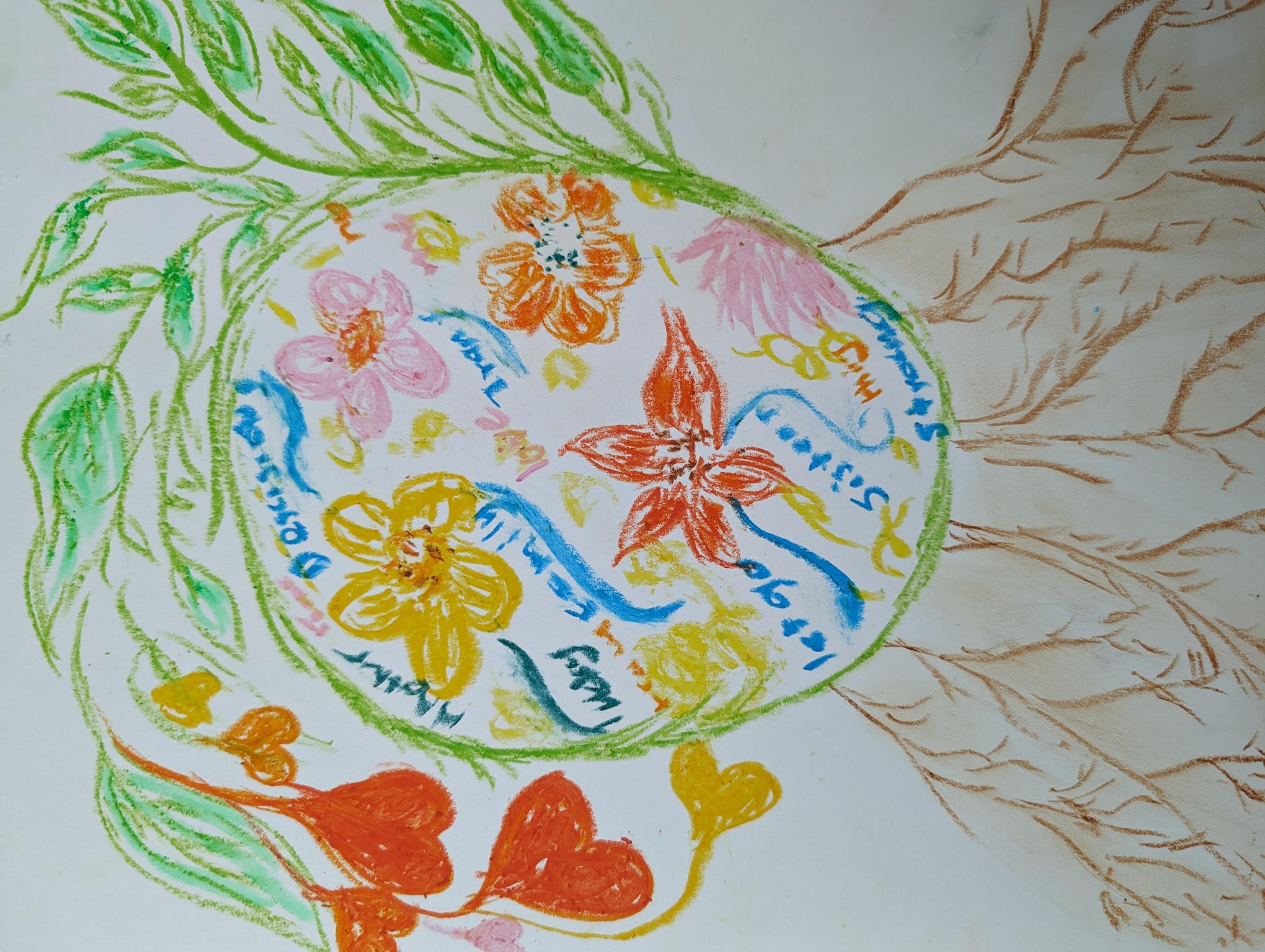
Roots to help grow in the journey
Roots enable plants to grow and thrive. As humans, our roots such as our values, culture, and people we care about, can help us grow and thrive.
Think of someone or something that has helped you in your journey. Think of the lessons you’ve learned about yourself and how much has changed since your journey began. Top Tip: Writing down your goals, the challenges you’ve faced along the way and the successes you’ve achieved can help in reflecting on your journey.
What is Resilience?
Resilience is the ability to recover from difficult life experiences or challenges. It includes navigating resources that sustain our well-being in culturally meaningful ways.
There are four core components of resilience: connection, wellness, healthy thinking, and meaning. Focusing on these four core components can empower us to withstand and learn from difficult and traumatic experiences.
- Connection to land and to others: In Indigenous cultures, the land is a living being that provides for the people, just like a mother would to their children. A connection to the land, whether you are new to the community or were born here, allows an understanding of how the land nurtures your physical, emotional, and spiritual needs. Connection to others prioritizes healthy relationships with empathetic and understanding people so that you are reminded you are not alone amid difficulties. Having trustworthy and compassionate individuals who validate your feelings will support the skill of resilience. Be willing to ask and accept support from those who care about you.
- Wellness: Take care of your body by practicing self-care, including proper nutrition, exercise, sleep, hydration, mindfulness, etc. This could also mean reclaiming cultural practices, ancestral languages and cultural food to nourish you.
- Healthy Thinking: Maintain healthy thought patterns by keeping things in perspective, accept that change is inevitable, and strive to maintain a positive attitude.
- Meaning: Find your purpose; set and work towards realistic goals to identify tangible signs of growth. Self-discovery also means embracing new ways of being and learning more about what you value and your needs.
Building resilience is not a one-time event, but an ongoing process where we use strategies that can help us cope and adapt as best as we can to difficult situations.
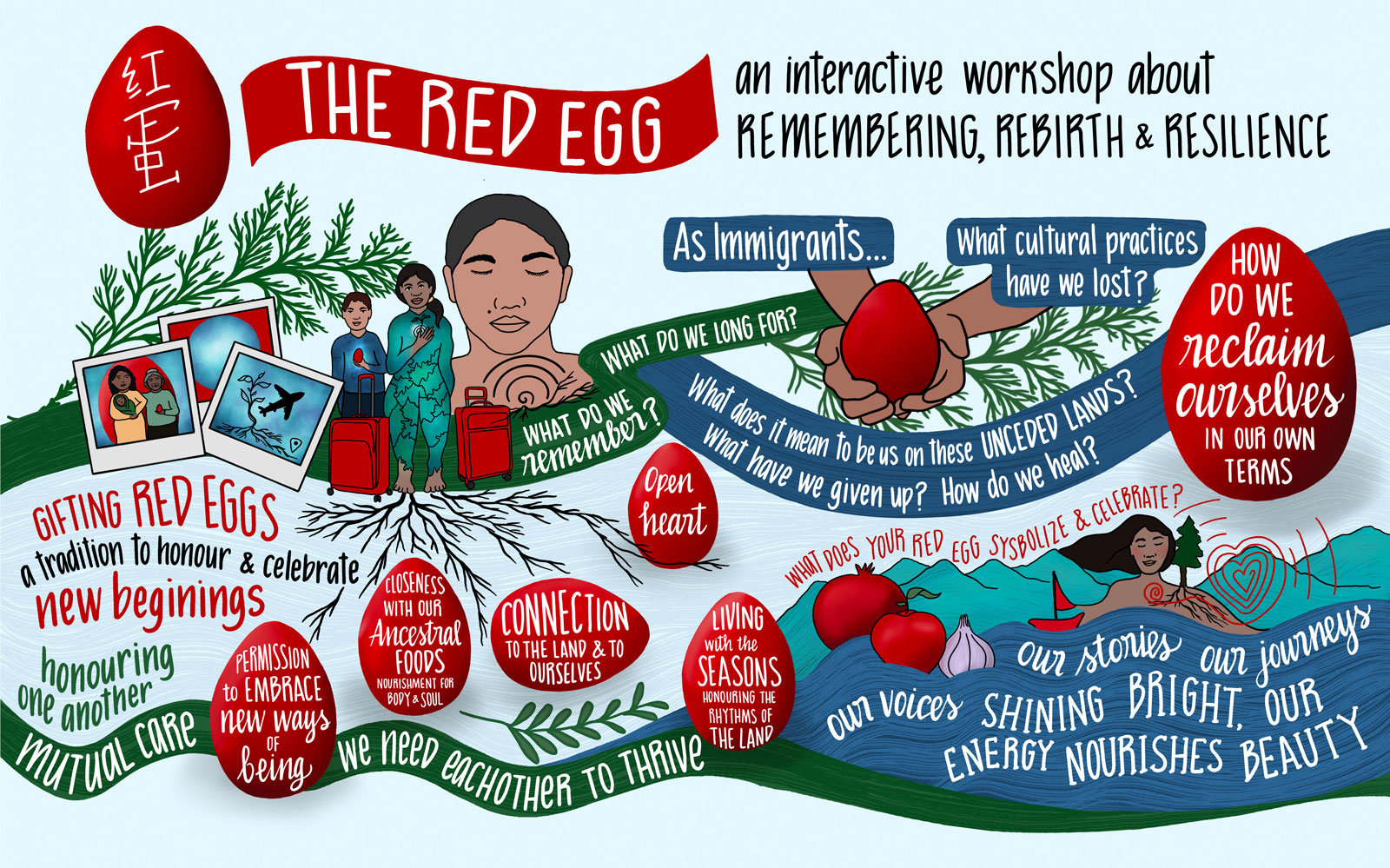
Reflection and Dialogue
Building resilience requires reflection and connection. Reflection enables you to think about your own strengths, motivations, and dreams. Connection enables you to share different perspectives and goals to create a supportive and thriving community.
Reflection and dialogue questions are scattered throughout the blanket. You can also print or download the PDF with the reflection & dialogue questions here.
If you are facilitating a group discussion on resilience, please feel free to share the questions with your group members to allow for self-reflection time.
Other Resources
Starting a dialogue, please see the Caring Spaces Guide to support you in fostering compassion and understanding.
Acknowledgements
We wish to acknowledge all the partners and contributors to the Resilience Blanket Project.
Kung Jaadee • Adriana Contreras •Luana Magno • Luna Aixin • S.U.C.C.E.S.S. Multicultural Early Childhood Development Program

